Devo, devo, devo…what’s in it for our families?
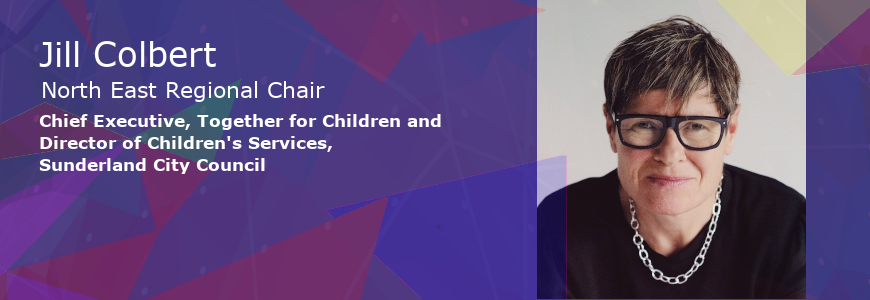
As Spring elections approach, in the North East region we prepare for the birth of our next combined authority, the North East Mayoral Combined Authority (NEMCA) which will snuggle up to the established Tees Valley CA (now 8 years old). Two distinctly different authorities, but united by a view that the region knows best how to make life better for its people.
NEMCA will cover the geography of Northumberland, North Tyneside, Newcastle, Durham, South Tyneside, Gateshead and Sunderland, with an elected Mayor, two Police and Crime Commissioners and an Integrated Care Board that also has a foot, or two probably, in Cumberland. The deal brings £1.4bn of investment (some existing, some new) for landmark projects like the Crownworks Film Studios and advanced automotive manufacturing.
As many of us know, though, additional governance and bureaucracy in public service can frustrate our efforts to make a difference for our families; it can mean more meetings and more jargon-filled highlight reports that offer little insight into the down-the-line intended benefit for our kids and families.
At a time when more children are living in poverty in the region than ever, with 35% living below the poverty line in 2021, an increase of 9% since 2014 and the steepest rise anywhere in the country, and whose needs are plain to see in our data, it’s never been more important to make the de-centralisation of government a thing that makes their lives better.
So, what does devolution offer children? If every Childhood Matters, then every family should be able to touch and feel the ambitions in the deal. We know we have to connect our place-based investments to our families, and our families to opportunities, be that public transport that gets them to a decent job in a new film studio or an affordable home with digital capability for the children to do their homework. A failure to do that does not level up; it leaves behind.
The benefits of devolution will not manifest quickly or easily though, but what we can do from the off is elevate the ambition for children by asking ‘what’s in it for our families’ and hope the question endures.
Related Blog Articles
Childhood really does matter in the year ahead
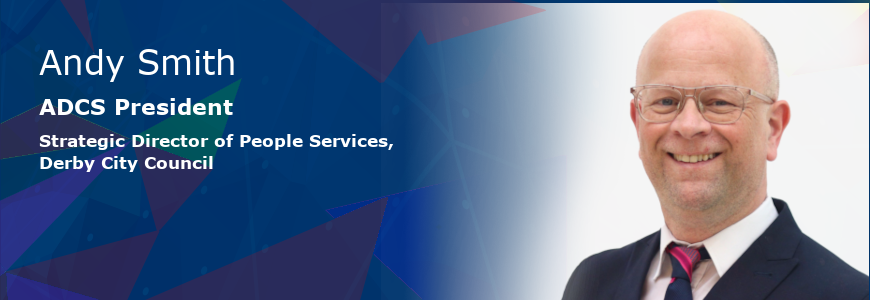
It only feels like a few weeks ago when I was writing my first blog as ADCS Vice President, and here I am, twelve months later, with my first blog as ADCS President. They say time flies when you’re having fun?! It’s certainly been a rollercoaster of a year with highs and lows across the children’s policy landscape. Firstly, I want to acknowledge the amazing job John Pearce has done as ADCS President. John has led the Association from the front and, with his tenacious and compassionate leadership, has advocated for children and driven forward the priorities for the Association. It’s a real privilege to now be ADCS President and over the course of the year I’m looking forward to working closely with Rachael Wardell as Vice President of ADCS.
In forming priorities for the year ahead, Presidents have a knack at building on, developing and taking further forward their immediate predecessors’ priorities, shaped by co-production with the ADCS Council of Reference, but informed by the values of the incoming President. This means that we see a careful and informed evolution of our ADCS priorities steeped in the political and policy context we see in the year ahead, always focused on improving outcomes for children and tackling inequalities. It’s going to be an interesting year!
I’ve talked before in my previous blogs about being a ‘glass half full’ person and looking at the year ahead I believe there is room to be optimistic. It would be easy for me now to provide an overview of the current challenges in children’s services; these are well rehearsed in our discourse as well as our policy papers. Instead, I want to focus on what’s working well. As an Association, with just under 1,900 members, through the work of the Presidential team, Council of Reference and policy committees we have been working in a collaborative way to develop and shape our policy position and influence central government. We have appropriately constructive relationships with senior civil servants in government and there are increasing examples of where we are shaping and influencing the policy direction, recently seen in the outcome of the consultation on agency social work. Children’s social care reforms being delivered through Stable Homes Built on Love is really stepping up into the implementation stage and we need to ensure that meaningful and sensible change is delivered at pace with sufficient resource. We will also continue to push government for a clear and properly resourced plan with short, medium and long-term actions to tackle the placement sufficiency crisis and for an approach to kinship care that doesn’t inadvertently produce a two-tier system.
In the last six months we have issued two key policy papers: A future vision for the education system and Childhood Matters. A well resourced all-encompassing and joined up plan from government is needed, with clear priorities for each government department; one which takes a trauma-informed approach to tackling the systemic and entrenched challenges many are facing, and which pays specific attention to understanding, mitigating and removing inequalities in all its forms. Moreover, as an Association, we have started to identify ways to make ADCS more inclusive, and we will continue to reflect and work on how we can positively influence and champion inclusion and diversity, both for our workforce and our communities.
There are of course areas that we are concerned about that have shaped priorities for the year ahead. There needs to be a fundamental rethink about the SEND system. It is difficult to see how the vision set out in the 2023 SEND and AP improvement plan which relies, in part, on an inclusive education system, can be realised without fundamental reform of the key building blocks of the system. We also need to take stock and reflect on the children’s services accountability frameworks which are vast and growing. For example, we need to re-think what the purpose of inspection is, and how it relates to the wider accountability framework, and whether the current system is successful in delivering positive outcomes for all children and young people, regardless of their background.
And I haven’t even mentioned a general election that we are expecting to take place before the end of the year. The two recently published policy papers referenced above are going to be really important in influencing any future government. I believe an impending general election does give us reason to be optimistic; whatever the outcome this is an opportunity for all political parties to prioritise and position policy around children – childhood really does matter in the year ahead.
Related Blog Articles
A wonderful rollercoaster of a year!
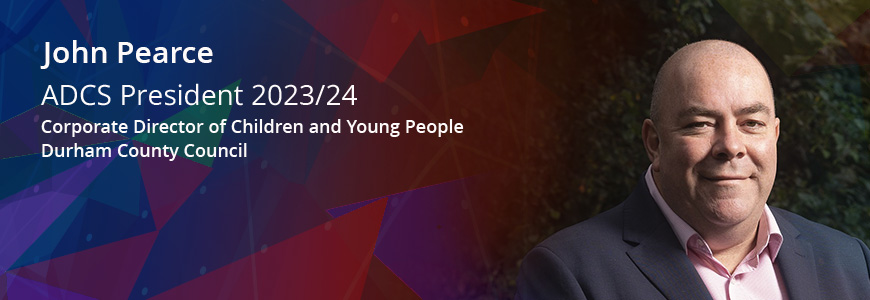
As my year as ADCS President draws to a close, I’ve spent some time reflecting on what has been the most wonderful, rollercoaster of a year that has flown by and undoubtedly been the highlight of my professional career. It has been such a privilege to represent my peers and the wider sector and I have tried to take on that responsibility whilst staying true to my values and ensure that impact and outcomes for children and young people have been central to everything we’ve done. I’ve met some amazing people and had the opportunity to champion key themes; the scourge of child poverty, importance of inclusion, and the need to focus on inequality and disproportionality.
I believe ADCS is a thriving Association which has enabled me to build on the work of my predecessors and take advantage of the doors they have opened so that the voice of ADCS is recognised in shaping and influencing national policy. At the heart of the Association is our fantastic staff team led by Esther as Chief Officer. The team provide the continuity and foundations for success as Presidents come and go (as I’m now finding out!). I’ve been so lucky to benefit from their support over the course of a year and I thank them for the invaluable role that they play in the success of ADCS. I’d also like to say a big thank you to everyone who has enabled me to take on the role over the past year; the political and corporate leaders in Durham and my excellent senior team, although they may have mixed views about seeing more of me!
One of my key priorities has been to further develop ADCS as a diverse and inclusive Association. A diversity and inclusion working group has been developing plans to better understand our role in this space and ensure that issues around diversity, equity and inclusion are woven throughout the work that we do. Our ambition is for leaders and the wider workforce to truly reflect the communities we serve and we will continue to support efforts to improve diversity across local authority children’s services. As a start we are actively creating the environment where the ADCS Board and policy committee membership is truly representative. We are at the early stages of addressing our overall ambition with much more to do and I know this will continue to be a priority in the coming year.
Part of my role as President has been to spend time with colleagues from across the country to understand their priorities so I can represent the views of the sector at the national level. It is clear is that the headline challenges are consistent across all regions and all types of local authority regardless of their local context. It has also been really inspiring to see the innovative ways leaders across the country are addressing the challenges and some of the excellent practice that exists but doesn’t get showcased enough.
In terms of the national policy landscape, it could have been a difficult year at the end of a parliamentary cycle and leading up to a comprehensive spending review however, that’s not been the case due to the increasing profile of children’s services in national debate. ADCS has continued to engage closely with government in the national reform programmes for children’s social care, SEND/Alternative Provision, and Early Years. There have also been other key strands of work on the separated migrant children, right care right person and the government’s response to major inquiries such as IICSA and the National Panel Review of care in the Hesley Group.
Whilst reform is important it has been the immediate issues that have really dominated over the last year; financial pressures created by the failed children’s residential market, workforce and the agency social worker proposals, the broken SEND system, children’s mental health, school attendance/inclusion and challenges with regulation and inspection. These are longstanding endemic challenges that need a system wide approach to resolve them. The next government must prioritise these issues leading to real change and investment in children and the services they depend upon. ADCS has set out clearly both short term solutions as well as a longer term policy direction on key issues.
ADCS has also published two major policy papers over the past year aligned to my presidential priorities; Childhood Matters and A Future Vision for the Education System. It is clear from the response to both papers that the key messages and recommendations within them have significant support across the sector. As we move into the next parliamentary cycle, I really hope that they can help form a blueprint for a better future. It is essential that we have a national plan for childhood that cuts across government departments setting out a coherent vision. Children must be visible in all national policy discussions, and we will not make progress without addressing the shameful levels of child poverty in this country.
I am delighted to be handing the Presidential baton on to the fabulous Andy Smith, DCS in Derby City, who I know is going to be a great President. Andy will bring his own style and approach to the role and be a great advocate for children and young people in what is a critical year as we head into a general election. Despite the challenges, I remain optimistic there can be a bright future ahead as long we keep the focus on our core values and doing the right thing for children.
Related Blog Articles
After Awareness, What Next?
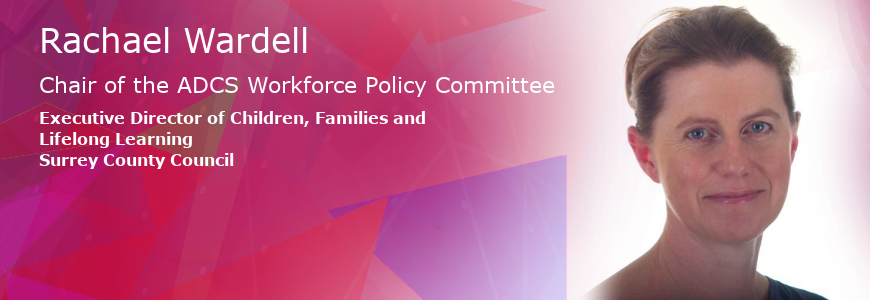
On Monday, 18 March, it was Child Exploitation Awareness Day. Across social media the hashtags #HelpingHands #CEADay24 #CEnomorein24 spread, and advice was shared about the signs of possible exploitation.
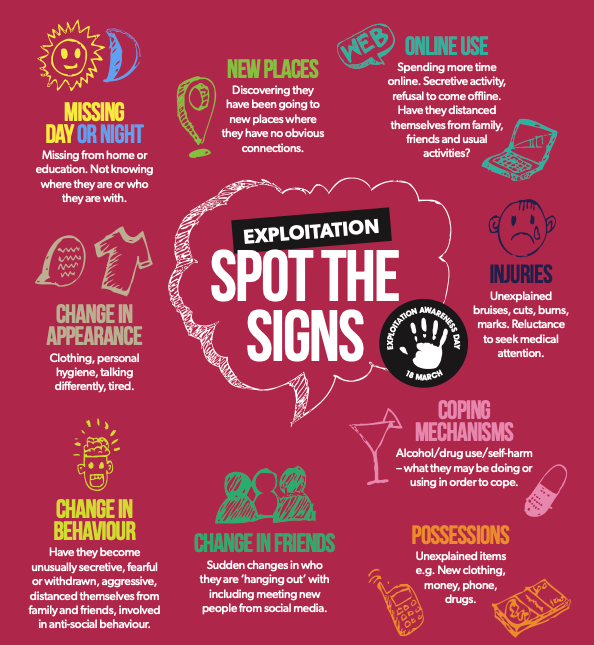
It was positive to see these messages being amplified, not just by Child Safeguarding Partnerships across the country, but also Community Safety Partnerships, schools, local authorities, police forces and police and crime commissioners’ offices, hospital trusts, children’s rights organisations, children’s charities, parenting charities, fostering agencies, mental health providers, sport and theatre projects, victim support organisations and many more. But when the Awareness Day is over, what do we all do with our new-found or refreshed awareness?
Missing episodes, unexplained injuries, new possessions (or cash) and drug or alcohol use in our teenagers will probably alarm us, but so many of the other signs of exploitation are also common features of an ordinary adolescence. What parent, carer or teacher hasn’t noticed changing friendships, behaviour or appearance in a child they care about, not to mention the way online use has dramatically changed for everyone over the past few years. Often, we dismiss these as benign side effects of growing up. And often we’re right. But not always.
More than 7,000 children were identified as possible victims of modern slavery in 2022; the most common reason for children to be trafficked is for criminal exploitation; children are disproportionately likely to be victims of sexual offences, yet the proportion of new child protection plans for sexual abuse has dropped to its lowest level ever. We know this is very unlikely to be because abuse itself has reduced. Rather it seems that more awareness is not leading to more action.
It seems that there are still too many adults - whether parents or professionals - who judge children negatively based on their appearance or behaviour rather than being curious and supportive about what may lie behind a recent change. There are still too many suggestions that a child is ‘putting her/himself at risk’ and therefore can’t be helped. It’s still too easy to turn our backs on a child who seems ‘difficult’, without recognising that the child is in difficulty. Sometimes we don’t fully confront what is happening to our children until they have caused harm to others, by which time – as high profile media coverage shows – the criminal justice system and the public alike tend to forget they are exploited children and see them only as villains, not victims.
Although the awareness day has now passed, the challenge to take action on exploitation is with us constantly. In all our organisations, services, and individual relationships with young people our task is to spot the signs; to stay curious, and non-blaming, building trust; and to act decisively on what we find out. Easier said than done, I know, but it’s the only way the exploitation will end.
Related Blog Articles
A piece of cake
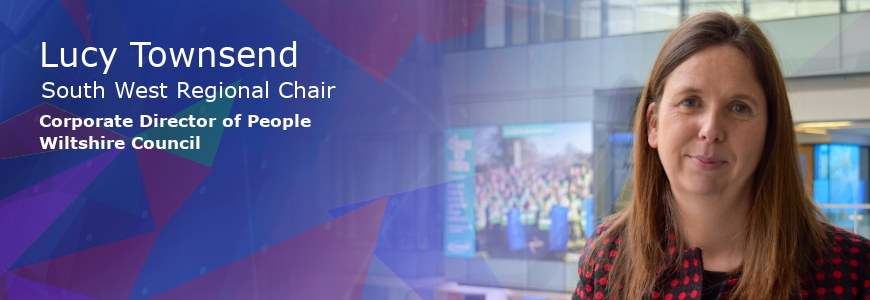
Ofsted has just launched its Big Listen as it seeks views from the sector, parents, carers and children and young people. It is positive to see new HMCI Sir Martyn Oliver’s approach and I have first-hand experience of hearing about his intentions from meeting him alongside other directors of children’s services in the South West region and specifically regarding Wiltshire’s recent ILACS inspection experience.
Working with children is a vocation, a tough one at that, one that doesn’t always get the recognition as other parts of the public sector. However, we continue diligently and with passion because that is what we do, but I also agree with Ofsted that “there is more to do to relieve the pressures felt by the professionals we inspect.” Over the last five months in Wiltshire, we have had an ILACS inspection, regulatory inspection of a children’s home and our youth justice inspection; we will not be alone in this. Alongside the day-to-day work, it takes its toll on our teams. We know we don’t always get things right and certainly don’t always know the answers, but one thing is for sure, we want to get things right and deliver the best outcomes for children and young people as do our teams.
When things aren’t quite going to plan or we are stuck, we can take comfort in knowing there is someone out there who does know, or who has tried and succeeded, or even tried and failed. This is why sharing evidenced-based practice, learning from each other and collaborating is so important. We have the Department for Education funded Sector Led Improvement Programme (SLIP) providing an opportunity for local authorities across the country to work together. I am pleased that we have gone from two to three SLIPs in the South West and also have an active regional support offer available. Importantly, this means that all local authorities can share their expertise, regardless of their overall Ofsted rating. This is important as we all have something to learn and also something to give to the sector.
For those of us who enjoy a bit of baking, Mary Berry sums it up a treat, and she certainly knows about these: “Life is all about sharing. If we are good at something, pass it on.” So, if anyone has a good recipe for a Rocky Road, please share it. The analogy isn’t a bad one as we all encounter a rocky road along the way. When we do, it is important to stop, take stock, decide whether to go for it or turn around and change route. Remember, others have been down that road so share a piece of cake with them, re-fuel, get support (a problem aired and all that) and get yourself to the next stop on your journey to doing what is right. Let’s face it, cake makes everything better.
Related Blog Articles
Creating positive change
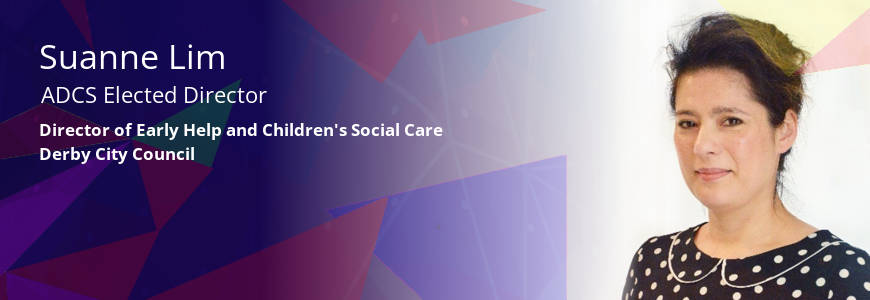
Hello ADCS Colleagues
I recently had the privilege of being part of a panel of speakers at the Youth Justice Leaders Conference in Birmingham, taking questions on critical topics such as recruitment, workforce development, and improving diversity within the leadership and delivery of youth justice. The conference provided a valuable platform for sharing insights, exchanging ideas, and collectively exploring solutions to address these pressing challenges. I wanted to share some of my reflections from what was a really thought-provoking day.
Attendees expressed a keen interest in strategies for attracting and retaining talent within the youth justice workforce. Questions ranged from the efficacy of traditional recruitment methods to the importance of how we actively target diverse talent pools. In response, panellists emphasised the need for innovative approaches to recruitment, such as leveraging social media platforms, partnering with educational institutions and engaging with community organisations to reach a diverse pool of candidates.
Workforce development was another area of intense interest, with attendees seeking guidance not only on how to enhance the skills and competencies of youth justice professionals, but also on creating an effective strategy for succession planning. Questions focused on the role of training and professional development in equipping practitioners with the tools and resources needed to support young people effectively. Panellists underscored the importance of investing in ongoing training opportunities, growing our own and tailoring programmes to create a more inclusive environment for next generation global majority professionals who don’t always view local government as an attractive career option. We really need to ask ourselves those challenging questions about why that is, what needs to change and how well as leaders we are doing to ensure our staffing reflects the local demography.
Improving diversity and inclusion within the youth justice workforce is reflective of a wider conversation generally in children’s services. Participants were eager to explore strategies for promoting diversity at all levels of the workforce and creating inclusive work environments where all individuals feel valued and respected. We debated the critical importance of proactive leadership and a commitment to driving meaningful change.
One of the recurring themes that emerged during the panel discussions was the interconnectedness of recruitment, workforce development, and inclusion. Attendees recognised that these three areas are mutually reinforcing and essential components to strengthening representation. Questions touched on how organisations can integrate recruitment strategies with diversity initiatives and align workforce development efforts with broader organisational goals.
As a panel member, I was enthused by the level of engagement by conference attendees. The questions posed were thoughtful, insightful, and reflective of a genuine desire to affect positive change within the youth justice system. It was evident that attendees were eager to learn from each other, share best practices, and collaborate on innovative solutions to common challenges.
In conclusion, the conversation with youth justice leaders posed similar challenges we are having across all children’s services in respect to recruitment, workforce development and improving diversity. As a panel member, I felt privileged to contribute to these discussions and engage with attendees on such important topics. However, moving forward, we all need to recognise and continue our efforts to build more diverse, inclusive, and effective systems that support the entry and retention of diverse professionals in order to meet the diverse needs of our children and young people.
Related Blog Articles
Equality, diversity, and inclusion – equity for all
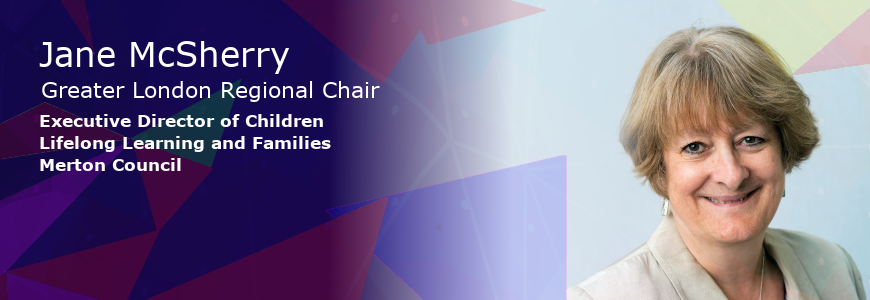
I was asked recently, as a senior leader, to contribute to our International Women’s Day event in Merton and to answer some questions on the pressing issues for women in 2024. I highlighted the need for girls and women across the world to have access to quality education, training and equal opportunities, and that health inequalities and women’s safety at home and in public places must be addressed. It then got me thinking that March is a month where we have many opportunities to reflect on the importance of equality, diversity, and inclusion.
Women’s History Month, celebrated in March, raises awareness of the contributions women have made to events throughout history and society. During this month, on 8th March, we honour International Women’s Day when we acknowledge the achievements of women whilst raising awareness about discrimination and gender inequality. The United Nations has sponsored International Women’s Day since 1975: “To recognize the fact that securing peace and social progress and the full enjoyment of human rights and fundamental freedoms require the active participation, equality and development of women; and to acknowledge the contribution of women to the strengthening of international peace and security.” The theme this year for Women’s History Month is “Women Who Advocate for Equity, Diversity and Inclusion” – an opportunity to recognise women who understand the need to eliminate bias and discrimination from individuals’ lives and institutions.
Today, 1st March, is also Zero Discrimination Day, when we celebrate the right of everyone to live a full and productive life and live it with dignity. ‘’Zero Discrimination Day highlights how people can become informed about and promote inclusion, compassion, peace and, above all, a movement for change. Zero Discrimination Day is helping to create a global movement of solidarity to end all forms of discrimination.’’ This year’s theme is “To protect everyone’s health, protect everyone’s rights” with a particular focus on how we could end AIDS if everyone’s rights were protected.
Later on in the month, 21st March, marks International Day for the Elimination of Racial Discrimination which is a reminder of our collective responsibility to combat racism and strive for a more equitable world. It was established in 1966 by the United Nations in response to the tragic massacre of 21st March 1960 in Sharpeville, South Africa, and the brutality of apartheid, highlighting the urgent need for global action against racial discrimination.
21st March is also World Down Syndrome Day (WDSD), a global awareness day which has been officially observed by the United Nations since 2012. The date for WDSD being the 21st day of the third month is no coincidence; it was selected to signify the uniqueness of the triplication (trisomy) of the 21st chromosome which causes Down syndrome. This year’s theme is ‘End The Stereotypes’ recognising that stereotypes hinder people living the lives they want to lead and the impact on the treatment and care they receive from others. During Covid, it is worth noting that people with learning disabilities in England were eight times more likely to die from Covid than the general population, and for people with Down Syndrome the risk was 36 times higher. As the mother of a daughter with Down Syndrome this fact still shocks and upsets me and raises lots of questions about how this could have happened.
Within the London region, we have a focus on equality, diversity, and inclusion, as I know ADCS also has at both a national level and regional level. Many of our LIIA priorities reflect this with a strong focus on our workforce, our care experienced young people of all ages, our children with SEND, and our adolescents at risk of contextual harm. The focus of this work is about creating the right opportunities and support for everyone to thrive.
I will end with a quote from one of my favourite authors from whom we all can take some inspiration for ourselves, our workforce, and the children and families we work with. “My mission in life is not merely to survive but to thrive and to do so with some passion, some compassion, some humor, and some style.” – Maya Angelou (1928-2014), memoirist, poet, civil rights activist.
Related Blog Articles
Doing the best job of your life

I do love a quote. It is incredible that human beings throughout history have created so much insight and inspiration through quotes. The fantastic people I am lucky enough to work alongside in Northamptonshire know that one of my favourite quotes is from the late Steve Jobs who said ‘do the best job of your life every single day’ and I always accompany this quote by saying that ‘I promise I will too’. Some days it is tough for all of us and doing your best with the best support is often the best you can do.
But what is the ‘best job’? I might be biased but I think it’s being a senior leader in children’s services, although the national narrative about the ‘best job’ in children’s services changes depending on context. Is it safeguarding children by taking them into care? Is it balancing the budget? Is it achieving the latest Ofsted grading? Is it supporting families to stay together? Is it supporting children who have fled from another country? The ‘best job’ is certainly not an absolute and whilst all of the above matter, there can be conflicting priorities to hold and manage.
Would anyone not place a child in care in the best place for them to live due to cost? Of course not but in some cases the cost can be eye-watering which conflicts with the balanced budget. When public sector savings are proposed which are linked to children’s services the narrative is often ‘reduce non-statutory’ services. However, over12 years of austerity has meant difficult decisions have had to be made, leading to us reducing vital early support for families provided by professionals across local partnerships. This can add significant pressure on families and children who may then come into care because we were unable to meet needs earlier. The recently published Childhood Matters paper from ADCS is essential reading to help understand the current situation and what needs to change.
In my view, the ‘best job’ of a leader in children’s services is to balance all of these challenges and ensure that front line colleagues who work with children, young people and families are supported to be the best they can be. It is to create a culture of learning with appropriate support and challenge across our local areas. A culture where professionals have the right support and are trusted to make the right decisions which improve outcomes for children and young people. Finally, know who you can reach out to when you need some help, a listening ear and wise counsel. This is something I have always valued from members of our Association, our region and the fabulous ADCS staff team.
Ok, so back to quotes. Mahatma Gandhi said ‘be the change you want to see’ and this quote inspired me when I chose this career. Sometimes making change happen can seem impossible, but as Nelson Mandela said ‘it always seems impossible before it is done’. So maybe it is all about looking at yourself and knowing you have done the best job of your life today.
Related Blog Articles
Hands up for Care Day
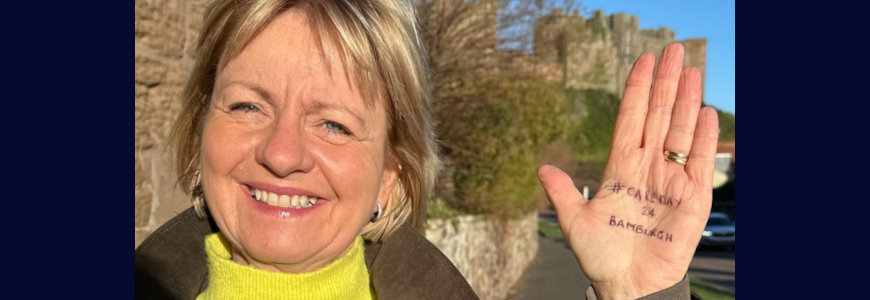
Alison Noble: ADCS Elected Director and Director (Early help and Safeguarding), Derbyshire County Council
I write this blog with a heavy heart as it will be my last as an Elected Director of the ADCS Board of Directors, my three year tenure will come to an end in May 2024. When I was appointed, it was at the start of the pandemic and who would have known what was in store for all of us. Three years on so much has happened that has changed the landscape for children and the services we provide. The majority of children continue to thrive, have fun and achieve their best but it is incumbent on society to keep a close eye on our vulnerable children; the challenges they experience seem so much more intense in today’s modern world.
The invasion of social media and its tragic impact has been no more sharply referenced than in the recent tragic events in Warrington and my thoughts, sympathies and utmost respect go to the family who have demonstrated a strength most of us would find impossible to muster.
For young people today their lives revolve around their phones and their relationships grow in a very different way than they used to do. Social media can impact on relationships by decreasing the amount and quality of time spent together in person, people can feel upset with what they see or what, by those they believe are friends, are prepared to share. Authenticity is equally as important for healthy relationships between young people, as it is for those of us later in our lives. Relationships based on trust, understanding, support, honesty, equality, respect, communication and having fun together are those most impactful and positive for our futures.
Throughout my career relationship-based practice has been a focal point of how I work and what I value in other people’s practice. I wholeheartedly believe that in order to truly support and help others, people need to feel confident in the basis and reason for our engagement; true person-centred practice gives confidence and capacity for change. People can feel a sense of shared endeavour, of a ‘lift up’, with unconditional positive regard at a time of need.
Children in our care who grow up outside of a traditional family arrangement need to feel that sense of value, security, and purpose through their relationships in life. It’s our role to provide the support network for them and their parents and carers through solid person centred empathetic and respectful relationships. For many, these are identified as professional relationships.
Care Day on the 16th February is the world’s biggest celebration of children who grow up in out-of-home care and my word there is a lot for us to celebrate. Children in care, and those with care experience can be inspirational, entrepreneurial, innovative and spirited, we should cherish and value these characteristics and qualities to inspire current and future generations. I am hopeful that we are on the cusp of fundamental change and improvement in the system to enable all children to grow and develop, through improved funding and support in order to truly focus on cultivating the lives of all children in Britain today no matter their family circumstances and background. For children in care there needs to be a whole system and societal recognition of everyone’s responsibility to enable them to grow and inspire us. Please lend your support to Care Day today!
And finally, I would like to thank my ADCS colleagues, in particular the team which provide incredible support and professionalism to the organisation, enabling ADCS to achieve its long-term goals. Thank you to ADCS past and current members and Presidents for their help and encouragement to me and all the very best to Andy Smith who becomes ADCS President in April. I have had the privilege of working closely across local authorities with Andy in recent years and I am confident he will be an inspirational leader during his presidential year.
Related Blog Articles
Listening to our children about mental health
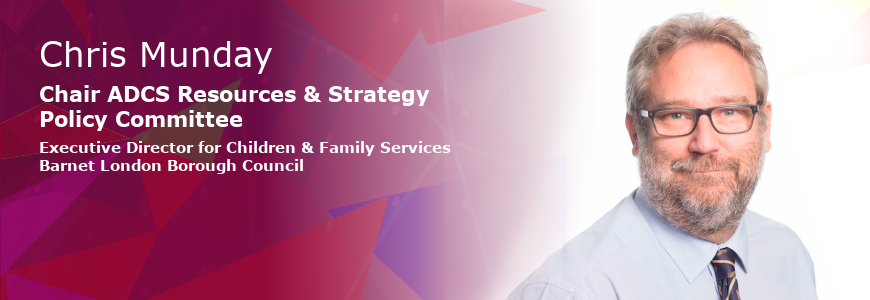
Across the country we are focussing on Children’s Mental Health week. It is such a great initiative and Place2be has a range of resources for both schools and families. The campaign has a clear message about the importance of listening to children and young people about their mental health needs and doing something about it.
We have just developed a Mental Health charter in Barnet agreed by all our partners, co-produced with children and young people. There were some clear messages. Children emphasised that mental health and well-being is as important to them as physical health. They expressed clear views about how world events impacted on children’s mental health, with the impact of war and conflict causing increased anxiety and concern, at this present time, probably exacerbated by social media and 24-hour news cycles. They talked about timely access to the support they need. In some other work another group of young people in Tier 4 mental health in-patient services were explicit about their desire to be discharged from that provision in a timely way and frustrated that they can’t be. These are not high expectations; young people are not outrageous in their demands. Yet we struggle when responding to these sensible and helpful insights from our children and young people. We struggle because the provision and the system we operate in is not fit for purpose in 21st century Britain. I hope we would all agree that there is insufficient investment in children’s mental health. The roll out of mental health teams in schools is slow with still significant numbers of schools not benefiting from the investment in prevention. Waiting lists for specialist CAMHS assessment and intervention are too long leaving children and families without access to the support they need, escalating concerns with their mental health and wellbeing and facing considerable stress. Decisions to close some Tier 4 mental health beds have not come with investment into alternative types of provision which could meet the needs of children who can’t return to their families. This has led to an increase in applications for Deprivation of Liberty Orders and young people in provision that does not meet their complex needs. ADCS has been doing some work to understand the costliest placements across local authorities, including what some of the common factors and drivers are. We’re still looking through the detail but it is clear that those placements costing the most are for children with complex needs and described by the Nuffield Family Observatory as “children with very complex mental health needs but who do not meet criteria for detention under the Mental Health Act”.
As committed leaders we want the best outcomes for our children, but we can’t do this alone. We need an effective coalition across health, children’s services, schools and the voluntary sector to tackle this mental health crisis in England. For a number of years ADCS has called for an independent review of children’s mental health and well-being services. I renew that call. If we genuinely want to listen to children, we need fundamental reform and investment in this most critical area of policy and practice.
Related Blog Articles
Begin with the end in mind
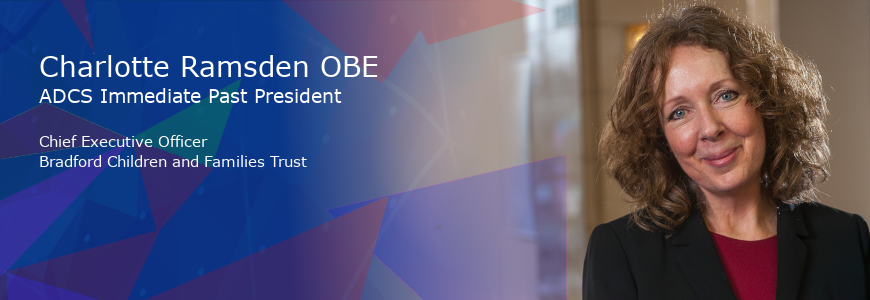
As I write my final ADCS blog as Immediate Past President and prepare to hand over my final ADCS baton to our current President at the end of March, one phrase keeps going round my head “Begin with the end in mind!” Why? Because it is a message in one of the leadership books I have used the most, which is Steven Covey’s “7 habits of highly effective people”. He focuses on goals and values and beginning with the end in mind by asking what you would want people to say about you at your funeral! It’s all about purposeful living now as well as purposeful leadership.
When I took on my first ADCS role as chair of the Health, Care & Additional Needs Policy Committee in 2016, I had no thoughts at all about what I would want to look back on when that time came to an end. I was full of passion and ideas about making a difference in respect of children in care, working with heath partners on more effective support for children with mental health needs, looking at better outcomes for children with disabilities, plus learning from inspirational ADCS colleagues. I wanted to hear the views of children and young people and be able to show we had responded. Looking back now, those themes are predictably still hot topics! I had no idea then that my ADCS journey would take me to being President during the second half of Covid and to working intensively with those leading the reform papers that are now the bedrock of Stable Homes Built On Love. I had no idea of the frustration I would feel at how slowly change happens or how some reforms that made so much sense then get quietly shelved.
Since I took on that first role, I have been overwhelmed by the purpose and passion of the ADCS commitment to achieving the best possible outcomes for children and families. Our end in mind is that all children, regardless of their needs, have loving, fulfilled and happy childhoods where they also learn to deal with the challenges that life brings. Of course, there can never be an end, and that vision can never be complete, just extended. The Association has always recognised that children and their families need different levels of support to achieve that vision. We hold onto the commitment for “A country that works for all children”, through a range of strong policy papers and analysis based on constant learning. We do intense work with national government and partners to drive change and exert influence for those commitments, intense work in policy committees and at regional and local level to learn from what works and to support each other in adversity. Over the years our shared understanding of what works has grown thanks to feedback and learning from young people, plus strong leadership and excellent research and practice development supported by key partners.
During Covid, we talked about unprecedented times and none of us want to go back there. The reality of post Covid has shown the damage to children and their families at a scale that is overwhelming: levels of poverty, deprivation and suffering that are devastating and a crisis of local government funding that threatens our actual survival. It is grit, commitment, and a belief that things can be different that keeps us going, plus a set of national reforms that if delivered (and properly funded) may make a real difference. Children need stable homes built on love, they need the best inclusive and creative education, and they need the right access to health support at the time that they need it. Without investment, plus a national commitment across government departments to prioritise children and tackle poverty, we will remain scavenging for crumbs among other priorities.
No one person can tackle the scale of this challenge but as a collective we are always stronger. This work is not the work of one year, or even ten, but the work of a lifetime and of a brilliant ADCS that sees people come and go but sustains and continues to grow its work and its collective purpose. We must never give up; our children’s time is now!
Related Blog Articles
Rainbow worrier
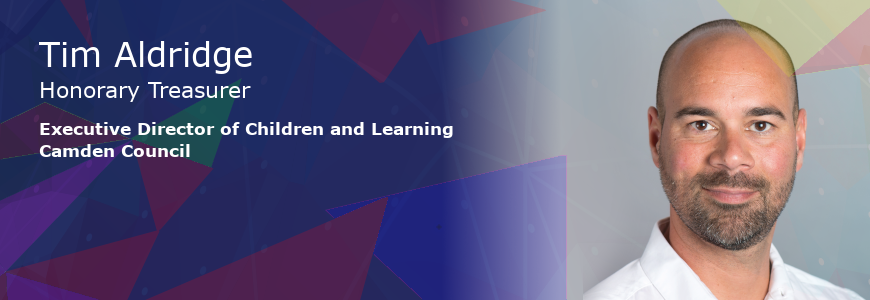
If I was going to choose a word for 2024 (which I’m not, as that would be quite strange) I think it would be coherence. I spent New Year in Tenby, which was beautiful although mostly very wet, and best enjoyed from indoors. When we weren’t inside hiding from the rain, we were out walking the dog (and occasionally the kids) on the beach, admiring the view and the many rainbows. It might have been on one of those walks that I began mulling this over and thinking about my own experiences as a Director of Children’s Services.
One of the greatest challenges I’ve had has been to make sense of the complex and fragmented context that we work in and working out how best to make a difference as a leader. Having started my current role quite recently, I suppose I’m still making sense of the new environment. Getting back to the office, I’ve been thinking about my role as a leader in creating greater coherence. If I’m honest, after being on leave for two weeks, the first step was just to construct a coherent sentence.
In our role as system leaders, seeking, achieving, and communicating a coherent interpretation of how we see the world is a crucial component of what we do. Without meaning to state the bleeding obvious, circumstances are often working against us. Whether it’s health, education, the youth justice system, or the myriad of social care reforms, sometimes the organisational and policy context can feel somewhat bewildering.
The ADCS policy paper A future vision for the education system makes an excellent case for creating greater coherence. This calls on the government to set out a clear long-term vision for the future. This includes an approach to education that is rooted in place and considers the needs of local children and communities. The paper makes a compelling case for the local authority to play a key role in shaping the response to local needs through place-based school partnerships.
I am very privileged to have joined Camden where there is a well-established place-based education partnership, and a strong commitment to working together across the local authority and the family of schools. The vast majority of schools in Camden are still local authority maintained, and whilst this is not a prerequisite for an effective place-based partnership, it certainly makes things simpler. In Camden we have established Camden Learning, a formal partnership which is a joint enterprise between the local authority and schools, established as an independent company in 2017. This partnership is based on a collective moral purpose and a shared set of values. All Camden schools have chosen to sign up to Camden Learning and take collective responsibility for their performance and to improve outcomes for children across Camden. This shared approach is rooted in local vision, relationships and networks.
This partnership has enabled the council to work with schools to develop innovative approaches to increasing access to enrichment and learning opportunities. This includes the development of formal and informal school partnerships to respond to the needs of our communities. The STEAM Hub (Science, Technology, Engineering, Arts and Mathematics) is a great example of using the power of place to draw in local industry partners in tech, life sciences, and academia to offer career activities and experiences for young people who would not normally have access to these opportunities.
Through our Education Strategy ‘Building Back Stronger’, with its focus on achieving both excellence and equity, we have set out an ambitious approach which places collaboration and co-operation at the centre of what we do. This enables us to work together as one system to respond to a number of challenges including falling school rolls, attendance, SEND and closing the disadvantage gap. This brings schools together in the spirit of collaboration, not competition, and with the explicit aim to bring about even greater coherence to the local system.
As I conclude this, my first ADCS blog, I feel optimistic and the words of Jimmy Cliff spring to mind. Whilst I’m not necessarily certain that ‘all the dark clouds that had me blind’ will be gone, I’m pretty sure that 2024 will have numerous bright sunshiny days ahead.
Related Blog Articles
"Go placidly amid the noise and haste" in 2024..
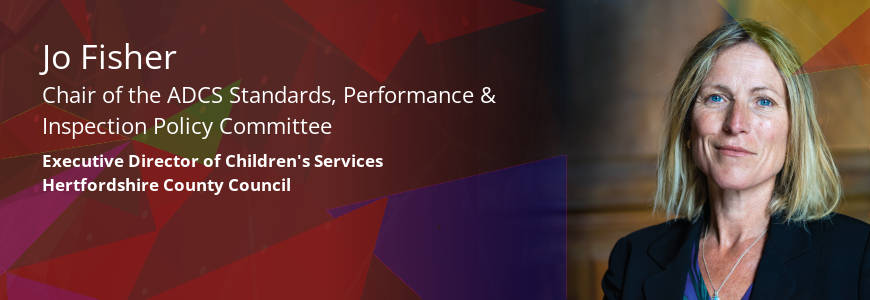
Ok, well if not placidly then go into the new year with pride and confidence. I’ve been reflecting on 2023 and many of the challenges it held, especially for those impacted by the conflicts and violence which dominated much of the year, in Ukraine, Gaza and Israel, and elsewhere; conflicts which have seen many more families and unaccompanied children seek asylum in the UK. We’ve also seen more children in need of help who are growing up in families facing significant financial hardship and distress. And I’ve seen the sheer determination of our wonderful children’s services staff, who see the consequences of this every single day and work hard to improve children’s lives in increasingly difficult circumstances. It is a sector I feel privileged to work in, and I’m glad to be continuing that journey with colleagues into the new year.
So, as my thoughts turn to the future, the noise and hasty challenges to come, that is what gives me confidence about 2024. I feel privileged to be Chair for the ADCS Standards, Performance, and Inspection (SPI) Policy Committee, and look forward to working with colleagues and wider stakeholders to continue to improve outcomes for children through high quality services.
Inspections play an important role in raising standards for children at every stage of their lives, but the ripple effect from the layering of inspection and regulation on children’s services has arguably taken its toll on provision, cost, and our workforce. In the last year, especially since the tragic death of headteacher Ruth Perry, inspections have come under greater scrutiny – and raised questions not just about inspection of schools but also about whether the overall one and two-word judgements for children’s services, including Area SEND judgements, can really sum up the complexity of the system. These can run the risk of giving a partial or negative story, and the fall-out undermines the hard work of staff to address the very issues raised.
My attention was grabbed this month by Sir Martyn Oliver’s (Ofsted’s new Chief Inspector) focus on training inspectors on mental health awareness and empathy, and the evolving debate about how a more proportionate approach to accountability and inspection – preserving the principles of improving outcomes and high standards – can work. The systemic pressures on children’s services – not least in care provision and SEND – mean that we urgently need the right level of funding from central government so that we can build change and better lives for children. So, I hope you all go steadily in 2024 ‘amid the noise and haste’ and strive for a brighter, happier and properly funded year ahead.
Related Blog Articles
Bottling the best of partnership working
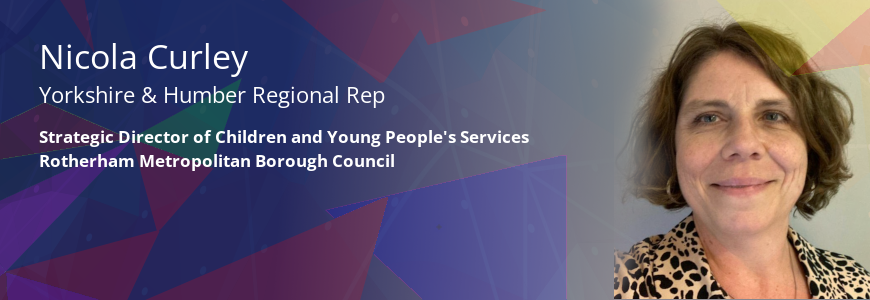
As I sit down to write this blog, I am very grateful to be in a cosy kitchen away from the terrible wind and rain we have been experiencing again across large swathes of the country over the tail end of the festive break. It has reminded me of the terrible experiences of some of our Rotherham residents in the latter part of the autumn with the flooding in Catcliffe and the similar challenges across the Yorkshire and Humber region for many communities and a lot of our own staff in recent weeks.
Such events are sadly part of the regular cycle of challenges for residents and colleagues in my newly adopted region, and I have been overwhelmed by the effectiveness of our collective responses as well as the huge care and concern shared by all our staff for the people significantly affected by the devastating impact of climate change on our increasingly severe weather events. These impacts are always felt most keenly by those with the least resources to withstand them and the ongoing efforts to support those families on top of the “day job” has been an example of local authority and partner working at its absolute best.
This quality of pulling together to tackle the hard jobs across 15 local authorities will stand our region in good stead as we move into 2024 faced with the vast array of government initiatives announced just before Christmas by the Department for Education. There is a huge amount for us to process as leaders, let alone implement over the next 12 months, and with more guidance and innovation programmes still to come! It’s vital that all the reforms happening across the system are joined-up and that government takes a long-term view. There will be many challenges ahead, some of which were explored in ADCS Vice President Andy Smith’s blog last week.
We will need support from our partners across the system in this nuanced and complex work, just as we did during the recent terrible weather events. If we can continue to work in that same joined-up and outcome focused way, we will be able to develop local strategic plans that start to make this manageable for all of us. We can then scale this up on a sub-regional and regional basis as we consider the challenges and opportunities these very significant changes bring, especially to our early help landscape.
I am confident, however, that we will be successful in understanding the key elements of the reforms so that they are genuinely transformational and will actually make a difference to children and their families’ experience - with the support of each other and our fantastic and dedicated staff. Listening to our children, young people and families about how we should make these changes will be key, and probably the best part of my job moving forward.
Good luck everyone!
Related Blog Articles
Kinship Care: An opportunity not to be missed
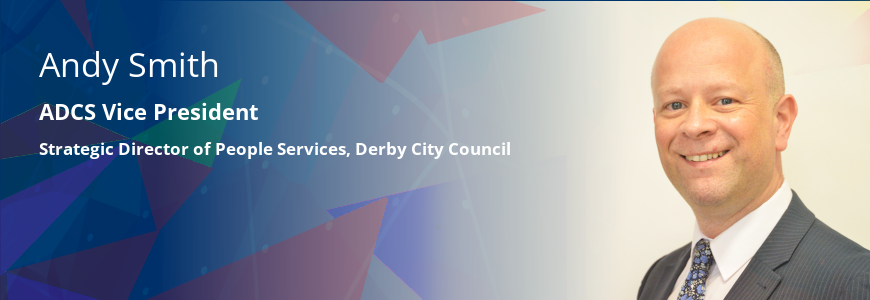
It’s the day after Boxing Day as I write this blog and whilst I hope many of you will still be delving into that tub of chocolates and enjoying time with family and friends, I have spent this morning reading Championing Kinship Care: The National Kinship Care Strategy published just before Christmas. We’ve probably all been touched by kinship care at some point in our lives. For me, back in the 1980s and 90s, my parents brought up my two nephews for much of their childhood. There’s no doubt that the focus and profile government is giving to kinship care is long overdue and the importance and impact of kinship care on children can never by overstated.
Following the publication of Stable homes built on love (SHBOL), ADCS put together a working group of Directors of Children’s Services to examine the existing barriers to kinship care and consider how things could be done differently. ADCS President John Pearce asked me to lead this which I was delighted to do although it became quickly evident that it was not going to be straightforward, and honestly, a lot harder than we thought, going backwards and forwards over what this new and improved system should look like and how it should be implemented. Ultimately, we decided to narrow our thoughts to the fundamental principles which we see as being non-negotiable and think should be at the heart of a new system leading to us publishing a paper on this in the autumn.
One of the conceptual shifts we need to make is that transforming the system for kinship care just doesn’t work if you try and shoehorn this into the legislation and the system as it currently stands. We’ve got to think long term and reimagine our ambition against the backdrop and context of family help as envisioned in SHBOL. This can be challenging since many aspects of what is outlined in SHBOL are still in the process of being developed and tested through various pathfinders, and the eight kinship care pathfinders have yet to be announced. It’s going to be crucial that the learning and synergy across the various pathfinders is fully understood (for example, the family network aspect of the Families First for Children pathfinders and the forthcoming ones on kinship care will probably be focusing on the same children).
In the ADCS paper, we talk about extended family care rather than kinship care. We think this more accurately describes any person connected to a child through family, marriage or an adult that they have a meaningful relationship with. And that’s because the family aspect is so important here; it’s the intangible connection to a child which motivates someone to turn their life upside down and do everything they can for that child to keep them safe and help them to thrive.
It’s so important that this new system makes it easier for kinship carers. The different pathways must be simplified, access to support must be easier, and there needs to be more understanding about the specific needs of these children and their carers. ADCS still has some key questions over the role of the local authority in the broadest sense as a coordinator and/or facilitator of support for kinship carers, and more specifically the role of children’s social care; we do not believe that a legal order should be a gateway to support. All entitlements which should be defined at a national level, including financial, should be available to all extended family carers and rooted through the welfare system in the form of a ‘child benefit plus’ payment. There’s so much learning to be had from overseas, and we’ve heard first-hand how well this works in New Zealand to avoid any additional stigma and involvement form social workers.
Whilst there is much to applaud in the National Kinship Care Strategy, it’s important that designing a new system doesn’t inadvertently create a two-tier system or lead to unintended consequences by either pulling family members into the children’s social care system or disadvantaging families who would never be known to social workers but who the new system should be supporting.
Related Blog Articles
All I want for Christmas

We are coming to that time of year when letters to Father Christmas have been posted and children (and many adults!) across the country are waiting to see what the festive period brings. After a year of many challenges it’s also a good time to look to the future as we move towards the end of this parliament and the next Comprehensive Spending Review.
At the recent National Children and Adult Services conference in Bournemouth there was understandably lots of talk of financial challenge and disappointment with the Autumn Statement, but I also felt a real shared purpose and positivity about how we could make things better. Much of the discussion was upbeat and forward looking with a real focus on the imperative to improve outcomes for children by working towards high quality sustainable services.
So, I may be a bit late but what would be on my Christmas wish list for government (on the assumption no additional funding will be found). They should;
- Set out national conditions to intervene in children’s residential care to ensure that public money is being spent on improving the care of children and not shareholder dividends or paying down debt. Loving homes for our children should not be a commodity.
- Implement the agency social care workforce reforms at pace and revisit the original proposal to remove managed teams from case holding social work. Children and families need stability to build relationships and the whole system needs a sustainable workforce.
- Review the impact of ever growing inspection and regulation on the system. The system needs accountability, but it must be proportionate and improve outcomes for children.
- Remove fragmentation that is driven by competing national policy positions, particularly in education, criminal justice, and health. We need to work together in a coherent joined up system if we are to make things better for children.
- Be brave enough to accept that the 2014 SEND reforms, whilst set out with good intentions, have failed and created a system nobody is happy with, which is unsustainable and is not meeting children’s needs. It needs systemic and far reaching reform.
- Address the escalating Home to School transport costs experienced by councils which is driven by the current statutory guidance. The core legislation dates back to the 1944 Education Act and a time when children overwhelmingly walked to their local school.
- Develop an inclusive education system that meets the needs of all children. ADCS recently published a position paper A future vision for the education system and many of the answers already exist in the government’s own work i.e. Schools White Paper Opportunity for all and the Timpson Review of school exclusions, both of which need revisiting.
We do have a vision for a future social care system set out in Stable Homes, Built on Love and a partial response to the SEND challenges in the national improvement programme, but the current situation requires urgency to address, at pace, some of the intractable issues listed above.
Ultimately, while I have tried to avoid mentioning finance, as well as addressing the issues which are driving unsustainable costs, local government is substantially underfunded. Unless that is addressed, our children will not get access to the services they need and deserve.
Despite all the challenges, I am optimistic for the future and we must not forget the amazing job our staff across children’s services do each and every day. I’d like to thank them all for their commitment to make things better for children and young people. Hopefully everyone will get the opportunity to have a lovely Christmas and enjoy a good break, although I know many will still be working hard over the holiday period to support children and families. Hopefully 2024 will bring at least some of the things on my Christmas list.
Related Blog Articles
Cross sector working to improve support for children in complex...

Justin Russell is the Director General for Families Group and is responsible for children’s social care at the Department for Education (DfE), John Pearce is the President of the Association of Directors of Childrens Services (ADCS), and Professor Prathiba Chitsabesan is National Clinical Director for Children and Young People’s Mental Health at NHS England. Here they share an update on the cross-sector action we are taking to improve support for children in complex situations with multiple needs, alongside existing resources supporting system change.
In recent years we have seen a steep rise in the number of children and young people being placed on Deprivation of Liberty (DoL) Orders. There has been an increase of 462% in three years up to 2020/21 (Nuffield Family Justice Observatory using data from Cafcass England), and a total of 1,249 children were subject to a DoL Order in the 12 months up to July 2023.
We know more needs to be done to improve outcomes for the children and young people who can find themselves caught up in a web of services that do not always come together effectively to provide the holistic and consistent care they need. This group consists of some of the most vulnerable members of our society, and we need to do more, together, to keep them healthy, safe and help them overcome trauma and adverse childhood experiences they may have experienced in their lives.
Following the conclusion of the recent Deprivation of Liberty Court pilot, the Government has now established a new Task and Finish Group, co-chaired by the DfE and NHSE. It aims to improve the outcomes of children and young people who are in complex situations with multiple needs and who are currently, or at risk of, being deprived of their liberty.
Our plan is to improve joint working and planning, informed by children and young people’s current experiences and by what they, and their parents and carers, say they want and would find helpful. To this end, the Office of the Children’s Commissioner is currently engaging directly with children, young people, their families and the professionals that support them. We also plan to survey local authorities, review casefiles and produce a user journey map. We will then use these outputs to develop and pilot evidence-based models of safe, therapeutic care and support.
Ultimately, our focus is on how children’s social care, health, and education systems can jointly fund and deliver integrated, collaborative, consistent and person-centred support. This should be available from the earliest opportunity and allow them to establish stable, trusting long-term relationships with the staff who support them on a day-to-day basis. It is also vital that, as part of this, we can bring forward safe, age-appropriate Ofsted-registered accommodation, with co-produced packages of multi-agency care and plans to support children and young people to move back into the community.
So, what can be done now?
Embed principles of care framework
The Nuffield Family Justice Observatory recently set out five principles of care for children with complex needs and circumstances. These include stable relationships, holistic assessments, multidisciplinary teams and having agency and respect. We believe that starting with these principles will help us to improve outcomes and in turn reduce the growing reliance on DoL Orders. We would encourage practitioners and professionals across health and children’s social care to consider these principles in local planning to improve responses for this cohort, including those who are subject to, or at risk of, DoL Orders.
The Task and Finish Group is the start of our work together to take shared responsibility and accountability for improving the experiences of, and the outcomes for, children and young people with the most complex needs. This will require new ways of working and strong leadership to drive forward the large-scale system change, but we’re up for the challenge. While this work takes place, there is some promising work already happening in local areas across the country.
Building on existing practice
The Hope Service in Surrey provides a multiagency offer for young people who are experiencing complex mental health, emotional, social and behavioural challenges, while Extended Hope is an out of hours service and a home where children and young people can go for up to seven days to be assessed and supported in a safe environment.
The Framework for Integrated Care (Community) offers additional support for the most vulnerable children who have complex needs. The emphasis is on better partnership working across complex and often fractured systems, and with the individual child and their family or carers. A dozen vanguard sites are implementing the Framework by providing psychologically informed capacity to other services to wrap around the child, ensuring they get the right support needed. Case studies and information on shared vanguard learning and impact so far can be accessed via request via the FutureNHS Collaboration Platform.
This builds on measures the government have already taken to address some of the other issues in this space. This includes the DfE investing in children’s home provision, backed by £259 million of capital funding, which is the largest package of children’s social care placements since 2010. We are already seeing local authorities using this funding to bring new, specialist open residential provision on stream, with 48 new placements completed so far, and more planned over the rest of this spending review period.
It is so important that we continue to come together across our sectors to ensure we are doing everything we can to support our most vulnerable children receive the care they need - and we look forward to working with you all to achieve this.
For other resources, please follow this link.
Related Blog Articles
International migrants day

Colleagues, Monday 18 December marks International Migrants Day and as Chair of the Association’s Migrant Families Taskforce, I wanted to revisit my first blog for ADCS published back in August, which reflected on a recent visit to Dover in Kent with Esther, ADCS Chief Officer, to better understand the experiences of under 18 year olds arriving in the UK, without a parent or carer, and who are claiming asylum.
Since then, I have had the privilege during November to present the Association’s views to both the Joint Committee on Human Rights in the Palace of Westminster and to the National Children and Adults Social Care Conference in Bournemouth. The former consisted of 12 members of the House of Lords (including Dames Doreen Lawrence and Helena Kennedy KC) and the House of Commons tasked with examining matters relating to human rights of asylum seekers in the UK, as well as scrutinising draft legislative bills for compatibility with these rights. At the Committee hearing, I spoke in relation to the Illegal Migration Act 2023 (IMA) and its compatibility, or not, with Children Act 1989. We believe that these two Acts will clash not least because of our clear duties under the 1989 Act to care leavers and the possibility of children in care being detained, and potentially transported to Rwanda, when they turn 18 years old. We also believe that there are other risks associated with the IMA, more on that later.
First some context to set the scene. In the five and a half years between 2016 and 2021, 2,792 children and young people under 18 years old were transferred, primarily from Kent, to other local authority areas across the country via the National Transfer Scheme (NTS), with on average 40 or so children and young people transferred each month. Whereas between January 2022 and September 2023, 5,542 children were transferred via the NTS, representing an average of approximately 260 per month.
In total, as of March 2023, 7,290 unaccompanied asylum seeking children were in care, up almost a third (29%) on the previous year and up 42% on the pre-pandemic position. This cohort now represent almost 1 in 10 (9%) of all children in care, 96% are male and 76% are 16 or 17 years old compared to only 16% of all children in care of this age. This reality presents some challenges to the sector including: place planning for children in care and sufficiency of placements; social workers doing more age assessments; funding continuing not to reflect actual costs of care, and now the uncertainty and worry caused by the Illegal Migration Act 2023.
The IMA 2023 could have the unintended consequence of encouraging more arrivals presenting as under 18, more children traveling here alone via boat, and children going missing from care as they approach their 18th birthday driven by the fear of detention as a young adult. Recently published government data for the first nine months of 2023 show that while “all-age” illegal migrants arriving on the south coast is down 25% since the same period in 2022, there has been a 12% increase in arrivals aged under 18 meaning that children now represent 1 in 10 of those arriving, compared to 1 in 15 in 2022.
The NTS was never designed to deal with this number of children and young people arriving alone in the UK to seek asylum. The Association has questioned whether the National Transfer Scheme remains fit for purpose and is encouraging the Home Office and Department of Education to urgently review it with us. We’re also continuing to advocate for the recognition of the primacy of the Children Act 1989, and the long established entitlements and protections it contains, to continue to apply to all children in care regardless of where they were born. It’s the right thing to do.
Related Blog Articles
Closer to home
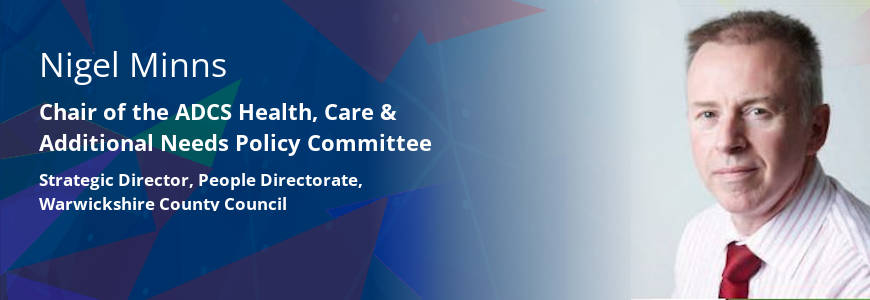
Having spent an enjoyable and thoughtful few days at the NCASC conference in Bournemouth last week, I have been reflecting on the workshop session on implementing learning from the National Panel’s reports on supporting children and young people with disabilities and complex health needs that I had the pleasure of chairing. As we eagerly await the government’s response to the phase 1 and phase 2 reports, it’s a good time to take stock of what this vulnerable group of children and young people want and what we, as a system, need to do to ensure both that we listen to them and that their needs are met.
I agree with the National Panel’s recommendations that the system needs to be thoroughly reset for these children and young people; high quality care must be brought closer to home. Ideally, these children and young people should be able to remain living at home, despite their significant needs. However, their families will need help to do this. Wraparound support in the home should be routinely available from care and health professionals, as it is in adult social care, to make this possible. We also need long-term and sustainable funding for regular short breaks, which would also allow these families the opportunity to recharge.
For children and young people whose needs cannot be met with a bespoke wraparound support package in their home, we need local provision - where they can remain connected to their communities and the people who care about them the most. While closed institutions always carry risk, physical proximity to families and connected persons, as well as responsible professionals, will significantly reduce the inherent risks identified in the Panel’s two reports.
These services and provision can only be developed effectively together with health and education partners and through joined up national policy and funding. While I don’t necessarily agree that Regional Care Cooperatives will solve the problem, there are huge opportunities for LAs, health partners and voluntary organisations to work together to develop therapeutic children’s homes to better meet the needs of this cohort. At a recent meeting of the ADCS Health, Care and Additional Needs Policy Committee, we heard how Wakefield and Hertfordshire Councils are opening innovative, jointly commissioned homes for children and young people with complex needs in a similar vein. There is much learning which can be drawn across, including the management of complex contrasting governance structures and decision-making processes. If we keep children at the heart of this, surely we can find a way through the inevitable bureaucracy and governance challenges?
Services like this can only work if there is a clear understanding of roles and accountability across social care, health, and education partners. We must move away from the age-long argument of who should have to pay, and instead turn the conversation to what can we put in place to best support children and young people’s needs?
For this, we need a thorough system wide step-change in approach. While recognising the financial challenges for ICBs, the NHS needs to start prioritising children and young people whose needs often play second fiddle to those of older people and to urgent priorities such as hospital discharge. We need a new system of placed-based leadership, with the DCS as system leader and champion for children, with the levers and influence necessary to deliver on the ambitions we hold for children, young people, and their families.
Related Blog Articles
NCASC 2023

This week colleagues from across both children’s and adult services came together in Bournemouth for the 2023 National Children and Adult Services Conference. A packed programme filled the three days with a mix of plenaries and workshops, including keynote speeches from David Johnston MP, Minister for Children, Families and Wellbeing; Helen Hayes MP, Shadow Minister for Children and Early Years; and Amanda Spielman, HMCI of Ofsted.
The conference opened with keynote speeches from Cllr David Fothergill, Chairman of the Community Wellbeing Board, LGA; Cllr Louise Gittins, Chair of the Children and Young People Board, LGA; Beverley Tarka, ADASS President, and John Pearce, ADCS President.
In John Pearce’s speech he addressed many of the challenges local authorities are facing and the asks of government to provide funding to meet the substantial financial pressures in children’s services. Amongst numerous rounds of applause from delegates, John highlighted the issues around child poverty, many of which have been created or exacerbated by national policy decisions. During his speech, he announced the publication of the ADCS policy paper A future vision for the education system which outlines the need for a more inclusive system that meets the needs of all children and young people, with local authorities at its heart. Finally, he highlighted some immediate measures government must take:
• Set out national conditions to intervene in the children’s residential care market;
• Ensure the successful implementation of the agency workforce reforms and revisit the issue of project teams;
• Revisit the 2014 Children and Families Act and SEN Code of Practice to remove the drivers of demand that have overwhelmed the system;
• Modernise the home to school transport legislation, the core of which dates back to 1944;
• Revisit the impact of the ever growing inspection regimes on the system; and,
• Remove the fragmentation by design in our education and health systems to integrate at local level.
The full transcript of John’s speech can be found here and the link to the press release is available here.
There were a range of sessions on offer throughout the conference. On Wednesday, we had a session focussing on the Families First for Children pathfinder programme and heard from colleagues from the three LAs that are Wave 1 pathfinders. They discussed their work trialling the reforms across family help, child protection, family network support packages and safeguarding partner arrangements. Workshops that afternoon focused on improved practice in response to child sexual abuse; how councils are supporting unaccompanied asylum-seeking children and the impact of national developments in this space; and an overview of Hampshire’s journey in developing and implementing a Family Help model in response to the Independent Review of Children’s Social Care.
On Thursday we heard from David Johnston OBE MP, Minister for Children, Families and Wellbeing who despite being unable to join us in person, delivered his keynote speech virtually. He noted that the Department is committed to further understanding the myriad issues faced by the sector and is keen to work with and listen to LAs to find solutions.
Sub-plenaries on Thursday included inputs from Norfolk and Derby councils who shared their experiences of taking an analytical and structured approach to adopting an inclusive system in children’s social care and SEND and the impact this has had. Delegates also had the opportunity to hear about schools at the heart of their communities during a sub-plenary session, chaired by Heather Sandy, Chair of the ADCS Education Policy Committee, and with insightful input from Helen Lincoln (DCS Essex) and Tim Aldridge (DCS Camden), which looked at ways in which schools and LAs can work together to create a more inclusive environment. Workshops that day covered multi-agency safeguarding; kinship care and the ADCS principles for a system of extended family care; and the delivery of early education and childcare - looking at what works and how the whole system can support the early years and ensure all children and families have access to support.
On Friday, the final day of conference, delegates engaged in a variety of workshops. We discussed how learning from national reviews has created positive change for children with disabilities and complex health needs; plus, a session looking at supporting whole family emotional wellbeing through trauma-informed parenting programmes. We ended the day with plenaries from Ofsted including a keynote from HMCI Amanda Spielman and NHS England Chief Executive Amanda Pritchard, before Councillor David Fothergill, Chair of the LGA Community Wellbeing Board gave his closing remarks.
There was lots of activity on social media, via #ncasc23, over the last three days. Speeches and presentations from the event will be posted onto the conference website. After another enjoyable and eventful conference, we hope to see you all again at next year’s conference, held in Liverpool, for more interesting discussion and debate.
Related Blog Articles
Supporting our workforce

The Government recently responded to its consultation on the use of agency social workers. As a sector, we gave a clear message about improving the experiences of children and families and driving down costs. Whilst ADCS broadly welcomed what was set out in the government’s response, we were disappointed that not all of the suggested changes are to be taken forward. Our asks of government to better regulate the market are never going to be a panacea for all our workforce woes.… but it feels like a step in the right direction, certainly in terms of addressing some of the financial implications of our reliance on this market.
Whilst we wait for the new reforms to come into play, the onus will continue to be on us as leaders to do what we can to mitigate the issues we grapple with on a daily basis within a complex environment. In the North West we have a long history of collaboration and workforce is a strong focus in our new jointly agreed DfE NW Improvement Plan. Our previous successes over many years in the spread and scale of innovation certainly suggests that among other workforce initiatives the current Greater Manchester Pledge could now go further.
In my local authority we have felt the impact of a reliance on a temporary workforce over the past three years. Having doubled the number of social workers in our establishment as part of our improvements (and not having any knitting skills) we slowly but steadily have managed to exit our use of managed teams and reduce our overall reliance on agency staff. We as many before us have doggedly focused on the key ingredients of making Wigan a great place to practice good social work. Through authentic leadership and recognition, promoting respect for those we work with, and giving space for creativity and individuality, we have built a now stable and permanent workforce. Letting staff know that the work they are doing matters and showing this by tying it to the vision and outcomes for our children and young people has been critical. This, along with really looking after our workforce with a strong corporate offer encompassing compassionate wellbeing and kindness, as well as practical and financial help are why our staff tell us they are coming to and staying in Wigan. Moving forward, as we consider both the opportunities and risks of AI in my Authority, as a sector we need to be at the forefront of thinking how it could benefit our workforce.
As ever, our staff tell us that having a good, supportive working environment that allows good social work to flourish generally wins over and above a higher hourly rate. This is not to say that the current context is not incredibly difficult and of course the cost of living impacts heavily, but my view is that if we keep our eye on the prize of delivering consistently good social work practice based on strong and established relationships with our children, young people and their families and carers, then creating the best environments in which to work becomes absolutely necessary.
Related Blog Articles
Building a workforce for the future
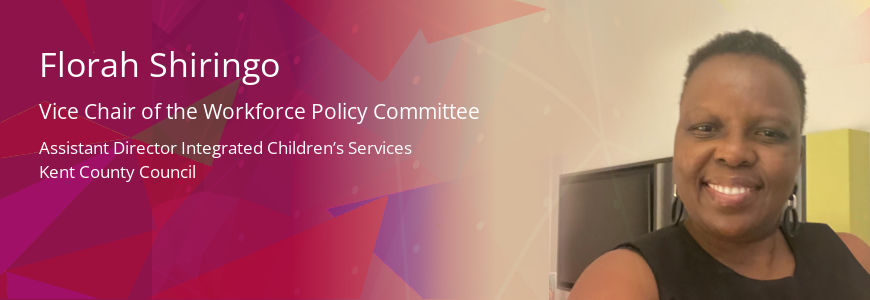
I was recruited as one of 16 international social workers arriving from Southern Africa in 2003. What is striking are the parallels of 20 years ago and now. Key issues for international social workers remain such as arriving in teams that are struggling with recruitment and retention issues and high caseloads whilst being expected to hit the ground running within weeks of arriving.
The number of social workers leaving the profession in the UK has been rising since 2017, and social workers leaving child and family positions in England exceeded new starters in 2022. According to DfE statistics, 5,400 social workers left the profession resulting in a record 7,900 vacancies being reported in 2022, a 21% rise from 2021.This prompted many local authorities to extend their recruitment to international social workers directly or through agencies. These challenges make me reflect on my own experience 20 years ago arriving as an international social worker. Once again this was prompted by a shortage in social workers.
The challenging circumstances that some international social workers joining an LA find themselves in has led to some of my colleagues leaving within months of arriving in the UK, leaving to return home due to poor experiences. If international social workers are part of the workforce for the future, there has to be equal investment in supporting them appropriately by offering a culturally sensitive induction and providing additional resources to work alongside managers to support them both pre and post-arrival.
I am aware of local authorities that have developed a good package of support for international social workers that includes supporting them pre and post-arrival. A strategy that only focuses on recruitment without investing in retention of staff only leads to ongoing staff turnover even after positive recruitment. If we are to build an inclusive workforce for the future, there must be greater thinking about how our workforce is supported according to their needs. The local authority that recruited me 20 years ago was ahead of its time. They provided a 4-week bespoke induction for us as a group, and more importantly dedicated a senior manager to support us for a period of six months post arrival.
I also benefited from having a manager who was supportive, who took their time to build on my experience and therefore gave me confidence to do my job. As a result, I stayed in the local authority for 13 years before I left as a Service Manager. I am here as testimony to others that with the right support it is possible to develop international social workers and that they can be a positive solution to workforce challenges.
There is a role for every leader. In the words of ADCS President, John Pearce, in his blog last month Celebrating diversity and making positive change, ‘as leaders in children’s services, we are at our strongest when we harness and empower the full range of talents across our sector’. For me, this includes how we need to support international social workers to improve staff retention so we can continue to build an inclusive workforce for the future.
Related Blog Articles
The same, but different
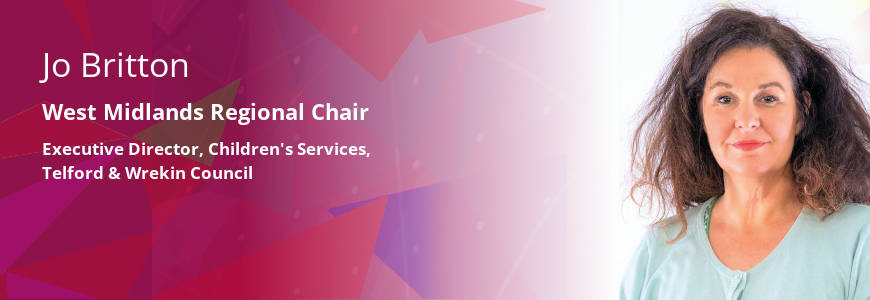
November can be an odd month. We are not yet at the end of the year but are planning for it. I don’t know about you, but I am being gently reminded by comms people that I need to start thinking about writing end of year messages; various emails are coming through about preparations for Christmas meals, but my attention is being turned to assuring we can do the best we can for our most vulnerable over the holiday period. Yet conversely, November’s focus is also on next year’s budget; our Regional Team are keen to ensure they get first dibs on my calendar, my PA has similar thoughts, and literally as I sat down to plan this piece, an email dropped in from Ofsted wanting to discuss next year’s Annual Conversation programme!
November, I have concluded, is neither in this year or next. It sits in its own twilight…
Looking at this from a serious perspective though, we may be excused for thinking that one year is like the next. To some degree of course, it is. So many of those things we have done in 2023, we will do again in 2024, and beyond. But in Telford & Wrekin we are implementing Family Networks, so I know that we will be doing many things differently over the coming year. We have just had the Child and Family Social Worker Workforce Government consultation response, which may not have offered all we had hoped for, but will no doubt change the way we work. I was also interested to read ADCS’s recent paper on Principles for a system of extended family care, an area of practice which I hope is going to be re-shaped over the coming year.
Earlier I mentioned budget setting. It seems that we have entered a second wave of austerity yet are only just out of the last. Savings need to be made and for some, the sense of urgency is greater, but I can’t help but wonder if we won’t all find ourselves in a precarious financial position sooner or later. So, there is another factor that will impact service delivery and the way we do things next year. It may be that we have to scale back services or reconsider how we use specific roles, but things are likely to change.
In October John Pearce, in his Presidential capacity, attended our regional DCS Network meeting. It would be of no surprise for you to hear that much of the above was discussed with him and I am sure that some of the same will be discussed with ADCS Vice President Andy Smith next year. But when I reflect back on the meeting notes from past President Steve Crocker’s visit in 2022, I see that we were speculating on what Josh MacAlister’s recommendations might actually mean in his independent review of children’s social care, and how the Government would respond to them. I particularly noted the then position of ADCS regarding Regional Care Co-operatives (for those of you who don’t recall, it wasn’t favourable). So, in some respects we have moved on, whilst accepting that progress in other areas is slow.
Once we have got through this twilight period and are well and truly focused on 2024, we might all get to appreciate that yes, we will have much of the same old same old, but it doesn’t need to be. In short, let’s not forget our role, both individually in our organisations and collectively, as regions and a national organisation. We are the game changers, making sure that the future is reassuringly familiar yet productively different.
Related Blog Articles
Children need change

In 2017 ADCS published the policy position paper, A country that works for all children. The paper aimed to articulate the many challenges children and their families were facing at the time and the wider contextual impact on them. We are currently in the process of updating the paper, and, since it was first published, much has changed as we have lived through a turbulent time.
Dozens of inquiries, learning reviews and reports have been published, an array of new duties and legislation have come into force, and we have experienced a global pandemic, however, there has been no progress on vital issues such as poverty, children’s mental health and local government funding. In fact, the opposite is true. We have gone backwards and now face a poverty crisis, a children’s mental health crisis and a funding crisis in public services. A country that works for all children must invest long-term in children, their families and the public services that support them to ensure the conditions are in place to help them thrive. That is even more important now than it was in 2017.
Since 2010, funding for local authorities has reduced significantly impacting the services and support available to children and families. Too often funding is allocated via a competitive process or pots of funding are time limited, similarly most policy decisions generally don’t go beyond one parliamentary cycle. There are exceptions like the Supporting Families Programme (formerly known as the Troubled Families Programme) but the longevity of funding is often uncertain, despite evidence of impact.
We need government to take a longer term view of the issues children’s and other public services are currently facing as was highlighted by the latest Institute for Government (IfG) Performance Tracker. The IfG report includes important messages for ministers and the Treasury. ‘Public services that for years have been creaking are now crumbling. The public is experiencing first-hand the consequences of successive governments’ short-term policy making’, it warns.
There are multiple pressures facing local authorities from insufficient funding, difficulties recruiting and retaining enough social workers, a rising number of children in care and a shortage of suitable places for them to live, and record numbers of current and former unaccompanied asylum-seeking (UAS) children requiring our help and support. The needs of children and families are also becoming more complex.
Local authorities must spend on statutory services where there is need, but this is often at the expense of those that prevent future demand and which our communities value. Local authorities are committed to keeping children safe from harm and we are spending more on children’s services nationally, but it is simply not sustainable to continue as we are. We need long term policy decisions with children at the heart, this must be backed by sufficient, long term and equitable funding for children and the services they rely on. We cannot expect short term cashable savings from investing in early help, it’s a long game but the gains from this investment will be felt by the individual and by society.
So, what do I hope to see in next week’s King’s Speech which will set out the government’s priorities for the next session of parliament? I would like it to provide long term solutions to many of the issues that are negatively impacting the lives of children and families today, but above all else, I would like it to signal a shift in how we currently invest and support children. Children don’t vote but they are our now and our future yet not enough national attention or resources are being focused on preventing poverty or other issues that children and young people face today.
Children need change.
Related Blog Articles
Thinking long-term

Next month, the Chancellor will deliver his Autumn Statement, outlining government’s plans for public spending. There are many public services under strain that will undoubtedly have made their case to the Treasury for additional funding to ease pressures and help them plan for the future. Their concerns should of course be heard and acted upon by ministers, but I want to focus this blog on the pressing issue of children’s services funding.
For many years, ADCS has highlighted the damaging impact of over a decade of austerity on local authority children’s services and the children and families we support. There is a slew of evidence outlining the perverse impact on the system when money is taken out of preventative, early help services yet this is the only option left for many LAs who are trying, against all odds, to deliver a balanced budget. ADCS Safeguarding Pressures research evidences the rise in child protection activity over the same period of austerity and the pressure this has put on the system in terms of demand.
We still don’t have a long-term funding settlement for children’s services that recognises these pressures, despite the Independent Review of Children’s Social Care calling for the investment of £2.6 billion over four years to reform the children’s social care system and rebalance spending towards earlier help. We also have a reform programme that is based on the very services which are being cut back.
Children’s social care and high needs funding pressures are arguably the biggest challenges for local government finances. Many councils across the country are in serious financial difficulty, some are dealing with the realities of this now and considering issuing Section 114 notices, many more will face this conundrum over the coming 18 months if nothing changes. Local councils really are in a fragile, perilous state. There is clearly an urgent need to set a long-term equitable and sufficient funding settlement for children’s services, but this requires government to finally acknowledge the difficult reality we are operating within. For example, if we look at high needs funding pressures, the government’s response has largely been focussed on improving practice and trying to find efficiencies in how local authorities allocate their funding. I can assure you that this will not address the systemic problems in the SEND system that have led to eye watering deficits. However, if government were to instead focus on the systemic issues that have driven up costs and not improved outcomes for children, such as a mainstream education system that does not reward inclusivity and an over reliance on costly independent specialist provision, then collectively, we may start to be able to shift some of this. There are many similar examples across the sector, all with the common theme of requiring a whole system, long-term approach.
I therefore urge the Chancellor to think long-term and view the system as a whole when allocating funding. Disparate pots of time-limited grant funding from government over recent years, which often local authorities must bid and compete for, may have helped to alleviate some demand pressures but have not addressed the root cause. If government is truly ambitious, it can set us on a path towards a financially sustainable system that improves children’s lives. The evidence is there, we just need the financial backing to make the change.
Related Blog Articles
The Strength of our relationships
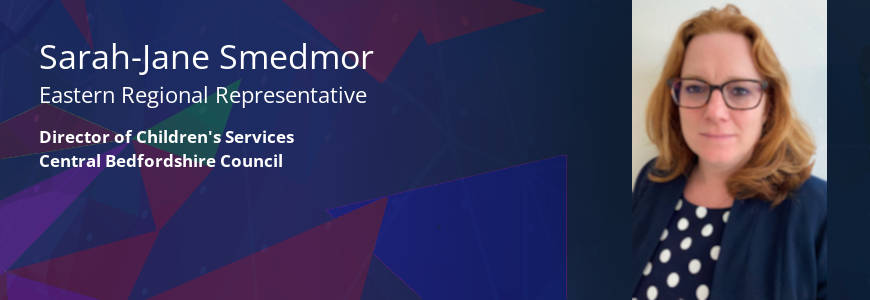
In the Eastern region we pride ourselves on a long and successful history of collaboration, co-production and support which has not changed even when the Directors of Children’s Services (DCS) or Assistant Directors may change around us. Our successful collaboration is underpinned by the strength of the relationships that we take time and effort to build and maintain. These were essential for me when I started as a new DCS and now, further into that journey, I’m aware it’s from my regional peers that I find that much needed support and guidance when I need it the most.
In the spirit of this collaboration, we held our regional conference this week, spending the whole day celebrating great social work practice across the eleven regional authorities. Having spent what has felt like weeks and weeks immersed in budget setting activities, it was such a joy to spend time with fellow social workers, focusing on how different practice models and creativity makes a positive difference for children and their families. What is always striking is the unique differences in practice models and approaches in each local authority. There was a real sense of what drives practice in each place, based on the needs of the communities they serve.
The conference was also timely in providing us with the right platform to launch our regional recruitment website, one of the ways we are collectively trying to attract great social workers and address the recruitment and retention concerns we all hold. We have deliberated many times about how we are fishing in the same pool for workers, concluding that our message is about attracting great social workers by showing them what is on offer to them in the region.
Professor Eileen Munro, as the keynote speaker, proved to be a great draw for the 300 delegates, providing the opportunity to think together about opportunities and challenges faced by our profession. A good reminder that safe uncertainty is a position that social workers hold much of the time and it is support from excellent managers, peers and a learning organisation that wraps around practitioners, allowing them to hold this space and enabling them to feel empowered and able to be creative. When there is so much uncertainty around us, investing in our people to support children has never been more important.
What was overwhelmingly clear throughout the day was the passion and commitment of our social workers to do their best for children, alongside their peers and partners, to create opportunities and the culture for social work to thrive. I left the conference feeling optimistic and energised working through these uncertain times, with the knowledge that social workers and children’s services continue to rise to the challenge thanks to the strong relationships we build.
Related Blog Articles
Celebrating diversity and making positive change
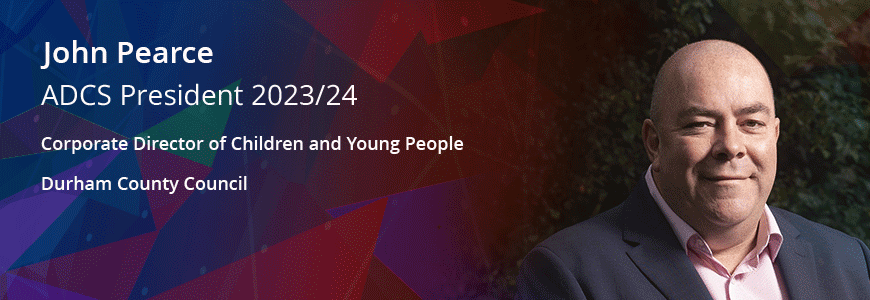
October marks Black History Month, where countries across the world stop and take the time to recognise and celebrate the considerable achievements and contributions of Black people throughout our history and right up to the present day. For those of us in local authority children’s services, it is an opportune time to reflect on the diversity of our own workforce, to celebrate progress and consider how to drive forward change in the future. As leaders of children’s services we are rightly challenged on how representative we are of the communities we serve and whilst we are seeing some progress it is too little and too slow.
I was keen to make this a priority focus for ADCS during my presidential year and work has been taking place to understand what more can be done to ensure we are a diverse and inclusive Association. A Working Group has been set up to bring clarity to ADCS’s role in this space by identifying where partners and individual ADCS members may be best placed to help move this agenda forward in children’s services. This will lead to a set of tangible actions we can take forward as an association to support change. We’re also in discussions with the LGA and ADASS too to learn, share and challenge each other in this regard.
However, in order to better understand how representative we are, it is vital that we know the current position. ADCS is undertaking a voluntary survey of all of its members, not only to better understand ourselves but also to support discussion around succession planning and workforce development both at the national and local level. We have been undertaking this survey since 2022 and have received a positive response rate so far, but we must keep building this picture so that we can have the right discussions. I strongly encourage all ADCS members to complete the short survey you will have recently received to give us as accurate a picture as possible of the level of diversity within our current membership. Of course, I know that data isn’t going to solve enduring societal inequalities but it can be a lever to open up new and challenging conversations.
We know that we have a long way to go in making local authority children’s services more diverse environments that properly reflect the communities we support and work with. It is also important for children and young people to see that they too can aspire to a career in children’s services by seeing themselves reflected in the professionals who have such an important impact on their lives. The sector has been alive to these challenges in recent years and there is a lot of positive work taking place across different local authorities and regions to attract a more diverse workforce and support staff from global majority backgrounds to reach more senior positions.
At the national level, The Staff College now hosts a BALI Network that brings together people who have completed the BALI programme to share their experiences and support each other and also invites allies to join, help, advocate and support the cause. We have also seen the development of the Workforce Race Equality Standard for social care. While it was disappointing to see that the government will no longer fund this important piece of work, it is incredibly positive that Skills for Care will continue to deliver its roll-out. These developments show that we are heading in the right direction but we must now capitalise on this momentum.
As leaders in children’s services, we are at our strongest when we harness and empower the full range of talents across our sector. I’m now half way through my presidential year and I hope the work undertaken this year will provide a springboard to accelerate progress. It requires our collective focus and commitment if we are to achieve meaningful change and it is incumbent on us as sector leaders to take responsibility for making that change.
Related Blog Articles
Everything, everywhere, all at once
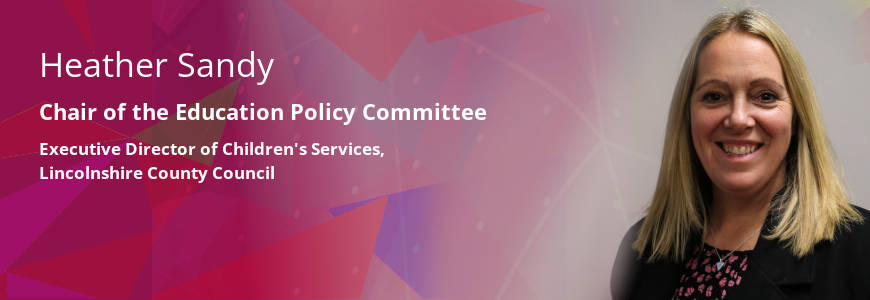
The education sector is no stranger to change. In recent years, planned reforms to the education system, which has become increasingly fragmented, have been layered with forced responses to the pandemic. As a consequence, fragmentation has become even more exaggerated. It has led to discordant and unconnected initiatives which place further pressure on a system which is in danger of losing sight of its purpose for children and young people. As one colleague recently described it, “education is everything everywhere, all at once!” As the national political parties ready themselves to set out their visions for the country, including the education system, the ADCS Education Policy Committee has worked with ADCS members across the country to outline what we see as the key issues and areas of focus, hoping to give local insight to national policy makers.
Our engagement with members across ADCS has highlighted that education is not only a fundamental right for all children and young people, but also central to achieving a more equal society where every child is given the opportunity to pursue their interests and achieve their potential. I know from first-hand experience that a good education can be transformative, both academically and socially, and offers children a strong sense of belonging but I worry that the competing priorities faced by many schools make this an ideal rather than reality for too many children and school teams. Competition can be a healthy motivator and all schools should be striving to secure the best outcomes for their pupils, but this has been intensified by a shifting accountability system focussed almost entirely on academic attainment and less on collaboration between local schools. This competition sees schools in challenging areas losing great teachers and too many young people shifted around different establishments to avoid data dips with no one taking responsibility for their future because they are not incentivised to do so.
Beyond schools, our early years and further education sectors have also suffered from a lack of long-term strategy and adequate funding which limits their unique role in improving social mobility. It should come as no surprise that we are seeing more and more children and young people who are less engaged with the education system - rising school exclusions and increasing levels of persistent absenteeism are just two examples of this and sadly, this disengagement is more acute for children who are from disadvantaged backgrounds. Now is the time to ask ourselves, what is education for and how does it meet the needs of children and young people today?
I am excited that we will be publish ADCS’s vision for a future education system at the NCAS Conference in October, calling for greater coherence to a sector that is struggling to place children at its heart despite a hugely dedicated workforce trying hard to so. Amongst other things, we will demonstrate the importance and value of place based partnerships which support strong collaboration driven by a shared moral purpose. A growing body of evidence suggests that this approach improves outcomes for those children and young people who are increasingly marginalised by the current high stakes system – something that is very much needed. I look forward to the vision being shared nationally and the opportunity to establish a direction for the education sector that has children and young people at its heart.
Related Blog Articles
Family Help – a new concept or an old ideal? Revisiting section...
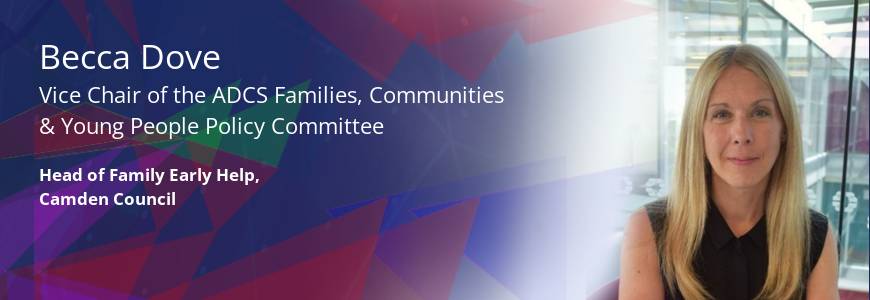
I didn’t plan to be researching section 17 of the Children Act 1989 for a masters degree at the precise moment section 17 came under the spotlight in the Independent Review of Children’s Social Care. But in March 2023, there I was.
For over 30 years, section 17 has been the north star of working with children and families for local authorities. In just 773 words, it sets a tone and expectation for family support, and for promoting and supporting family strength, in a way that no other legislative framework for the care and welfare of children has come close to. One of section 17’s most family support-orientated approaches was the inclusion of a gradient of needs (in parts 10 and 11 of the legislation) for anyone so inclined. Despite this, section 17 came to take on a particular meaning – entry to children’s social care towards the acute end of thresholds. In other words, a category rather than a continuum.
My research with 14 Directors of Childrens Services suggests an eye-watering array of factors for why section 17 is interpreted in this way. The influence of the inspectorate and compliance with statutory guidance wording. The role of partners, section 10 of the 2004 Children Act, and the challenge of having family support continuum duties split across two pieces of legislation. The importance of the workforce ‘beyond social work’– not to ‘hold’ families that should be open to a social worker but to ensure skilled workers with confidence and capability across the support continuum. The rising need for services (due in no small part to national socioeconomic pressures) and reducing local authority resources to respond, which echoed research on section 17 from 30 years past. There were however a small number of local authorities approaching section 17’s differently, using its ‘permissive content’ (as one participant put it) in creative and often innovative ways to help children and their families.
As debates continue over the meaning of the Care Review’s concept of ‘family help’, and over the wording of our statutory guidance Working Together, we might do well to pause and return to the views of those who debated section 17 at its beginning. In 1990, the In Need Implementation Group, (whose work you can read here) reflected that ‘Part III of the Act constitutes in a very real sense, the foundation stone of the whole of the Act [….] the implication is that it is designed to benefit a broad spectrum of families, not only to improve bureaucratic decision-making [….] the intention of the Act itself is the recognition of the normality of problems and difficulties facing all families’.
As we navigate this latest chapter in section 17’s story, how the broad family support potential envisaged by its architects can be best realised remains a question for us all.
You can peruse at your leisure a sketch note and short slide pack on this subject for more information.
Related Blog Articles
It's all about care
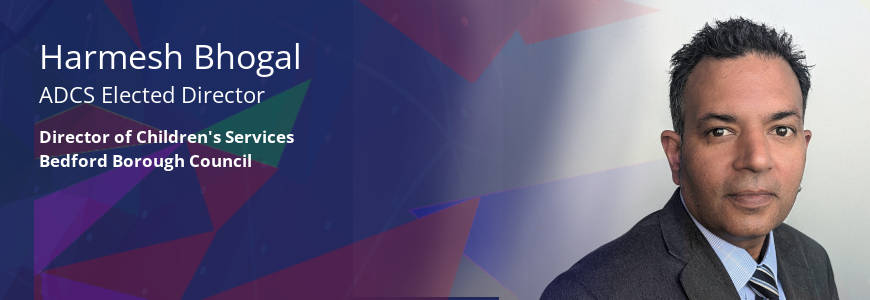
It’s a huge privilege to become an Elected Director for the ADCS Board of Directors and to be writing my first ADCS blog; I want to take this opportunity to say a big thank you to all colleagues who have warmly welcomed me into the ADCS family. The opportunity to meet and work with inspirational leaders with a vast amount of experience and knowledge is so valuable to a ‘baby’ DCS (as I keep being called!). I’m extremely grateful to everyone for their offers of advice and support alongside the very amusing / alarming anecdotes and stories about what to expect as a DCS, thank you all!
I had a much needed week off last week and visited Berwick upon Tweed accompanied by my better, and some say long suffering, other half. It was lovely to catch up with some old friends, enjoy the beautiful scenery and countryside and to have some time to think and reflect…inevitably for me that means thinking about work but importantly about why I / we do what we do.
Care is the simple answer and when I say ‘care’ I mean kindness and compassion. I was reflecting on the ever increasing challenges that colleagues across the whole of the children’s workforce grapple with on a daily basis within a context of decreasing resources, increasing demand and increasing regulation and inspection activity – all of which places a further burden on us all. Despite these very real challenges, we all strive to keep children’s voices and experiences at the very heart of what we do. That is a real testament to a committed and dedicated workforce that is hugely inspirational. And we do it because we care.
We care that decisions for children are made in a timely way and that permanence arrangements for children are stable and loving, we care that children are provided with an inclusive education and the needs of children with special educational needs and disabilities are met, we care that we meet the needs of separated migrant children often traumatised by their experiences, we care that children leaving care are well supported and transition successfully into adulthood and independence and we care that children who enter the criminal justice system are cared for as children first. I could go on because the list is never ending, just like the commitment of our workforce.
Furthermore, as a sector we are strong in advocating for positive change in social policy to improve the lives of children and families because of the deeply embedded values based within a social justice framework. Again, because we know and care about the impact this can have on the lives of children and families. We understand the strength of relational and restorative practice models and the value of meaningful co-production, all of which to me demonstrates how much we care about the people and communities we have the privilege of working with.
And whilst we can and must do more, we care about our most valuable asset, our workforce. The increased focus on well-being, practice and career development are issues leaders must continue to prioritise alongside improving opportunities for colleagues from the global majority and championing anti-racist practice.
So whist I did think about work on my holidays, the time to reflect on why I do the job was a rejuvenating process and I would encourage all colleagues to take a few minutes and have a think about all the truly fantastic work you all do every day, it is truly impressive.
Right, bring on that to do list!
Related Blog Articles
The Role of Sector Led Improvement in Delivering improved...
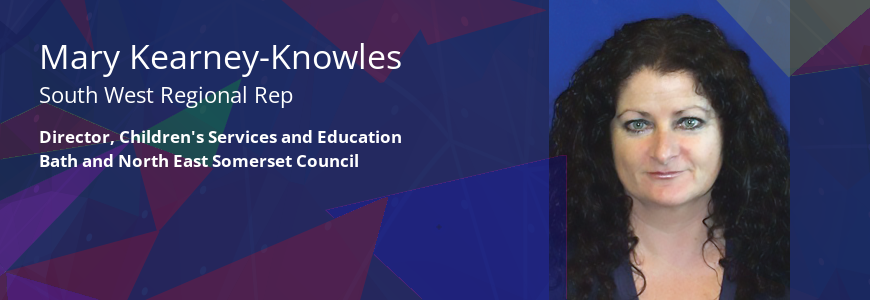
In a rapidly changing world, the concept of improvement has taken centre stage. From personal development to service growth, the idea of constant enhancement has proven to be a driving force behind success. In the South West region, Sector Led Improvement initiatives are embracing that concept and the transformative impact it can have on various aspects of our work. These initiatives and projects and the learning gained from them are shared across our networks. Sharing this learning fosters a culture of collective growth enabling individuals and organisations to tap into diverse perspectives and experiences for continuous improvement.
Our recent Learning Day Conference in July 2023 was one of those opportunities to share the projects that have been undertaken with the Building Back Better funding and the learning gained from them. The day proved to be a real success, leaving a lasting impact on attendees. The project speakers delivered insightful presentations and workshops that covered a wide spectrum of topics, catering to diverse interests within the children’s services learning and development field. Attendees not only gained valuable insights and practical knowledge but also had ample networking opportunities that fostered meaningful connections. The overwhelmingly positive feedback received post-conference is a testament to the event’s success in fostering learning, collaboration, and inspiration among all who participated.
In the South West we also believe that leadership development plays a pivotal role in driving sector-wide improvement. As leaders grow and refine their skills, they become better equipped to guide their teams and organizations toward excellence. We are developing this with bespoke leadership opportunities that are regionally supported. This strong emphasis on leadership development will contribute to a more dynamic and responsive sector, that fosters innovation, collaboration, and strategic thinking. These leaders, armed with enhanced capabilities, will be well-positioned to lead sector-wide improvements, introducing best practices, driving efficiency, and raising overall standards and ultimately delivering improved outcomes for our children and families across the region. In this symbiotic relationship, leadership development serves as the cornerstone of sector led improvement, creating a positive ripple effect that benefits the sector’s stakeholders and the larger community.
Sector-led improvement and effective leadership within development initiatives play an integral role in elevating frontline practice. As the sector embraces improvement efforts driven by collective knowledge and collaboration, frontline practitioners gain access to a wealth of shared insights, resources, and best practices and, ultimately, will directly contribute to improving outcomes for our children and young people.
Related Blog Articles
Attendance is everyone's business

This week, students up and down the country have been returning to school, or beginning at their new school after a well deserved summer holiday, even if the weather hasn’t really resembled much of a summer… Even before term started, a number of schools have had to deal with the confusion and fall-out associated with RAAC. ADCS remains in conversation with government and we have urged them to ensure there is a clear focus on vulnerable children so that they are supported and safeguarded. Local authorities have a key role here to help coordinate local responses but DfE must have a much clearer communication strategy so that everyone is kept updated and can prepare accordingly. There will be a lot of learning from the early stages of the pandemic that can be drawn on.
Aside from RAAC, those of us who work in or with schools will be keeping a close eye on attendance and making sure children are in school on the first day of term. I was fortunate enough to attend a meeting at 10 Downing Street this week for the government’s Attendance Action Alliance to discuss how we can all help tackle rising levels of absence in our schools. This is rightly a priority for national government, but also for local authorities who have a key role in overseeing attendance patterns across their area. Recent attendance figures from the last academic year outline the significant challenge we face as we collectively try to tackle the worrying rates of absenteeism and persistent absence across the country. This requires a whole system response with all partners providing the right support to meet children’s needs.
The reasons for persistent absenteeism are often a symptom of wider issues in a child’s home life and it is important we work with schools, children and their families to understand and remove barriers to attending school as early as possible. The Department for Education’s guidance Working together to improve school attendance recognises some of this and has a welcome focus on the importance of early help where there are wider issues, however, ADCS is clear that the new duties placed upon local authorities must be met with the required funding. In the context of over a decade of austerity, many of our early help services have been cut as budgets have been heavily reduced. The government must recognise this reality and provide the necessary funding that will allow local authorities to deliver this important work in the most effective way.
Good attendance is not just an enabler for better academic outcomes, it is also a protective factor for our most vulnerable children and young people. Children who are persistently absent and not accessing education are at significant risk of being victims of harm, exploitation, or radicalisation. We are now seeing a growing attendance gap between children from disadvantaged backgrounds and their peers: across the 2022/23 academic year, 37.9% of pupils eligible for free school meals were persistently absent, compared to 16.7% who aren’t eligible. At the same time, the educational attainment gap is also increasing, something that has also be greatly exacerbated by the ongoing impacts of the pandemic. The role of partner agencies is key here and all professionals who support children and young people should be aware of the importance of regular attendance and the wider issues that persistent absence may be symptomatic of. For example, this could be linked to children’s mental health and wellbeing yet the services that support them have been severely affected by the pandemic too. With waiting lists to access children’s mental health services far too long, there are multiple challenges for government to address.
All local authorities will be doing everything they can to ensure as many children as possible are returning to school for the start of term, but the factors that we know are strongly linked to persistent absence, such as poverty and disadvantage must be addressed by national government if we are to tackle what is clearly a long-term issue. After two years of disruption to children’s education, ensuring children are in school when they need to be must be everyone’s business.
Related Blog Articles
Talking must now lead to plan of action

I’m writing this blog before I’m due to go on holiday and hoping the fiasco with the air traffic control fault is resolved soon so we can get away to a warmer and sunnier climate. I’ve worked throughout the whole of August and remember a time when this month was less frenetic, with fewer emails and scheduled meetings, where you could catch up on things. I think those days have gone now since it was a month filled with activity and meetings with the Department for Education (DfE) and the Home Office (HO) on a number of issues which I covered because John Pearce, our President, was having a well-earned break. Areas covered included the implications of the High Court ruling banning the use of hotels for Unaccompanied Asylum Seeking (UAS) children, the associated impact because of the lack of suitable placements and the possible options to tackle this, and latterly as I write this, the change to the guidance for schools with confirmed Reinforced Autoclaved Aerated Concrete (RAAC). Oh, and with a live interview on the Radio 4 Today programme on school attendance thrown in early one morning.
Now some of you reading this could say that this is self-inflicted because you put yourself forward to be Vice President (VP). And whilst I have said before it’s a privilege to be VP, to some extent I would have to concede the point! In recent blogs, my colleagues Colin Pettigrew and Jo Fisher have written brilliant pieces offering their reflections on the implications of the High Court ruling referenced above. There’s no doubt that if you put aside that the National Transfer Scheme (NTS) is in desperate need of review because it was simply not designed to support the dispersal of such significant numbers of young people from points of arrival, since the High Court ruling, as Directors of Children’s Services we have all played our part in supporting Kent and complying with the NTS.
However, there’s no doubt that the biggest challenge we all face in implementing the NTS and now, in the face of the High Court ruling, being compliant with the law, is the sheer lack of placements. We all know that the High Court ruling is not going to magically create more placements for UAS children. ADCS has put forward a number of proposals to support a functioning NTS which has formed the basis of much discussion with the DfE and HO. What has been challenging overall is that we have been discussing the need for a broader range of placement options for UAS children with the DfE and HO since the end of last year and haven’t really made any progress. It’s frustrating that it seems to have taken a High Court ruling that has created the crisis to start more involved discussions about placement sufficiency for UAS children, but solutions are not quick. We have to work as a system in a creative and solution focused way, and we need to see a clear plan from the government, outlining the short and medium term actions to improve placement sufficiency.
Related Blog Articles
Reflections from the North West
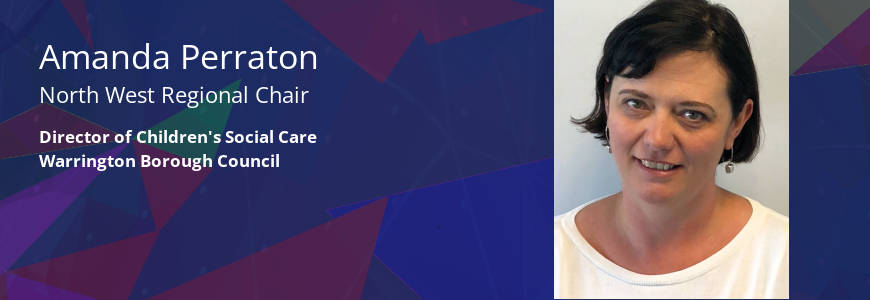
I write this having recently been talking with my team about a very difficult placement sufficiency ‘market’ (how we come to use the language we do about children needing loving homes is beyond me!). The North West, alongside other regions, is struggling to meet the needs of children in our care, the most basic of which is the need for a loving home. Local authority children’s services find we are ‘squeezed’ in the middle of what I would call ‘an imperfect storm’ that leaves – put frankly – children’s services and their local authorities ‘footing the bill’ – and the bill gets bigger each week.
We celebrate reductions in children being admitted to Tier 4 (none of us want to see children in these provisions bar for the most complex of our children). We rightly celebrate the reduction in the use of custody for children. We worry about the lack of suitable, affordable housing and the increases we are starting to see as a result in homeless children and families. We worry about the number of vulnerable separated migrant children arriving to the country and then require age assessing and invariably come into our care.
The result of the above – increasing numbers of children in care, with insufficient move on accommodation for our care leavers (who remain in semi-independent too long – locally into ‘adulthood’, reducing opportunities for other children to move on). An increasing number of complex children in unregistered provision with social workers and community CAMHS teams trying, often failing, to wrap around to meet needs. Costs go up week by week, with one provider offering the same placement 2 weeks apart seeing fit to increase charges by over 50% with no rhyme nor reason.
We all looked with hope to the Care Review to put a stop to this, to help us to find the solution. Whilst I commend much of the review, the plans around Regional Care Co-operatives do not, as ADCS has said, go far enough. We must remove profiteering in the care market. We must be accountable and hold our health partners accountable to find new solutions together to develop, commission and fund suitable non tier 4 provision for our most complex children. We need a national housing strategy that is fit for purpose to create much needed accommodation for all. There is much to do.
Related Blog Articles
Every summer has its own story
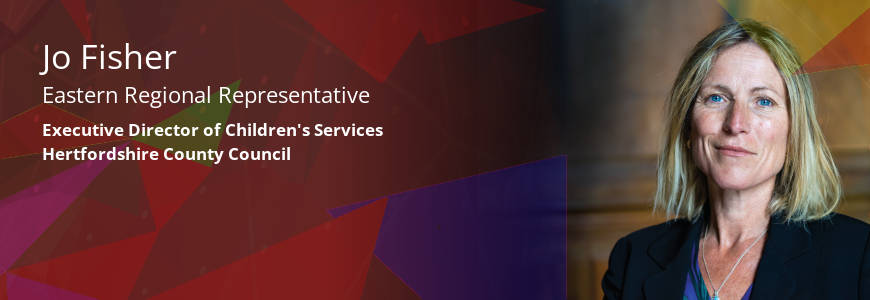
As I write this blog in a local café, the radio announces that 15 asylum-seekers have boarded the barge in Portland. There’s a sign by the counter that says, ‘every summer has its own story’. That may be true, but every summer also now has one story, as the weather gets warmer and more small boats arrive, about crisis support for asylum-seekers including unaccompanied children. The recent High Court judgement that the practice of using hotels to accommodate unaccompanied asylum-seeking (UAS) children is unlawful surely necessitates a change of narrative, one driven by urgency and the right level of resourcing so that we can, as corporate parents, fulfil our duties. We all take our duty to provide support to these vulnerable children and young people extremely seriously and need to provide Kent with assistance in this respect; but there also needs to be recognition that our collective capacity to do so is limited by a lack of adequate funding and a national shortage of placements.
ADCS has put forward strong suggestions to government to help address challenges faced by the National Transfer Scheme (NTS) and the associated use of hotel accommodation. A priority focus has got to be on delaying implementation of the regulation and inspection of supported accommodation until the immediate pressures created by the judgement are resolved and the unintended consequences are better understood and mitigated. Other options should also be considered such as new approaches to age assessment and flexibility on fostering. Critically, the new financial burdens on local authorities arising from the NTS need to be fully understood and resourced on a more sustainable basis. Current Home Office funding does not touch the sides of placement costs in the face of provider inflation and has never met the costs of social work time and the wrap-around support required. This means that many councils, including my own, face big budget deficits for the UAS children in our care and care leavers. The narrative needs to shift towards a more sustainable, long-term system, one that recognises the pressure this puts on local authority children’s services and is properly resourced to meet the needs of this vulnerable group of children.
Summer is traditionally a time for stories of recharge and optimism, but another narrative where my propensity for optimism is currently being challenged is SEND. I won’t rehearse my concerns about the new SEND area inspections but will say that the timing is, at best, tricky given the government’s own verdict that the system is failing whilst costs are increasing, and that we’re not yet off the blocks in a period of pathfinding and piloting an important, more inclusive approach. It is vital there is clearer join up and read across the SEND and AP improvement plan and the significant system-wide barriers to mainstream inclusion that includes workforce and capacity, curriculum, inspection and the accountability frameworks, and yes, funding including high needs allocations and the notional schools’ budget. That is the story I hope to hear, and be part of, next summer.
Related Blog Articles
Unaccompanied asylum seeking children

The privilege of being a member of ADCS, a member of our Council of Reference and the chair of the ADCS Migrant Families Taskforce means that I have access, on your behalf, to senior colleagues in central government departments and on occasion access to experiences that may not usually be available. In mid-July, together with our Association’s Chief Officer, Esther Kavanagh Dixon, I travelled to Dover in Kent to see at first hand the experience of children arriving in the UK on “small boats” without a parent or other legal carer and who are claiming asylum.
We have come to refer to these children as unaccompanied asylum seeking children and increasingly using the acronym “UASC”. Language is important and I have a strong belief that describing any individual, or group of individuals, especially but not exhaustively, people with protected characteristics or vulnerabilities using an acronym risks, amongst other things, depersonalising them and overlooking their individual identities. I wonder how many people on that busy Clapham Omnibus would either recognise the acronym or be able to say who it describes? First and foremost, these were and are children, a point clearly stated in the High Court judgement of 27 July 2023, more on that later…
Esther and I started our experience, in Kent, as the children, young people, adults, and families arriving do; on the quayside at Western Jet Foil at the top of the jetty they climb up and onto dry land. This place of arrival is secure, with high screened fencing and consists of several temporary structures. The site processes new arrivals quickly offering essentials, including food and water, dry clothing and includes initial security and health checks. Adults are processed quickly and transferred away from the site to places like Manston Asylum Centre for further processing. Children and families and those self-identifying as under 18 years remained dockside for further assessment, including a brief age assessment by Home Office employed social workers. It is important to note that at this stage this process is not a full “Merton Compliant” age assessment.
On the day we visited there were about 80 people in this latter group looking tired and anxious. If a decision is reached that an unaccompanied individual is considered to be a child, they are swiftly transferred to the Home Office’s Kent Intake Unit to begin the process of claiming asylum with the aim of officially remaining in this country. At this stage they are not yet “looked after” under the Children Act 1989. We visited this secure provision and saw children waiting to either be transferred to the Reception and Safe Care Service (RSCS) run by Kent County Council or alternatively to a Home Office commissioned hotel.
Any child transferred to the former becomes “looked after” under Section 20 of the Children Act 1989 by Kent County Council, while the latter does not. The RSCS prioritises taking under 16s, and those with particular vulnerabilities. The majority of children who arrive in Kent are males aged 16 and 17 years and the decision as to whether they become “looked after” or not is often based on supply and demand. We finished our visit at one of Kent’s two supported accommodation centres, which form part of the RSCS. We met care staff and some of the children being “looked after”. Children stay in the care of the RSCS while waiting to be transferred, via the now mandatory National Transfer Scheme (NTS) to the care of a local authority who will care for them whilst they await their asylum claim to be processed. I was struck by how quiet all three settings were, despite the number of children and young people there on the day, it suggested to me fear, relief and a desire to comply. Colleagues working in the service confirmed this view saying children rarely went missing, complied with rules, positively engaged with activities, and that relationships with neighbours were, in the main, good.
Since our visit much of the process described above has been judged unlawful by Mr Justice Chamberlain in The High Court, who found that the Home Secretary’s systematic and routine accommodation of unaccompanied children seeking asylum in hotels was unlawful, and that arrangements agreed between Kent County Council and the Home Office to receive into Kent’s care a maximum number of such children, are also unlawful. It was further ruled that Kent County Council owes a duty of care under Section 20 of the Children Act 1989 to all such children arriving in Kent, regardless of the number of children and young people already in their care. The full judgement can be found here - https://www.bailii.org/ew/cases/EWHC/Admin/2023/1953.html.
There are clearly significant and ongoing implications for our colleagues in Kent County Council as a key point of arrival, for those LAs where Home Office commissioned hotels are located and for the entire sector as ‘receiving’ LAs who must comply with the NTS. Local authorities are subject to a direction under section 72(3) of the Immigration Act 2016 and are under a mandatory duty to comply with the NTS in accordance with the judgment. The judgement makes clear that: “If there is any breach of the timescales in the NTS Protocol, the primary breach is on the part of local authorities, not the Home Secretary.”
There are inherent, systemic challenges with the current NTS and we all know about the growing placement sufficiency challenges. ADCS continues to actively engage with government departments to try and find a sustainable solution to the way in which the system responds to the needs of children and young people arriving in this country fleeing desperate situations, in search of safety and dreaming of a better future.
However, this judgement is clear and will require all of us to act in a way modelled by those children and young people we saw during our visit, respecting and complying with the protocols and process. We have a moral purpose to support colleagues in Kent, and the children in their care, and now there is the legal imperative to do so.
Related Blog Articles
Cogs in the machine
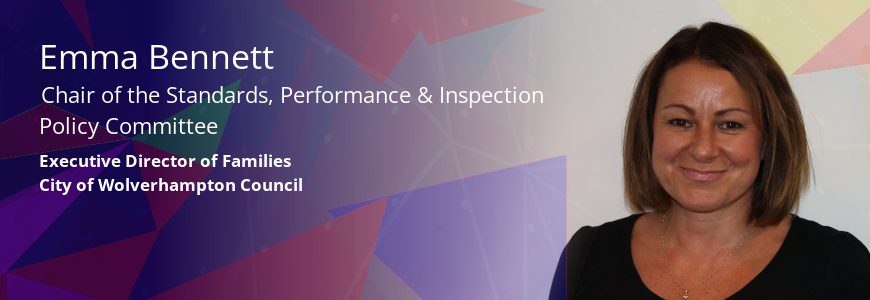
As August arrives, holiday season and allegedly some warmer weather, our colleagues at Ofsted tend not to be focused on inspections (although we are hearing of one or two monitoring visits). So, I thought I would turn the attention of this blog away from that strand of the Standards, Performance & Inspection’s (SPI) Policy Committee’s work and concentrate on Regional Improvement and Innovation Alliances (RIIA), something that our policy committee also has oversight of.
Officially at least, the function of the RIIA went live just over four years ago. I say officially, because as we all know, the history of local authorities working within a spirit of mutual aid dates back far longer than that. Back in 2019 we probably all asked, and indeed faced, questions about the need to formalise something that we had been honing and quite happily working with for nearly 50 years. But at that point the advent of the RIIA probably gave us two key advantages. It re-established the voice of the regions within Whitehall, something that had been waning in recent years. They also established a vehicle by which we could receive funding on a collective basis. Both of these were good opportunities, and I think we have used the benefit well over the last few years, evidenced by the fact that Ofsted and the DfE have realigned their structures to match those of the regions.
Of course, we are part of the local authority system, and for us as directors of children’s services to gain the best advantage for children and families, on a regional footprint, we need to make sure that our CEO’s, our finance directors, our directors of adult social services and yes, our politicians too, work together regionally. To that end, there are structures already in place with organisations such as SOLACE, ADASS and the LGA to support this, although often it’s a challenge to ensure it’s prioritised within our individual organisations when faced with multiple competing priorities.
Thinking about the bigger systems that we are all part of and partners, such as health, police and education, add in Family Justice Boards and combined authorities (where they exist), and I don’t need to tell you how complicated this gets, just on a local level, let alone regionally. Boundaries are non-contiguous, sometimes they are effectively sub regions of our own, sometimes we are subregions of theirs. However, the truth is, there will never be perfection, so to use that old phrase, we are where we are. That doesn’t mean we stop striving for perfection, nor that we don’t get on and do, after all that is at the heart of regional working, at the heart of the RIIA itself.
The picture I paint is of one massive machine, with cogs turning, sometimes cogs turning within cogs. Often it works, and works well, sometimes it doesn’t. But thinking of those local authorities that have benefited, and more importantly the children who they serve, I think we have done OK over the last four years and this has been evidenced by a national improving picture. We have had some tough times in my region, the West Midlands, and through the RIIA we have been able to catch some LAs before they fall. We have at least one of our number who speaks openly about their tough times and the support they received, and how it was a not insignificant factor in their journey to Good. There are others, who no doubt we have supported in just the right amount and at just the right time, that we may never know what might have been had it not been for the RIIA.
Moving forward, we have work to do in strengthening system relationships, maybe top of the list is to establish a shared regional narrative at the ICB table. Most importantly however, is that we seek opportunity to work together, across the nine regions, not so that we morph into one, but so that we share a united vision for the purpose of the RIIA, because at the end of the day localism and place remains central to the concept of supporting our own. To that end, SPI has RIIA’s back and we will ensure that whatever the future brings for regional working, at ADCS we will speak as one.
Related Blog Articles
Please mind the (mental health) gap
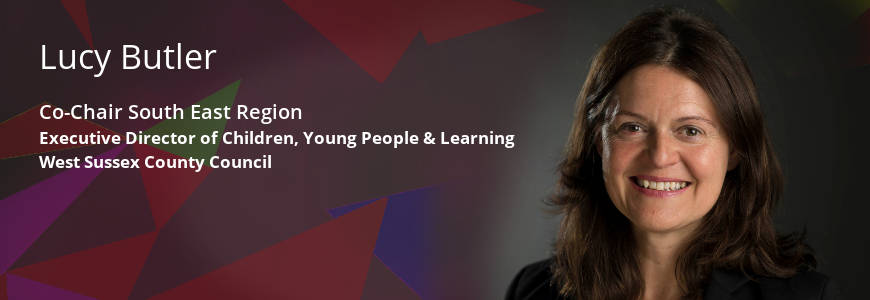
Cast your mind back to January 2021, the country is in its third and most miserable lockdown, schools are closed to the majority of children again and not even the weather or novelty of a staying home is there to ease the pain. I remember worrying right at the beginning of lockdown just what this would mean for our children’s mental health and sadly it didn’t take long to find out.
In that first six months of 2021 West Sussex saw a terrible surge in the mental health needs of our children. We saw widespread despair in some of our young people and services were not equipped to deal with this sudden crisis. We knew that our local authority services would have to adapt and step up with partners to support our children. So, locally we tried something different which was outside of our traditional local authority safeguarding services and provided something more responsive and preventative than our local child and adolescent mental health services (CAMHS).
We set up a triage service working daily in each of the schools. This was a multi-agency team made up of Social Workers, CAMHS, police, YMCA, nurses, and the local borough council. This service identified those children of concern, shared information and created a plan to support that child.
This proved so effective that two years on it is now an established way of working with all of our schools, providing a responsive way to meet any localised issues and to support the changing and evolving needs of our children. Any school can sign up to the scheme and prior to joining schools are provided with training to support their understanding of suicide and suicide risk.
The team now meets three times a week and has recently been joined by GPs who have supported a greater level of engagement with our Primary Care Networks in addressing the suicidality of children.
This year alone we have supported over 300 children this way, 89% of whom were presenting with risk of suicide. Over 11% of those children were neuro diverse; in fact, neuro diversity, self-harm and domestic abuse were the three most significant factors that prompted schools to refer children into triage.
We have known for a long time that services to support children’s mental health needs a national review. Our scheme has proved that preventative, non-stigmatising, responsive services are effective and that the local authority is well placed to lead across the partnership.
Related Blog Articles
Lessons in life
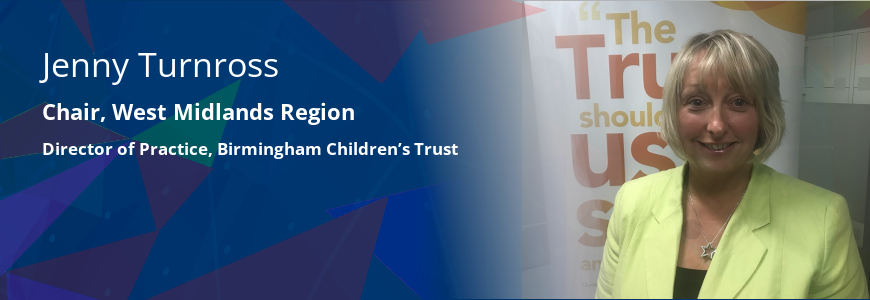
At the end of this month, I will be moving from my familiar surroundings of the West Midlands to the North West where I am taking on my new role of Corporate Director of Children and Young People’s Services in Liverpool. Like a child just about to take on the challenges of a new school, I know the future will be exciting, I will learn a lot and I will make new friends, whilst making a pledge to stay in touch with those I left behind! Given the time of year, an apt metaphor maybe? But one that reminded me of Dame Rachel D’Souza’s presentation at the recent ADCS Annual Conference. One statistic from this stood out. Taken from the Children’s Commissioner’s own survey of children’s well-being, school age girls were twice as likely as boys to be unhappy with their mental health. So, I will be the new girl in my new region, and whilst I am sure that I won’t be miserable, it has left me reflecting that as leaders of systems, designing services for children, we need to all step back to our eleven-year-old selves from time to time and make sure we apply the benefit of our learned wisdom to the benefit of future generations.
There is a fair degree of leadership movement in the West Midlands region at the moment. The truth is, much like students, directors of children’s services move on. Like the curriculum, policy changes and like teachers and politicians, we come and go. No organisation, whether a school, a council, or even Whitehall, should be reliant on a single individual. Indeed, the best organisations regard themselves as organic and thrive on change. However, on reflection, I have been pondering a comment made by one of our Department for Education colleagues during the ADCS conference. They were unapologetic for the stance taken by Stable Homes, built on love and the recommendations for multiple path finders to test out the reforms. To an extent, I think we would all agree that to test something before progressing to a costly scale up is appropriate. However, I wonder at the timescales for such testing, and if there may be scope for using some sprint methodology and for having more trust in local leaders in our approach to progressing the long-awaited response to the Care Review for risk of losing a whole generation of children as we await the much-needed reforms.
So, as I leave, may I take this opportunity to say goodbye to my brilliant West Midlands friends and hello to my new friends in the North West region.
Related Blog Articles
Feeling energised after the ADCS Annual Conference

I’m writing this blog just a few days after returning from the ADCS Annual Conference in Manchester. This is always a key event in the year for leaders of children’s services where we come together to discuss, debate, and reflect on a wide range of policy areas and priorities. It’s always incredibly useful to hear views from across the sector on the issues that are important to the Association and for children. This year at conference we had input from the likes of the Department for Education, including two Director Generals, Baroness Barran MBE, who is the Minister for Schools, the Children’s Commissioner, Ofsted and NHS England, amongst others. John Pearce, ADCS President, and I reflected that there was a great buzz and energy throughout the three days, where despite the ever-increasing challenging context of managing demand and the financial constraints directors of children’s services face, there is still room for optimism as we collectively work to make the country one that works for all children.
It’s always great at conference, of course, to catch up with DCS colleagues, past and present, and it really helps to recharge the batteries and remind you (which we all need at times regardless of how long you have been in the job) that we are all broadly facing the same challenges and issues, and all want to do the best job we can as system leaders for children in our place. There were 22 DCSs attending their first ADCS annual conference as a DCS; and whilst not necessarily new to ADCS membership, nor in some cases being a new DCS, it was positive that these colleagues had decided to attend the conference. I hope those attending for the first time were not only inspired and energised, but also left feeling part of a supportive and cohesive gang.
We talked a lot at conference about the role of the DCS, both in a wider corporate context across our local authority areas, but also as players in the wider strategic partnership. This made me reflect personally, and with a range of colleagues at conference, about the role of the DCS. It’s a privilege but there’s no doubt it’s also a tough gig. The latest annual ADCS DCS Update showed that during 2022/23, there were 50 changes in DCS post-holders, which included a number of brief interim appointments prior to substantive appointments; the average tenure for a DCS is four years.
When you become a DCS it’s assumed that you are a subject and technical expert in all things children’s services. Whilst we are experts in some areas, invariably we aren’t in all, especially if it’s a first DCS role, and the need to reach out and forge informal and formal relationships in your region and beyond (say by joining an ADCS Policy Committee) is important. It’s ok not to have an answer to everything, and I continue to find the insight and experience of DCS colleagues invaluable. We talked at conference, and do a lot in my region the East Midlands, about how as DCSs we navigate the corporate and political space. This is as important as operating as a system leader across the wider partnership. It can sometimes feel like a bit of a tightrope, but as DCSs we need to remember we don’t operate in a vacuum and need to reach out and use the support and collective wisdom of each other.
Related Blog Articles
ADCS annual conference 2023 round-up

The ADCS annual conference took place last week, with colleagues from across the country gathering in Manchester to share ideas and celebrate best practice. As always, the first 24 hours or so of the event offered a private space for directors of children’s services (DCS) and a select few guests to discuss the pressing issues of the day. Sir Andrew McFarlane, President of the Family Division, spoke to delegates on Wednesday about the challenges in the family justice system and the rising volume of activity, particularly in the use of Deprivation of Liberty Orders. We also heard from leaders in children’s services across local authorities and a children’s trust who reflected on leading through challenge or change. The final session of the DCS only part of the conference focused on Regional Improvement and Innovation Alliances.
The main conference opened on Thursday with ADCS President John Pearce delivering his opening speech where he reflected on the government’s reform plans and highlighted the need for quick and decisive action on the costs associated with the use of agency social workers and the lack of care placements available for some of our most vulnerable children and young people. John’s speech certainly set the tone for this year’s conference, however, a delegation from Durham’s inspiring Children in Care Council stole the show! They shared their experiences of being in care and what they think is needed to make it a more positive experience via a video, poetry and a Q&A. Baroness Barran, Minister for the School System and Student Finance, then had the unenviable task of following the Durham young people and spoke to delegates about the need for greater inclusivity in mainstream education and the government’s focus on improving and addressing persistent absence from school.
Following this, we held an important session on tackling child poverty (one of John Pearce’s priorities for his presidential year) to hear what can be done to mitigate some of the negative impacts of poverty on children and young people’s daily lives and on their life chances. Delegates were then able to choose from a range of cross-cutting workshops which considered: equality, diversity and inclusion in children’s services leadership; what good alternative provision for vulnerable children looks like; our ambition for care experienced young people; and the family help reform agenda. Each workshop included a range of speakers from across local authorities and partner agencies to allow members to delve deeply into these important areas.
The final day of conference started on a positive note as we were treated to three inspiring speakers from Manchester College, Manchester City Council and Reach Foundation who outlined what they are doing to create a more inclusive education environment, rooted in communities. We were then joined by officials at the Department for Education to discuss transforming children’s services followed by a thought-provoking session on children’s mental health, with a keynote input from the Children’s Commissioner, Dame Rachel de Souza, plus Ofsted and NHS England. John Pearce closed proceedings with his thanks to all speakers for their excellent contributions and of course all those who joined the conference and allowed it to be such a success. Onto next year!
As always there was lots of Twitter activity over the three days. Search #ADCS23 or see @ADCStweets for a summary of events.
We will post speeches and presentations from the event on the ADCS website when available. We hope to see you at the same time, in the same place for next year’s annual conference.
Related Blog Articles
It is a privilege!
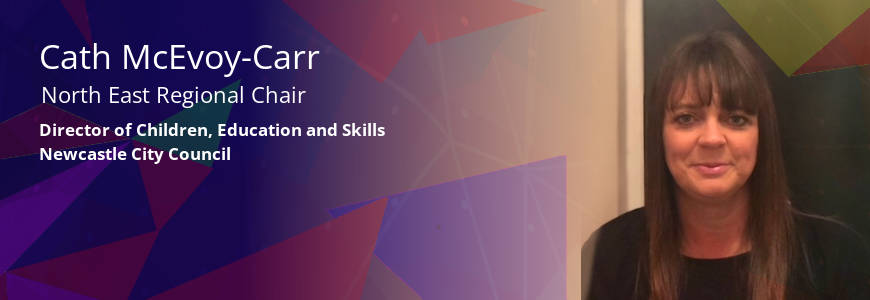
There has been a lot of chatter in our ADCS groups about retirement in the last few months and I have watched with ‘green eyes’ as a number of longstanding directors of children’s services have announced their retirement plans. As some of you may know, I am married to a Head Teacher (thankfully not in my local authority area) which makes for lively debates at the dinner table as we robustly discuss the roles and responsibilities within our respective systems and cogitate about the various regulatory processes we are subjected to. This leads, on occasions, to a pondering about whether we would choose these career pathways again which, depending on the type of day we have had, may not always generate the same conclusions.
Most of you would agree that working in children’s services, and in particular as a Director, is often a challenge, subject to moments of extreme stress and often trying to find ways of innovatively responding to the ever changing and increasingly complex needs of our young residents which can on occasions lead to statements from me about being glad that ‘I am in the latter years of my career’.
Recently however, whilst preparing my introductory speech for the launch of our Trauma Informed Care model, I found myself reflecting on the role and making the statement ‘it is a privilege to hold this role’ and having never wanted to be a DCS recognise that this a unique role where no two days are the same. We may have regular budget cutting, ongoing recruitment pressures and increasing placement challenges to name but a few issues but there are still more than enough elements of the job that make it worthwhile.
Over the last few months I have been ‘privileged’ to present awards to some absolutely remarkable pupils from schools across our city, who have overcome barriers to achieve their ambitions and make a difference within their communities and schools; ‘privileged’ to attend the opening of a family hub and hearing from parents about how much of a difference this will make; ‘privileged’ in supporting the accomplishments and giving out awards to some of our children with additional needs and disabilities; ‘privileged’ to open a number of conferences and looking at a sea of eager and keen learners who absolutely want to make a difference to the children and families they work with and of course ‘privileged’ to attend our staff awards ceremony where individuals and teams are celebrated for the fantastic work they do on a daily basis supporting our residents.
So, whilst there are testing moments in this role, it is more than just a job and even though chronologically I am indeed in the latter years of my career, I will continue to give it my all for as long as I am able (and allowed) to do so.
Related Blog Articles
How do we achieve an inclusive education system?

As we come to the end of another academic year, I thought it was timely to focus on one of my priorities for my presidential year; to set out our ambition for an inclusive education system that enables all children to fulfil their potential. The 2022 Schools White Paper gave us a number of opportunities to set the foundations for a more inclusive system but these have not been taken forward now that the Schools Bill (which carried the required legislation) has been dropped. The three major national reform programmes, Children’s Social Care Review, Special Educational Needs and Disabilities/Alternative Provision (SEND/AP) Green Paper and the Schools White Paper were complimentary and gave a system wide blueprint. However, this will not be delivered if reform to the broader education system is not taken forward.
The SEND/AP improvement plan, recently published by government, describes a very welcome ambition to rebalance the system with mainstream inclusion at its heart. Whilst I fully support this ambition what is not clear is how that will be achieved. At the heart of this problem is a lack of recognition of the barriers to mainstream inclusion that have been driven by education policy in recent years which focuses on a purist drive to raise educational standards. The unintended consequences of this has led to more children moving out of mainstream education into special schools, alternative provision, home education or falling out of the education system all together. It is also no coincidence that the number of pupils falling out of mainstream education before the end of key stage 4 is disproportionately higher in areas with greater levels of poverty, driving further educational inequality.
I should be absolutely clear that the focus on improving educational standards is obviously a good thing and we should continue to strive towards that aim for all children. The challenge has been created by a narrowing of the curriculum, particularly in the secondary sector and the accountability framework that sits around it. There has been a lack of consideration of the impact on the growing number of pupils who have struggled to engage with secondary education and no systemic approach to improve outcomes for all.
There are now significant barriers to mainstream inclusion including resources, curriculum, inspection and the accountability frameworks our schools are subject to. To take just one example, the concept of a ‘notional budget’ for SEN support in schools has always been flawed. It was set at £6k per pupil when it was introduced 10 years ago and not increased with inflation, it is also not ringfenced or allocated at child level, meaning that schools really struggle to provide support below the level at which an Education, Health and Care plan (EHCP) is needed.
The way in which it was implemented, by top slicing centrally held inclusion funding, penalised inclusive schools at the expense of those who were less welcoming to children needing additional support. Those differences have now become entrenched, meaning schools who want to be far more inclusive are struggling to fund the additional support that children need with the inevitable consequence of escalation to EHCP and often specialist provision.
We also need to look at the accountability framework and understand the unintended consequences it creates. Is it any surprise that secondary school inclusion has become a greater challenge when measures such as Progress 8 can penalise inclusive schools and carry such weight in the system? There have been some welcome steps to have a greater focus in the inspection process on inclusion but that needs to go much further. There are also other opportunities through the government’s Academies regulatory and commissioning review to build in levers around inclusion.
I would like to see the ambition that was set out in the Schools White Paper for high quality inclusive schools and trusts to be the foundation for our future system. To me, for a school to be genuinely described as inclusive, its pupils should fully represent the local community it serves in all ways and meet the needs of all local children. It would be quite straightforward, and revealing, to develop an inclusion profile for each school and compare it to local demographics!
ADCS is currently developing a position paper setting out our vision for an inclusive education system and I look forward to launching that later this year. Our education system should be for all children not just those who fit the prescribed expectation established in the current approach.
Related Blog Articles
The simple things that matter most…

The varying number of national and regional initiatives, pathfinders and pilots emerging out of the government’s plan to reform the children’s social care system, Stable Homes Built on Love, have occupied many of our regional conversations over the last couple of months. As ever, this has required us all to work and think collaboratively across our regions while also doing the “day job” back at the office. Amid the many national and regional discussions where I play my part, my energy and enthusiasm is driven by the variety of conversations I have with our children and young people. This helps me stay grounded and focused on what more we can do to support children’s needs locally.
While Hull City Council has embraced its corporate parenting responsibilities anew over the past couple of years, we all know that there is always more to do. So, following on from an enthusiastic response to fostering fortnight across the council and our partners, many of whom are pursuing or have adopted Fostering Friendly Employer status, we launched our inaugural Corporate Parenting week, which ran over the recent half term break.
Yes, corporate parenting is a ‘day in and day out’ responsibility all year round, but we wanted the opportunity to reinvigorate people’s awareness right across the council of our corporate parenting responsibilities. We had a wide range of events across the council, co-designed by our young people. Leaders and staff, across all council directorates, completed the LGA corporate parenting self-assessment, renewing and making new pledges which informs our corporate parenting action plan. The LGA has facilitated training for elected members and we were particularly keen to include those who were recently newly elected. We also held a range of fun activities for children and young people that adults were also allowed to join! This helped to build and strengthen our relationships.
We have an established Total Respect training offer for staff, facilitated by young people who have been trained and who routinely give up part of their holidays to deliver the training. However, the highlight of the corporate parenting week were the bitesize Total Respect sessions. These allowed far greater numbers of senior leaders, managers and frontline staff from across the council to experience sessions delivered by our children in care council, Young Voices Influencing Care (YVIC). Many attendees gave great feedback summed up in this quote “Spent a positive and thought-provoking hour this afternoon with talented young people of Hull, they taught us how to promote their rights and needs as part of corporate parenting week” The power of children having the opportunity to share their experiences in this way was immense and resulted in new recruits to the champions group. This is a voluntary role which involves working as part of a group to inspire change and improve awareness of our corporate parenting responsibilities throughout the year.
Our week ended with the ‘Dream On’ sing along which was a huge hit. We had a room full of people and, along with our young people, we sang our hearts out, karaoke style! The young people’s powerful opening pitch reminded us of the important messages from the ‘Dream On’ animation and the importance of belonging. The young people enjoyed the event and told us that people coming to hear them, join them in singing and dancing, really made them feel heard and cared for. This reminded me that it is the simple things that matter most – listening and caring. If you’ve not seen ‘Dream On’ already, or even if you have, take a look.
Related Blog Articles
Amplifying Voices
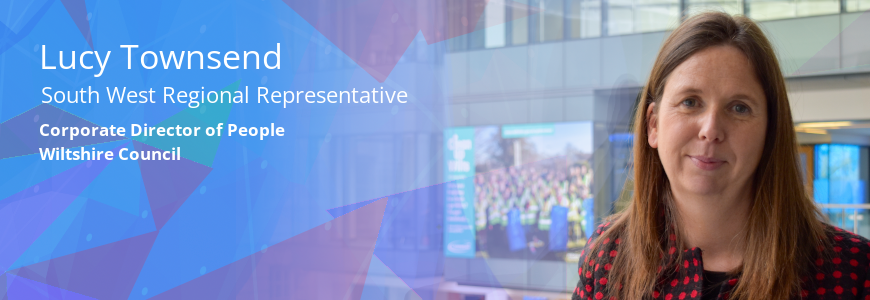
I write this travelling home from London, having spent the day at the National Panel Reimagining Child Protection conference. It was a thought-provoking day. Multiple subjects were covered including critical thinking, challenge and curiosity; understanding the intersectional experiences of black and minoritized children; and intrafamilial child sexual abuse. All crucial topics, but the area that I want to focus on is the messages from the young people who were present. My main takeaway is the importance of our relationships, with them and each other. If you weren’t able to attend I would recommend you watch the very powerful videos from the Newham and Somerset partnerships.
In Wiltshire, we invested in our child and family voice team a couple of years ago and I am very proud of what the team (which is made up exclusively of care experienced adults and a parent with experience of our services) have achieved. Cameron, our youth voice worker, recently won a national award from Frontline for amplifying the voices of care-experienced young people. We also have a family advisory board of parents who wrote open letters to social workers about their experiences. One of my personal highlights is our ‘Meet the Leaders’ session, where representatives from our children in care council, youth council, family advisory board and SEND pioneers come together to ask the Leader of the Council, Lead Member, CEX, Director of Children’s Services and other Directors what we are doing about issues that matter to them, and trust me, they hold us to account very well indeed! At our recent session they talked about the importance of their relationship with their social worker.
It is so rewarding to see the young people grow and achieve great things and I am extremely grateful to them for investing their time to ensure other young people get the same good or better experiences. I also want to share with you how Cora, a 16-year-old young person from Wiltshire, recently presented to 98 councillors at a Full Council meeting about her experiences of the children in care council and the importance of foster carers. Cora was totally unscripted and you can see for yourself the impact of her speech resulting in rapturous applause from the chamber.
So back to today, I can’t end this blog without sharing that I bumped into my first social work team manager from 25 years ago; what a wonderful surprise. I was very fortunate to have such a supportive and encouraging manager, a relationship I firmly believe is the most important at work. She was there for my first highs and lows, something I will always treasure.
Related Blog Articles
"Data are just summaries of thousands of stories..."
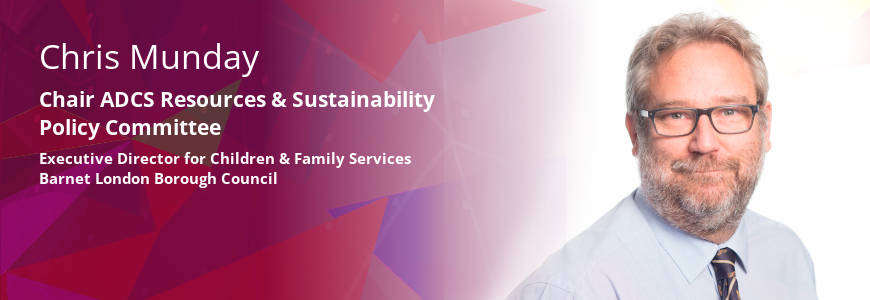
“Data is like garbage. You’d better know what you are going to do with it before you collect it.” Mark Twain
Long before I became a Director of Children’s Services, in the annals of history, I studied for a degree in Combined Sciences. In that quantitative world, numbers and data were always important to collect and analyse, empirical measurement was vital to help you understand what was happening in the world. Over the years, I have come to realise more and more that quantitative data, though sometimes important, needs detailed understanding from qualitative research to establish its meaning. There are reasons for this; quantitative data gives you a partial picture, it can be biased, it can lead to inaccurate conclusions and can drive the wrong behaviours. Many times, in my job, I have looked at indicators or performance reports with everything purportedly ‘green’ only to find that in practice things were not as good as you might have thought. An academic I was working with recently shared with me this anecdote: whilst looking at the quality of core assessments, noting the performance data showed great timeliness (near 100%), he realised that when reviewing the case records, although compliance appeared fantastic, all the records simply stated, “core assessment to be undertaken”. This is one of many stories, the gaming of performance is real and worryingly a focus on the data alone can drive the wrong behaviours. It is important, therefore, that data collection, management and analysis is treated cautiously – we create hypothesise that need further exploration.
When we think about data collection, we need to remember that most of our data comes from our front-line workers, using codes or entering data, as they carry out complex work with children and families. They are not data scientists or researchers. Working with families in children’s social care is complex yet the codes don’t enable that complexity to be shown. It is for these reasons that the proposed children’s social care dashboard causes me concern. It conflates two very important but distinct types of accountabilities; managerial and public. The proposed indicators in the dashboard are managerial in nature and might enable us to ask questions about our data. Many of them, though, are closely associated with deprivation so we need to understand this before drawing any conclusions. However, we do this through the excellent work in our networks, via our RIIAs, who are enabling us to compare our data and do academic research, allowing us to question and explore our own work. But this data is for managerial oversight of processes and systems, it is not data which really explains well the lived experience of children and families and the effectiveness of our services for children. I thought this quote by Dan Heath encapsulates the importance of qualitative narratives to support a data story “Data are just summaries of thousands of stories—tell a few of those stories to help make the data meaningful.”
Without clarity of purpose and careful thought, the dashboard could risk distorting both practice and relationships with the families we work with. So, we need to be cautious, considered and work together to find a way to keep the child focussed outcomes at the forefront of future reforms.
Related Blog Articles
The importance of permanence and belonging
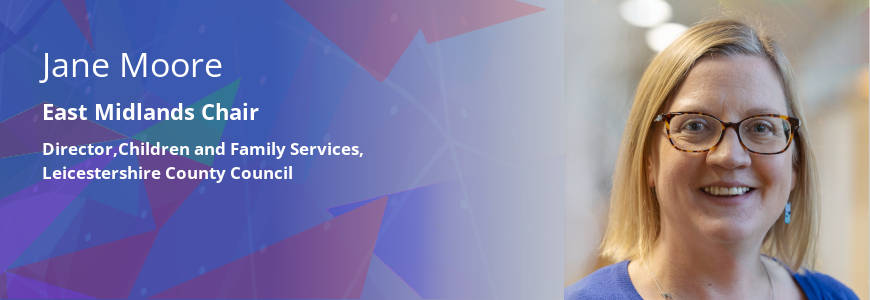
As we near the end of Foster Care Fortnight I have been reflecting on both the importance of foster carers across the country and also the importance of permanence and belonging for our children in care.
Foster carers transform children and young people’s lives. They provide a loving, caring, safe home and nurture an environment where they feel secure, valued and belong. Foster carers, kinship carers, supported lodgings providers and independent visitors all provide unwavering support and are a fundamental part of providing permanence and belonging for children in care.
Last month I was sent a video message that one of our children in care had sent to his Independent Reviewing Officers (IRO), to say (in his words) ‘thank you for sorting out permanency – I’m happy!’ What was most wonderful about this message is the affirmation of how important permanency is for children in our care. This young person had been living with his foster carers for 15 months and was over the moon when the decision was made that this would be his home, permanently. This is obvious though, isn’t it? We all want to belong, to feel secure and supported, a sense of acceptance, inclusion and identity for us all, with those we love and live with. For our children in care and care leavers, the social ties that accompany a sense of belonging are a protective factor helping manage stress and other issues, develop resilience, and feel supported. Hand in hand with belonging is mattering. Feeling that we matter is fundamental not only to self-esteem and sense of being part of society, but also health and happiness. The sense that they belong and that they matter is critical for our children in care to thrive, achieve and excel.
The government recently consulted on its plans to reform the children’s social care system via its strategy ‘stable homes, built on love’ and you can read the ADCS response here. I have no doubt that many of the responses to the strategy would have included a strong focus on the important ingredients that are necessary across the system to get it right for all children and in particular those children in our care. Care, love, consistency, belonging and mattering need to be at the heart of this and to achieve this we need a greater and more urgent focus on stabilising, valuing, and recognising the brilliance of our social care workforce as well as our foster carers and kinship carers who do great things day in and day out to change children’s lives and provide loving, stable, safe homes for our children.
Foster carers are a fundamental part of belonging and mattering, as are our social workers, support workers and all those that work with and around children in care. The vital role that social care staff play across all local authorities points even more to the need for permanence and stability for children. Children gain huge benefit from strong, consistent relationships with social workers and many other professionals with whom they come into contact. The need for stability, consistency, security, permanence and belonging remains as important as it ever has been for children.
Related Blog Articles
Please don’t normalise delay
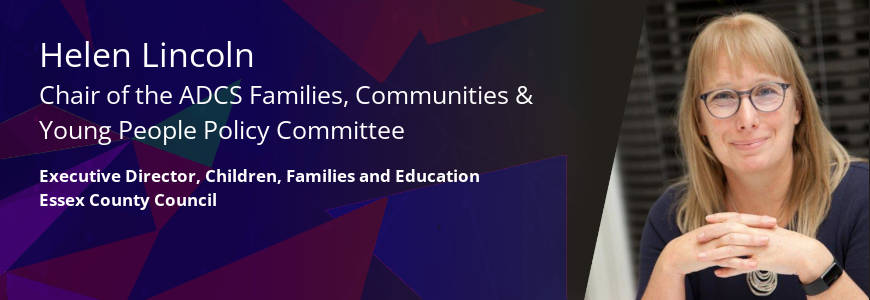
Last week, three of the consultations associated with the Independent Review of Children’s Social Care, and the government’s implementation plans, came to a close. There will now be a pause for the DfE to reflect on and consider the collective wisdom shared across the submissions it received. For me, this coincided with chairing my first meeting of the ADCS Families, Communities & Young People (FCYP) Policy Committee. Thank you to all those who came and contributed, it was a really rich, stimulating and supportive meeting. One of our discussion areas was about early help and the legal framework of Section 10 of the Children Act 2004 and Section 17 of the Children Act 1989. We landed on the need to do a SWOT analysis … So, any ADCS members interested in joining this important policy discussion, please let me know…
However, for my first blog as the chair of the FCYP Policy Committee, I wanted to step back from the long running national debates about reforms to the children’s social care or SEND or education systems for a moment and reflect on some shared work done by Cafcass and ADCS to understand delay for children and young people involved in public law care proceedings.
Over the last three years ADCS and Cafcass have worked together to try and understand and capture the impact of court delays on children via three separate data snapshots. Our shared efforts in the previous exercises have engendered good local conversations and interventions, which have resulted in many children’s proceedings being concluded. We have now sounded the starting whistle for a fourth snapshot looking at the most delayed children. Renewed focus on the 26-week Public Law Outline (PLO) deadline will result in fewer delays going forward, so we are targeting this exercise at the children who have been, and remain in, proceedings for in excess of 100 weeks. Nationally, this amounts several hundred children. Our concern must lead us to act, so that everything that can be done, is being done, to give these children certainty by taking long-awaited decisions about their lives. This latest data collection focuses on what it will take to do just this.
This week, DCSs should receive your authority’s data, if it is not already with you by the time you read this. While this is a relatively small cohort of children, it is a reminder of how the pandemic has strained our entire system, with local authorities, schools, health services, the courts, judiciary and Cafcass all continuing to be impacted. The multi-agency Family Justice Board has named tackling this delay as a key priority for the year.
The impact of delayed proceedings for children, especially those that run over a year, is harmful. Children themselves tell us that the uncertainty that comes with lengthy proceedings causes them additional anxiety, damages their schooling, their friendships, relationships with their siblings, and can impact negatively on their plans for the future. The Family Justice Young People Board recently posed a powerful question: “What would it feel like not knowing where you are going to live for 47 weeks?” - the current national average for concluding public law care proceedings - alongside a plea to avoid normalising delays…
What we do see is that, by working together many places are really getting back to timely proceedings. The North East and parts of the South West are making good progress on this journey with delays at around 34 weeks, in one court area in the West Midlands is almost 30 weeks. So, it can be done! What is also really important for us to hold onto is that the PLO is really having an impact; the number of applications for care and supervision orders remains lower than pre-pandemic levels, even though the number of cases in the system is higher due to longer durations. The approach to making every hearing count, improving assessment work and providing support to families in the pre-application stage of the PLO are all positive developments.
All of this, alongside President of the Family Division Sir Andrew Macfarlane’s letters to judges about fact finding and additional experts, reflects a system that is committed to ensuring that no child is left behind. There is still a long way to go, but thanks to the efforts of local authorities, and our partners, we are certainly heading in the right direction.
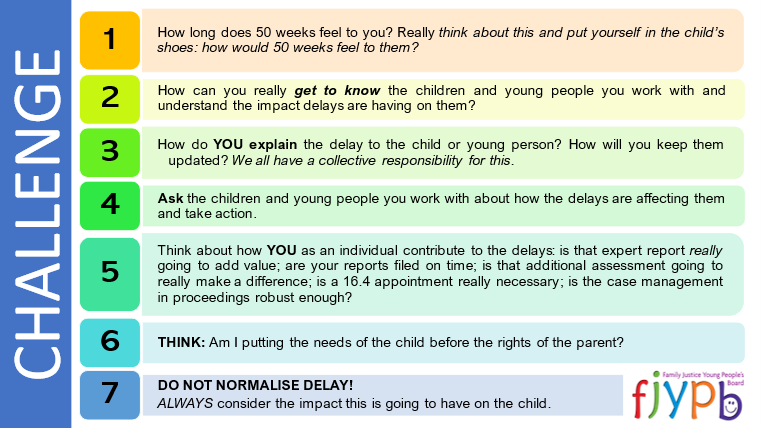
Related Blog Articles
National, regional, local

I am an advocate of collaborative working in general and a strong supporter of regional working in children’s services in particular. I recognise the importance of effective commissioning and am currently the Director of Children’s Services sponsor for a regional commissioning hub. I absolutely agree with the CMA that the residential children’s home market is broken. So, the question I keep asking myself is…why am I not jumping up and down with excitement about regional care co-operatives as outlined in the government’s implementation plan for children’s social care?
I should declare an interest. I am one of those weird (and, in my case, not particularly wonderful) ‘twin hatters’ who is also responsible for both adult services and children’s services. As a result, I have, within my services, a really effective commissioning team who manage the adult residential care home market. The market boasts both sufficiency and quality. Where there are gaps in provision, they stimulate the market to fill them. Where there are quality issues, they work with providers to improve or, if they are unable to do so, to move out of the market.
Why then, can the same people not manage the residential children’s homes market with similar success? The answer is simple. The care home market is a local market. The majority of older people in Warwickshire care homes are Warwickshire residents. The same cannot be said of the children’s home market. Children in Warwickshire care homes are as likely to be from London or the south coast as they are to be from Warwickshire.
In the West Midlands we set up a Commissioning Hub about four years ago. You might suppose that this would be the obvious place to start from, when considering a care co-operative. However, it was never our intention to use this model to take over the commissioning function of our 14 local authority areas, instead it was to augment it. We recognised then, and still do today, that there are things best done locally, such as fostering, and others which work best regionally, like developing residential frameworks. It is important to recognise though that, even where regional frameworks have been developed, local authorities from other regions spot purchase the beds at a price above the framework price and, naturally enough, providers continue to sell ‘placements’ to the highest bidder. You cannot fix a national problem with a local or regional solution.
The same thing is true of different types of provision. While each local authority will have a need for residential homes, there will not be enough need for some specialist provision, for example for children with complex disabilities, for those with complex social, emotional and mental health needs or those who have been exploited. This could best be provided at regional level. Logical progression, therefore, might be to suggest that there may be merit in some things being done nationally too.
Returning to my excellent team of commissioners who do many things. They assess need and capacity across the area; they develop and manage the market; they quality assure; they focus on developing and managing relationships; they support and challenge providers. What they do not do is place people in care homes. When people move into their new home, they are supported by social care teams who know them and (often) their families well. Practitioners who understand their individual needs and recognise the stresses for anyone, of any age, related to moving home. Our children deserve nothing less. Any care co-operative model needs to separate strategic commissioning from finding a new home for an individual child.
Despite all of my doubts, I believe there is a place for a form of regional care co-operatives; just not on the basis that has been outlined so far. Bringing the commissioning resources of local authorities together, alongside health and youth justice commissioners (who are equally important in this work) to develop bespoke provision to meet children and young people’s needs; sharing quality assurance information (and potentially capacity); and developing regional frameworks through which independent special schools and specialist children’s homes can be accessed must surely be a positive.
Unsurprisingly, in order to make such a system work, there is an ask of government. The proposals put forward from the Department for Education, regarding our workforce challenges, has been promising. A similar set of national rules which required local authorities to commission residential children’s homes through regional frameworks would end the country-wide spot purchasing challenge; turning the national problem into a regional problem - and, of course, regional problems can have regional solutions.
Related Blog Articles
Time to tackle child poverty

One of my main priorities as ADCS President is to put a larger spotlight on the dangerous levels of poverty we see in our society and the direct impact this has on children’s outcomes. National child poverty figures rooted in government data sadly show progress has been going in the wrong direction in recent years, but perhaps more slowly than our day to day experiences would suggest. There is no universally agreed upon measure of poverty and no single or common set of indicators to measure it in this country; that is to say for England, not Wales, Scotland or Northern Ireland, who are taking action here.
In children’s services, the number of local free school meal (FSM) claims can be used as a basic proxy for family distress and levels of need in our communities. FSM claims increased rapidly during the pandemic and this pattern continues to this day, with official data showing claims at the highest ever rate despite gaps in eligibility highlighted during Covid-19. Schools, charities and community groups are on the frontline of crisis responses, supplying food and other essentials, from winter clothes to bedding. Children’s social care departments are increasingly operating in this space too via our ‘Section 17’ duties, buying essentials and even carpets for children and families at risk of destitution. There are millions of children living in poverty, two thirds of whom live in working households. I’m always surprised how little outrage these figures attract.
The cost of living crisis rolls on and its impact continues to be felt in communities, households and families across the country, with single parent families, families with a disability, and larger families who have fallen foul of the ’two child’ benefit cap most at risk. There are stark geographical and ethnic inequalities too across a range of outcomes, from life expectancy and overall health to access to employment opportunities.
The contributing factors to poverty are complex, interrelated and familiar to us all: insecure work, a real-terms reduction in benefits, a housing crisis, reduced investment in public services, immigration policies preventing asylum seekers from working, rising costs of household essentials to name but a few. Whilst relieving immediate and basic needs is the right thing to do, we need to think bigger, think longer term and think family. An ambitious and multifaceted strategy is needed that responds to these challenges with children’s outcome at its heart. The most recent child poverty reduction strategy for England was published in 2014 covering the period up to 2017. Whether action happens under the badge of life chances, social mobility, social justice or levelling up, it just needs to happen. I was therefore pleased to see a debate in parliament on child poverty earlier this week.
Different parts of government are spending large sums each year ameliorating gaps and contradictions in the policies of other parts of government. A recent report by the Child Poverty Action Group estimated that the cost of child poverty was around £39 billion per year. We cannot afford either the societal or financial impact of child poverty so we must stop fighting the fire and address the root causes.
We need to have a renewed focus on this pressing matter. In 2017 ADCS published a paper A country that works for all children that sets out our ambition for children and young people in this country. However, a lot has happened in the intervening years and we will be refreshing this important paper later in the year to reflect the challenges children and families are now facing. The government must realise that failure to invest in children’s futures is a false economy and is only storing up greater human and financial costs in the future. It’s time for change.
Related Blog Articles
The year ahead

This is my first blog since becoming ADCS Vice President and so I wanted to start by acknowledging the inspirational leadership the immediate past President, Steve Crocker, brought to role. cSteve navigated the Association and membership through arguably one of the most important years in recent times for children’s services with the publication of major reviews in children’s social care and SEND. As I look to the year ahead, I know I will continue to be inspired by our new President, John Pearce, who has now picked up the baton from Steve and will be a brilliant advocate for children and lead the Association from the front. It’s truly a privilege to be Vice President of the Association and I am really looking forward to working with John, and ADCS all members and wider stakeholders as we work to make this a country that works for all children.
When John delivered his inaugural Presidential speech earlier this month at Kings Place in London, which is a beautiful venue and one I intend to go back to as a tourist, he laid out our policy priorities for the year ahead. Presidents have a knack of building on, developing, and taking further forward their immediate predecessors priorities, shaped by co-production with the ADCS Council of Reference, but informed by the values of the incoming President (note to self: remember this approach next year). This means that we see a careful and informed evolution of our ADCS priorities steeped in the political and policy context always focused on improving outcomes for all children and tackling inequalities that have sadly worsened as we have emerged from the pandemic.
In my last blog back in January, I said there was room to be optimistic when looking at the policy landscape ahead. And as ever a ‘glass half full’ person, I still think that’s the case. ADCS will shortly be publishing its response to the Care Review which was informed by the views and experience of hundreds of our members through a range of consultation events ran on each chapter. There’s much in the government’s implementation plan that will be good for children and was shaped by the constructive and positive dialogue the Association has with the Department for Education. ADCS and DfE are still not on the same page when it comes to how we best tackle the placement sufficiency crisis, and we need to come together to try and resolve this in the year ahead; a one size fits all structural solution simply won’t work.
That all said, the government’s Illegal Migration Bill is where my sense of optimism instantly wanes. If this becomes law it will drive a coach and horses through the 1989 Children Act. We are making these points very clearly and will continue to do so as champions and advocates for all children. It’s really important the Home Office listen to our serious concerns about what this legislation means for children.
I’m going to end on a positive. Back to the optimism. Back to the reason all of my fellow directors of children’s services and I do the job, because we are ambitious and want the best for children. I know in the year ahead we will continue this endeavour together.
Related Blog Articles
Don't forget our partners
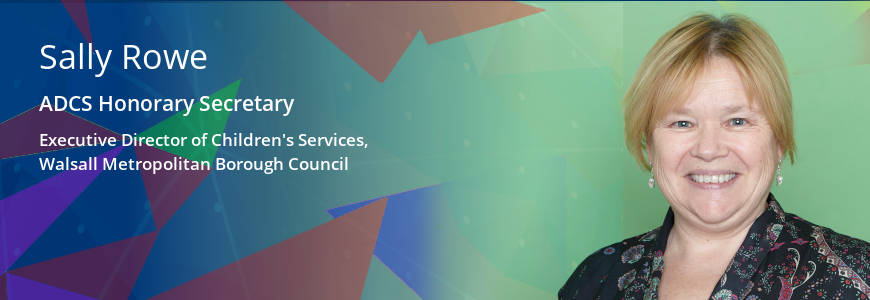
Like many of us I have been thinking over the last few weeks about our collective and individual responses to the Department for Education consultation on its implementation strategy for children’s social care, Stable Homes: Built on Love. Whilst there are things I think we all agree with and support, I also think we all recognise there are some gaps in both the thinking and the possible consequences of the proposals too. I have been thinking particularly about the future role of children’s social care and its function as part of the wider system within which we all operate.
This really came to the fore recently when, last week, I met with colleagues from our Safeguarding Partnership, Health and Wellbeing Board, Community Safety Partnership and Youth Justice Board to talk about serious youth violence and developing our joined-up assurance processes. One thing that struck me immediately was the need for us to ensure that colleagues and all of our partners also understand the proposals within the consultation so that they too are considering their potential impact on the way we all work in the future.
Part of our focus in the meeting was the research published in Scotland in 2021, What works to Prevent Youth Violence: A summary of the evidence, by Dr Kirsten Russell. The review suggests there is evidence that school and education-based approaches are effective in reducing youth violence. These include both bullying prevention programmes and social and emotional learning programmes. Our discussion focussed on the need to break away from traditional approaches with a social work focus to thinking about how young people today might experience the world around them. Plus, thinking about how other partners in our various collaborations have an equal role in making this work.
This brings me back to my earlier reflection of how important it is, at a local level, that we all ensure a system response to the consultation is made. Otherwise, we really are at risk of focussing on one aspect of the way we support young people and their families and ignoring the vital role of all of our partner agencies in that very same system. So, whilst we are all very busy, finding time to attend presentations about the consultation; no doubt chairing meetings about how we might respond and reading endless reams of paperwork on the subject, my plea is that we do not forget our partners. For if the future is to work, and indeed, if children’s social care is to maintain its discrete and significant identity, our multi-agency colleagues’ views, and opinions, are perhaps more important than ever.
Related Blog Articles
A job like no other

I will be retiring in the summer (I’ve always tried to follow Steve Crocker’s example!) and will be stepping down as Chair of the Greater London Region next month, so this will be my last ADCS blog. Naturally I’ve been thinking back over a career in children’s services going back over forty years (how did that happen?!) In many ways the needs of children and families have not changed, but the context in which teachers, social workers, and other members of the children’s workforce practice is unrecognisable. There are many factors which we’ll have to find solutions to if we are going to continue to attract, recruit, and (importantly) enthuse a new generation of diverse talent to both frontline roles and leadership positions. These go way beyond the perennial issues of resourcing and workload. I’m not complaining about the level of public accountability through inspection, although recent events should give everyone pause for thought, but for example, issues like the use of social media as a platform for the harassment of people simply doing their job, to which we haven’t yet found an adequate response, need real consideration.
As I think about my ADCS journey I feel that the Association, which I have been a member of since its first day, has gone from strength to strength. Being part of this community, which engages the government of the day and their officials in detailed and thoughtful ways, speaking with quiet authority often behind the scenes, has been amazing. I don’t think it is possible to overestimate the importance of ADCS’s work.
I’m not sure you can be an effective Director of Children’s Services (DCS) without being part of a network of colleagues, at both regional and national level, to test ideas with, seek advice from, and on occasions laugh and cry with (sometimes at the same time!) I certainly couldn’t. I also want to recognise the unique and precious relationship between ADCS and The Staff College which prepares and supports each new generation of DCSs. I know I could not have made the transition from practice leadership to system leadership without the formal and informal support provided through this partnership.
In recent years the development of the Regional Improvement and Innovation Alliances (RIIAs), as powerful expressions of the sector’s determination and capacity to improve and innovate, has been a real game-changer for us. Each reflecting the needs and distinctive culture of its region, while providing a common framework and point of reference for all of us. Again, it was ADCS that developed the idea and secured support from the Department for Education. In London it’s enabled us not just to respond effectively to inspection but to advance our priorities including regional commissioning, adolescent safeguarding, SEND and our workforce. In the case of workforce, our RIIAs has enabled us to address social work agency pressures through the London Pledge and support the development of the next generation of diverse leaders through the Leading in Colour programme.
Overall, it’s been an immense privilege to be a DCS and to work with and learn from so many amazing colleagues, some sadly no longer with us. I also want to give a big shout out to the wonderful ADCS team.
Keep up the great work.
Related Blog Articles
Opportunity knocks

As we move into spring it’s a time of change and I have the privilege of taking up the ADCS presidency for the next year, following on from the formidable Steve Crocker who has left me with very big shoes to fill. In his final blog last week Steve reflected on an eventful year filled with major national policy programmes, political instability and despite the challenges some really excellent work across our sector.
It has been an absolute pleasure working with Steve and he will be truly missed as he moves on to a well-deserved retirement. We will all miss his wisdom, good humour and friendship; he has left a significant legacy both on the system as whole and ADCS as an association. I’m delighted that Andy Smith, DCS in Derby City, has been elected as my Vice President and really looking forward to working closely with Andy over the next year at a critical time for children’s services.
One of the main issues that Steve has championed over the past year, children’s mental health, will continue to be a key focus. The impact on children and young people on a system that is overwhelmed and no longer fit for purpose has been highlighted over the last 12 months and it’s now essential we continue to push for a full national review of services. There has also been significant change in the health system with the introduction of Integrated Care Systems and there is a risk that this structural change further moves the focus away from ‘place’, disadvantaging community health provision for children. There must be a better way and it may be time for us as DCSs to be given the levers to effectively lead place-based integrated services.
A key priority for my Presidential year will be on inequality in all its forms. Working in the North East I see clearly the direct impact of poverty on children’s lives and the inequality that creates in education, care and health. I would also like to see the Special Educational Needs and Disability (SEND) system move away from a focus on diagnosis and labelling to a more social model that helps children be independent and fulfil their potential. To support this, it is essential that the ambition in the SEND improvement plan for greater mainstream inclusion is met. This can only be done by being honest about the barriers to mainstream inclusion including resources, curriculum, inspection, and the accountability frameworks our schools are subject to. Our education system should be for all children not just those who fit the prescribed expectation established in the current mainstream model.
It is also a critical time in relation to our workforce. The workforce sufficiency challenges are well documented and it’s really positive that DfE has recognised and tried to address the concerns around agency practices that have particularly destabilised the social care workforce. The national social work workforce consultation launched by DfE alongside the care review implementation strategy gives a real chance to reset. Our workforce does amazing things often in extremely difficult circumstances and we all have a responsibility to create an environment in which they can thrive. To achieve that the national intervention proposed by DfE is essential but we all also need to create the conditions for high quality practice at a local level so our staff can continue to make a difference in children’s lives.
It’s an exciting time with significant opportunity to shape the future for our children and young people through a range of national initiatives, and I haven’t even mentioned the Care Review implementation! I will be totally committed working with Andy over the next 12 months to focus on the opportunities and challenges to make things better for children and effectively represent the views of our members. I have learnt from the past year that things can change quickly (three Secretaries of State in three days during conference!) and we need to be ready to respond but hopefully the next 12 months will be a bit more settled.
Related Blog Articles
The year that was
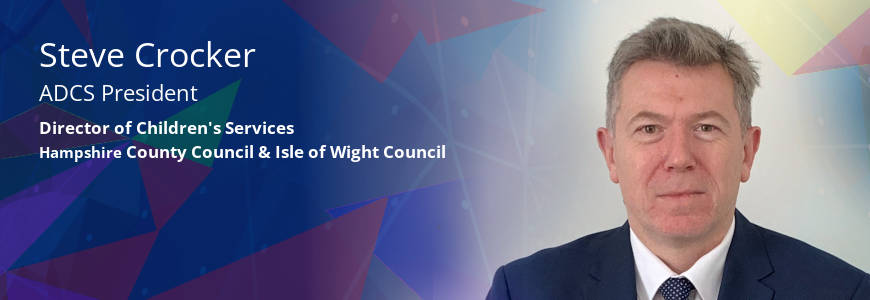
Well, that was the year that was, to paraphrase a famous satirical TV programme. And there has been the odd moment during the year when I’ve wondered whether I was a bit part player in an Armando Iannucci comedy. The political comings and goings at the time of the ADCS Annual Conference last year being one such moment.
Thankfully, things are a bit more settled now and I can take a moment to reflect on what has been a rollercoaster of a year. We’ve had three major policy initiatives that ADCS has had to constructively engage with and help to shape: the Schools White Paper, the Special Educational Needs and AP Green Paper (and the government response), and the independent review of children’s social care (and the government response). We also published phase 8 of ADCS Safeguarding Pressures research alongside a special thematic report on children’s mental health, both of which provide an invaluable contribution to the evidence base. More recently, you’ll have seen my comments on the Illegal Migration Bill. Responding to these policy changes has taken a real concerted effort from ADCS policy committee chairs, council of reference, the ADCS staff team and indeed all ADCS members who have taken part in discussions that have helped us to shape our engagement. In carrying out that engagement across government departments and with various non-governmental organisations, I’ve been continuously struck by the number of talented and dedicated people that I have met who simply want to do the right thing for children – that has been a real privilege.
For my own part, I must thank the members in Hampshire and the Isle of Wight and my own teams who have tolerated and supported me in equal measure, in spending so much time and effort on ADCS work. They have done so because they ‘get it’ in understanding how important these issues are for the future of local government, schools and the children that grow up in our communities.
There are frustrations of course. Arguably, no work on long term policy such as the above is ever ‘done’. We’ve made progress in some areas but there is more to do and in particular the lack of progress on improving services for children experiencing mental health difficulties should shame us as a nation.
Perhaps the single priority that I have been able to take forward that will, in the long term, continue to make the biggest difference has been a bit more behind the scenes. This time last year things were very unsettled and many of us were still reeling from the passing of Sarah Caton, the Chief Officer of ADCS. In the last year we’ve managed to ensure that we now have permanent succession arrangements in place with the redoubtable Esther Kavanagh Dixon taking up the reigns and putting in place a range of sensible permanent arrangements that secure the future of ADCS as an organisation. It’s not glamorous but it was really necessary and it means that the future is in safe hands because I can assure you, from my own experience, that the work that the ADCS team do behind the scenes is of the highest quality and ensures that we continue to exercise influence at the highest level. I know a bit about good teams and this team is top notch; I owe them a big thank you for wrapping around me as President in the last year.
Talking of which, it’s nearly time for me to hand over to my successor, the brilliant John Pearce from Durham (via Liverpool). John will be an excellent President and I know that everyone will get behind him. Before I go I just wanted to say thank you to everyone who has supported me, challenged me, caused me to think differently or just bought me a coffee over the past year. It’s been a wonderful, exciting, thought provoking, frustrating, exhausting and satisfying rollercoaster of a year. That’s part of the reason why I’ve decided to move on from current day job and retire, nothing will really match the last year – although I hope that I can still play a part in some way.
I started the year with a quote from one of my favourite authors, F Scott Fitzgerald and I am going to finish it with a couple of quotes from a more quintessentially English author, EM Forster, who said ‘life never gives us what we want at the moment that we consider appropriate. Adventures do occur but not punctually’, or more concisely ‘I suppose that I shall have to live now’.
And with that, it’s farewell from me and over to you John.
Related Blog Articles
Valuing social workers and social work
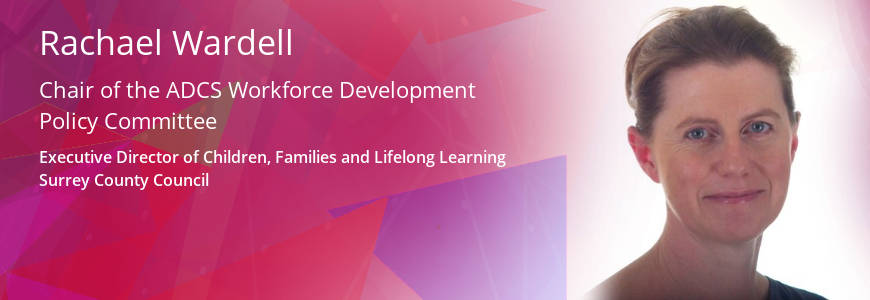
March is here. We’re on the cusp of spring. I can drive to work (and sometimes back home again) in daylight. It must be Social Work Week!
Of course, we should value the important work of social workers every day of the year, and I hope we do. But sometimes it’s good to have a focused dose of appreciation. Have we made time to appreciate our social workers this week?
Social work week is a programme of events from Social Work England, the wider social work sector and people with lived experience of social work. It has been focused on three key themes: learn, connect and influence and included a hugely varied programme; whether hearing from care experienced social workers or thinking about power, accountability and inclusivity in report writing; offering chair yoga for wellbeing or discovering facts about eating disorders. The week wraps itself around World Social Work Day (this year, Tuesday 21 March) which is initiated by the International Federation of Social Workers and spread globally by networks, movements and organisations that share the values expressed in the annual theme. This year’s theme for World Social Work Day was ‘Respecting diversity through joint social action.’ The theme recognises that across the world social workers are often engaged in joint social action, usually on behalf of communities, and – increasingly – with consideration for the environment. It is interesting to pause for thought about what social work looks like around the world. There may be lessons we can learn.
Meanwhile, in the UK, our child and family social workers often have a more individualistic focus. They work with specific children and families, and some may struggle to find time to get to know the communities where the families they help live, or the community of fellow professionals working in the same area. The pandemic drove us away from our offices and the return to face-to-face meetings and side-by-side working has been slow. But that togetherness is a vital part of building relationships and creating an environment in which good social work can thrive.
This Social Work Week in Surrey we have arranged an in person professional development session in each of the four geographical areas where teams are based, helping to support relationship building as well as learning. In addition to (I hope) a great training experience, participants will get a wellbeing pack and a lunch. I’m willing to bet that making time to eat together is as important a part of the event as the learning, (and probably much more valued than the Social Work Week ‘thank you’ video message I record).
I’m sure every local authority is recognising Social Work Week and celebrating social workers in their own way. I hope that connecting for togetherness and to build community is very much a part of that celebration.
As social work week comes to an end, I’ll return to my regular appreciation habit of seeking out some good practice to praise in my weekly email to staff in the Children, Families and Lifelong Learning directorate. Last week (among many lovely examples), I was able to celebrate a social worker who had really committed to their working relationship with a young person and their family and whose great practice was mentioned by the judge in the discharge of a care order. Not an everyday occurrence. That said, every week I look and every week I find social work and social workers to value. Thank you to every social worker everywhere for all that you do.
Related Blog Articles
Cornwall's New Year surprise
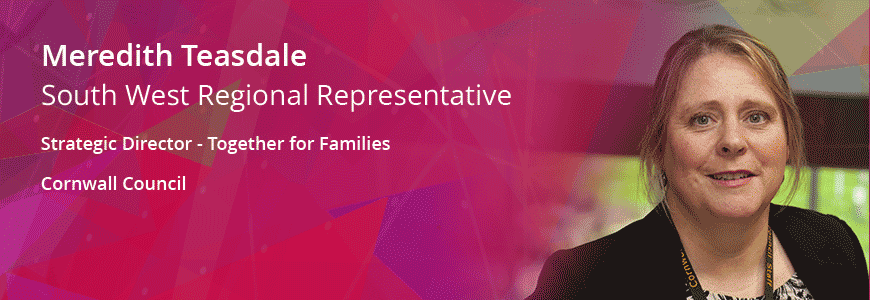
The period since Christmas has been an interesting one for us in Cornwall. On 23 January I received the call from Ofsted informing me that the Cornwall local area was being inspected under the new Oftsed/CQC SEND inspection framework. This, as always, creates a frenzy of activity as deadlines are met to provide data and information required through Annex A and the framework. The additional pressure was that we were only the second authority to be inspected under the new framework so there was little information available on how it worked and what it meant in reality.
My reflection a month away from that three week intensive inspection activity is that it is a tough inspection and framework that requires careful management and excellent relationship skills. The team was made up of local authority staff but also ICB colleagues and our Parent Carer Forum. The team worked tirelessly together and in person over that three week period.
The inspection began with a period of virtual meetings with partnership leaders, parents, children and young people, and practitioners. The inspection then involved five days with inspectors on site in Cornwall. A technical issue at the early stage was how inspectors could delve randomly into cases whilst having the right practitioners in front of them. This often meant a cast of practitioners prepared but turned away from the meeting as the cases were chosen by inspectors. This was an interesting and different approach, although it sometimes left staff feeling excluded and frustrated. As the inspection progressed we gave a clear message that “you may not get into the room to discuss your case, be prepared for this.”
The sampling of visits was small although 17 visits took place over the four main days and 33 meetings, including case holder meetings. So, it was intense. The Keeping in Touch meetings were very important to us, and again we attended as an extended team. The weave of the findings was at times difficult to follow and triangulate to where the evidence for a Key Line of Enquiry (KLOE) was coming from which meant that, at times, it was difficult to address the concern or answer it. The relationship with findings in the Keeping in Touch meetings and Feedback meetings also did not flow easily which is a difference to ILACS inspections. For us it was imperative that we kept notes of all these meetings and kept taking inspectors back to the Partnership Self Evaluation.
The Feedback session was interesting and attended by the great and good including people with SEND in their titles, although many of whom had not necessarily been on the journey with us over the last three years or even during the inspection. My observation was that these were possibly not the right people and whilst we had representation from our Parent Carer Council and ICB, the main people with skin in the game and who are held to account continues to be the local authority. If it is truly a Local Area Partnership inspection it should include representatives from our early years providers, LA maintained schools and academies. It is only by working together and being accountable together that we can fully achieve the best outcomes for our children and young people with SEND. I would commend Heather Sandy’s Blog from last week ‘Let’s Focus on Inclusion’ which highlights the tensions in the system that we are being inspected on. Good Luck to anyone going through the inspection now – we are a select cohort at the moment.
Related Blog Articles
Let's focus on inclusion
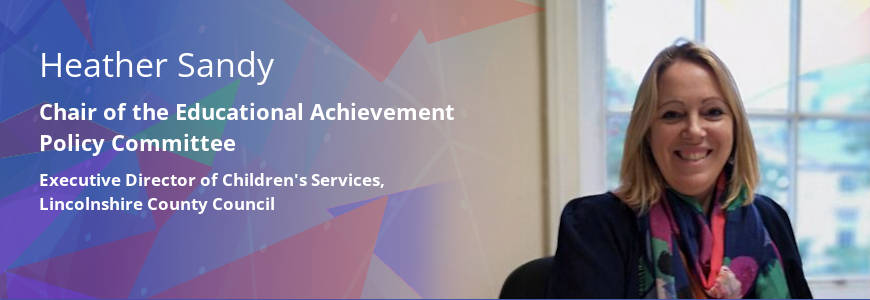
As Lincolnshire has been selected as one of the authorities to receive a joint Ofsted and CQC thematic review of Alternative Provision (AP), I thought I would use this blog as an opportunity to reflect on some of the challenges we are facing as a sector whilst delivering our duties in a changing education environment.
Local authorities (LAs) retain a central role in education, even in the midst of the government’s recent efforts to reform the school system. Despite over a decade of cuts to our budgets, we work with all types of schools and education settings to champion the needs of the most vulnerable children and young people and promote educational excellence for all. A key part of our responsibility lies in promoting inclusivity in education, supporting children to learn in mainstream settings as close to home as possible in their local community, and learning alongside their peers. These are significant duties.
Whilst it is important to remember these statutory duties, our role extends far beyond that. We are, of course, leaders of place responding when issues are identified for a child, often by schools who are the eyes and ears of the safeguarding system. This interconnectivity was particularly highlighted during the pandemic where we saw a reaffirmation of the strong partnerships that exist between local authorities and schools. I know from speaking to colleagues at the ADCS Educational Achievement Policy Committee across the country that, in many areas, relationships with local academy schools and trusts improved greatly during this time. ADCS has continued to highlight this to government and to drive home the central role of the LA in place. This is particularly important in the current climate of rising school exclusions and growing levels of child poverty. These children are still the responsibility of the LA but without stronger powers to make academies admit a child, they can be left out of the education system for a long time.
It is safe to say that the DfE’s vision for the future of the education system is far from certain and civil servants have had the challenge of multiple Prime Ministers and ministerial changes to contend with. The Schools White Paper, published almost exactly a year ago, set out a vision for a fairer school system. At the time, there was a lot to welcome with a much clearer role for the LA, although the ambition to have all schools in a strong trust, or in the process of joining one, by 2030 remains unrealistic. The paper also promised to consult on giving backstop powers for LAs to direct trusts to admit children, and, perhaps most significantly, there would be a new collaborative standard requiring trusts to work constructively with each other and crucially with their local authorities. The fact the Schools Bill was dropped was a real disappointment given the number of important aspects attached to it. For example, the register of children who are home educated is something ADCS has long been calling for.
The DfE has since recently published its SEND and AP improvement plan. The paper says many of the right things about inclusion and on strengthening accountabilities for LAs, schools and health partners. It’s focus on inclusivity is what is needed to rebalance the system towards a better mainstream offer for children with special educational needs. We need to take all schools along with us on this journey if we are going to support families earlier. However, we are seeing school exclusions going up as children are presenting more complex needs following the pandemic. The Timpson review of school exclusions, published in 2019, outlined some of the perverse incentives in the system which can lead to practices such as off-rolling, or gaming the system to improve a schools’ results. The review made 30 recommendations to government, yet the last time I checked, only six have been implemented and one of those relied on the Schools Bill successfully making its way through Parliament.
Let’s be clear, children are rarely excluded from school for their own best interests. An inclusive education system would not see approximately 50,000 learners educated exclusively or primarily in the alternative provision sector. Alternative provision is an intervention not a destination. Clearly, there is still a way to go. Without the right levers and an accountability system that incentivises schools to become more inclusive environments, little will change.
Related Blog Articles
A system built on care, love and compassion
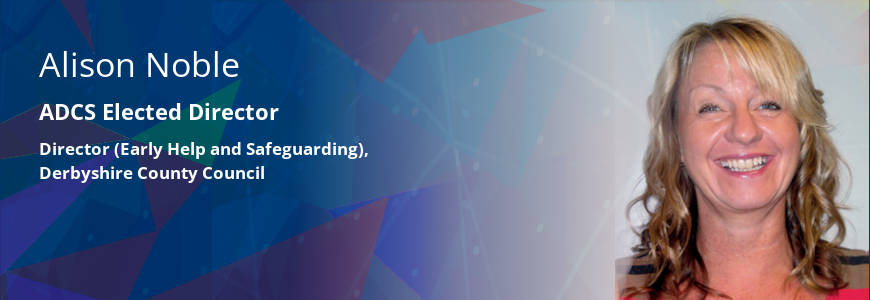
Whilst away on holiday and having more time to tune into world news, I became acutely aware of the tragedy in Turkey and Syria following the recent earthquakes. The lives of many children and their families have been tragically destroyed by these events and approximately 1,500 children are estimated to have been orphaned through the disaster.
One baby’s situation struck me as so sad but so remarkable in equal measures when she was found still attached to her dead mother by her umbilical cord, her siblings and her father also died in the earthquake. The baby was named Afraa after her mother and she has survived this horrendous start to her life, recovering swiftly from her physical ordeal with strength and resilience. Afraa has now been united with extended family members who will take care of her, and I am sure will treasure her within her family network.
Survival through adversity is more likely to be achieved with strong caring relationships and people who are around to catch us when we are falling and give us back a sense of belonging and meaning in life. Children with adverse childhood experiences who experience vulnerability deserve the warmth of a loving family. With this in mind, I was uplifted with some of the language in the children’s social care implementation strategy when it states that ‘the best way of promoting children’s welfare is very often by supporting children’s families and the loving relationships around them’.
Throughout my career I have been focused on family ‘help’, often best achieved through straightforward approaches which provide a clear vision of what is not going well from the families’ perspective, how they believe they will be best helped and shaping support with them to enable effective and sustainable change. Children who experience loss, grief, insecurity, instability, and fear will often respond in a variety of ways, sometimes with extreme and testing behaviour. They can dip in and out of their feelings, one minute they seem to be happily playing and the next they are intensely sad and challenging, at times with aggressive reactive behaviours, pushing their families and carers to their limit.
Living with children where extreme responses occur is incredibly difficult and ‘help’ for families in crisis, stress, and distress is complex and may require a level of expertise… but not always, and many times a warm conversation which demonstrates understanding and compassion can go a long way. If professionals in the childcare system adopt the sentiments of the social care review and ‘help’ families to build stable homes based on love, then more children may be helped to recover and grow stronger despite their adverse experiences.
You may be wondering where the linkage with the extreme experiences of the families impacted by the earthquake is. For me, it’s in our reflections on the implementation of the changes to the children’s social care system. The immense care and compassion people were demonstrating in their rescue efforts, going the extra mile without fear or favour. For many children and their families in Britain they may not have had the physical experience of a building come crushing down on them or the sudden loss of all their family members, but for the vulnerable children we seek to ‘help’ through the social care system their worlds are definitely rocked with the emotional force and gravity of an earthquake. As a system we must respond with love, care and compassion to facilitate systems and structures that are impactful, otherwise our efforts could continue to be in vain. The culture in which we give ‘help’ is equally as important as the help itself and, in the implementation of the changes in the system, consideration needs to be given as to whether we have the right approach and conditions for change to be impactful for those we seek to ‘help’.
Related Blog Articles
Unlocking the keys to learning
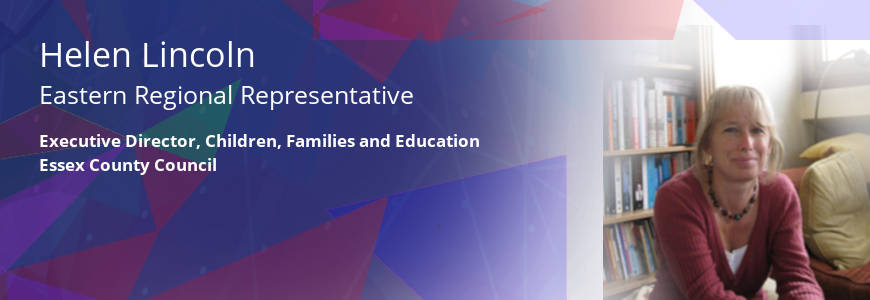
I expect people that know me well are thinking I would use this blog to make some comments around the government response to the Care Review or the family justice system, but that would be far too predictable …
Now well into 2023, I wanted to share with you my reflections on one of the initiatives my colleagues and I at Essex County Council have been working on – the Essex Year of Reading. Like all local authorities when the pandemic hit, we were forced to adapt our approach, innovating as we went. We were in a position where we had to continue the day-to-day but also consider how we would support children and their families, who may otherwise have not had any contact with our services before. Something I know has been a learning curve for us all in our role as a Director of Children’s Services (DCS). During the pandemic, as DCSs, we all felt concerned about the second period of school closures in the winter / spring of 2021 and the impact this would have on all children and young people’s education and wellbeing. The negative impact has now unfortunately been well realised and reported on nationally, I’m sure it has been seen by us all across all levels of our education systems. While we have worked with colleagues in schools to ensure effective use of the government’s Covid catch up funding we also recognised that short term and underfunded responses were not going to be the answer and that locally we would need to consider how we could grasp opportunities to embed a long-term strategy and approach to educational improvement utilising all the levers at our disposal. In direct response to this concern, we established the Essex Education Task Force, with a clear remit to oversee the recovery of children’s education and for the first time ever, the sector, from early years to post 16, came together to lead this incredibly important work. Through the work of the Task Force, the Essex Year of Reading was borne.
Our aim has been to not only engage families in reading and help them discover a lifelong love of it, but to also help them understand how it is the key to unlocking other areas of learning and wellbeing. We want every child in Essex to leave school and be able to read at their actual age level or higher. I have reflected on the success of this initiative and how this has been based not on a narrow focus on results and the continual introduction of new initiatives but instead drawing on community resources, children and young people’s own enthusiasms and interests, and the aspirations of our parents and teachers for their young people. Nationally we must work together to help the recovery of our young people through similar approaches.
The Essex Year of Reading was launched in February 2022 and has seen incredible successes including support from famous authors and public figures who have acted as ambassadors. The whole local authority has been engaged with our adult services using it as an opportunity to extend intergenerational work in schools and through Dementia Cafés, where children and older people have enjoyed reading together, further cementing the community bonds forged during the pandemic. In addition, our Adult Community Learning service have used Parent Ambassadors to engage 600 parents in literacy programmes. Support has also been targeted to schools, including extensive training around reading fluency. Evaluation has shown this has already resulted in increases in both comprehension and fluency ages. I strongly believe that success has been brought about by not tackling the issue in isolation but instead by viewing it through a community lens.
Our Year of Reading has truly captured the imaginations of families across Essex. To see how we, alongside partners, have been able to break down silos and engage pupils and families in reading in new ways has made me extremely proud. I know many of you have also considered your own approaches to increasing engagement in reading locally and I believe learning from this is applicable not only to other areas of learning but to education policy generally, where there is a need to work across government to firmly embed education as a central plank to the levelling up agenda. As we continue to understand the true impact of the pandemic as a system, I hope we can continue to learn from each other, share best practice and support each other with taking innovative approaches. I’m also looking forward to seeing the legacy of initiatives like the Year of Reading continue for a long time to come and to this influencing the approach we take nationally.
Related Blog Articles
Looking Forward
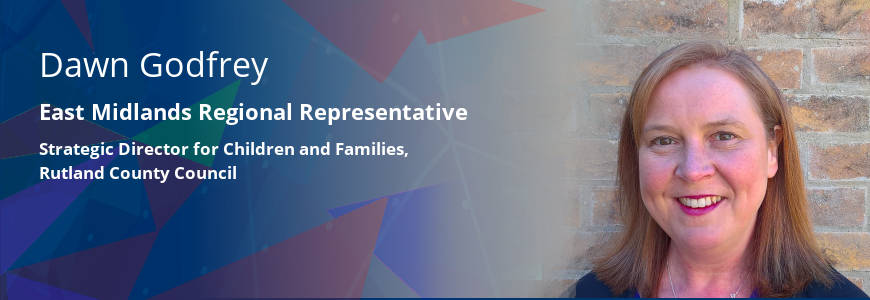
As I write this, there has been a huge amount happening in children’s services over the past couple of weeks. I am not going to rehearse the content of ‘Stable Homes, Built on Love: Implementation Strategy and Consultation’ (or the Children’s Social Care National Framework Consultation, or, indeed, the Child and Family Social Worker Workforce Consultation), but I am going to talk about leading through uncertainty, opportunities and looking to the future.
As leaders of children’s services, we have a golden opportunity to shape the future of children’s services for a generation. This week, I’ve been reflecting on how frontline staff are interpreting the strategy and what it means to them. Some are feeling excited about the future and see these times as a chance to be part of building a better system for supporting and safeguarding children. Others are feeling uncertain about what it might mean for their roles and how these changes might affect their work. These differing feelings are likely to be felt by our safeguarding partners, and others too. Investing in relationships both inside and outside of our organisations is going to be key to implementing change and keeping the focus on improving outcomes for children.
Locally, we are also in the midst of a corporate transformation programme (as are many of us!) so aligning this activity with the implementation strategy, as well as any forthcoming reforms to special educational needs and education, can feel overwhelming. When feeling uncertain, it is so easy to slip into the language of ‘challenge’ or ‘pressure’ which can stifle constructive thinking, discourage creativity and stop us seeing the opportunities for doing things differently. Leading through uncertainty requires us to demonstrate confidence and be clear about our vision, but also admit that there are things we don’t know. Listening to and involving staff in these discussions helps us to build trust and motivation to implement change. It also gives us an opportunity to challenge established thinking and be challenged ourselves about how we can create the ‘right’ conditions for staff to practice differently.
Regardless of what we think about the DfE implementation strategy, we all want to ensure that our communities of children and families receive the services they need and deserve. And I, for one, am determined to use the opportunities contained in the implementation strategy to achieve this, both regionally and locally.
Related Blog Articles
Working together
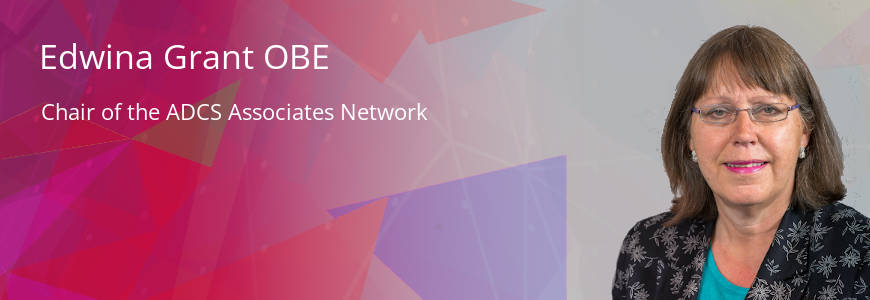
At the time of writing, ADCS members across the children’s sector will be reflecting on the government’s response to the independent review of children’s social care. There is a lot to unpack amongst the three consultations that have been launched. The proposals could have real implications for the children’s workforce and how they support families and I encourage you all to respond. As a former director of children’s services, I know all too well the value of early help services, so it is positive that the implementation strategy has a focus on supporting families earlier. However, if the government is serious about this, it needs to be met with dedicated, long-term funding.
Inevitably, the response will lead to a further review of the important ‘Working Together to Safeguard Children’ regulatory guidance. This guidance, first published in 2006 following the Children Act 2004, has been through a number of iterations since. I have seen the guidance change subtly over the years and it will now change again following the government’s commitment to consult on changes to the guidance within the next few months. I encourage ADCS members to give as much attention when reflecting on the review of this guidance as we will do in responding to the other aspects of the implementation strategy. Its core purpose is to ensure that children and young people remain safe from harm.
In 2003, prior to the implementation of the Children Act 2004, I was fortunate to be leading a London Borough which was asked to pilot some ideas for the Act. This was in terms of interagency working. The concept was not fully incorporated into the final legislation as we were testing a more integrated team at local level, via a formally structured Children’s Trust. This was to include the secondment of a large number of children’s health workers into the Trust, including community paediatricians. We did not proceed, and it was not until 2019 when, as the Director of Children’s Services (DCS) in an authority that adopted the highly successful ‘Family Safeguarding’ concept as a practice model, that I had the opportunity to welcome health staff into our formal operational structure in order to support families better and to collaborate more fully with other partners.
So, what am I hoping for in the new Working Together guidance? A significant focus on the responsibilities of all our partners in protecting children, some real clarity about the role of DCSs in the leadership of place, and the enhanced responsibility of partners from all agencies to assure the right resources in the right place to achieve the best outcomes for children and their families.
Related Blog Articles
Learning from experience
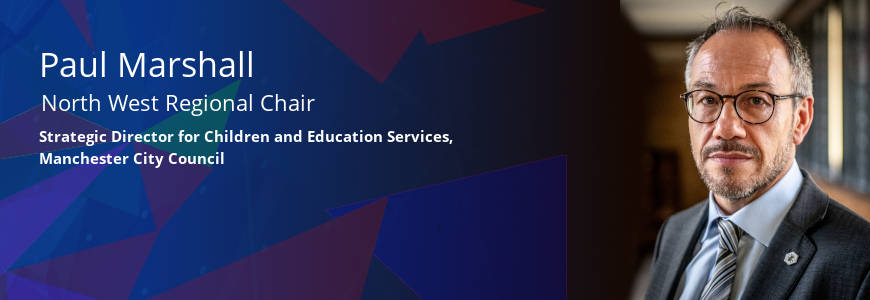
As I write this blog, I do so acutely aware the government’s eagerly anticipated response to the Independent Review of Children’s Social Care has been published and may prove a more interesting read!
I was encouraged to read Ofsted clarifying the position regarding its approach to tackling unregistered children’s homes and what this means for Directors of Children’s Services, not because it lessened the burden of accountability, rather an inherent acknowledgement of the challenges that beset the sector and that such arrangements are ones of last resort. Having had to reluctantly agree to such arrangements on occasion, I felt a sense of liberation at not having to hold a ‘family secret’ by myself for fear of being adjudged to be failing children despite our best efforts.
I hope the government grasp what has been billed as a once in a generation opportunity to develop and fund a national policy framework that tackles, head on, the challenges the sector face as opposed to short-sighted, quick fix, short term funding and increased regulation. Issues of funding, workforce, and sufficiency - none of which are quick fixes – will not be addressed without reflection and learning from experience to avoid unintended consequences.
I stole a moment over a ‘working lunch’ with Sean McKendrick, Deputy Strategic Director at Manchester City Council, as someone who practiced in Scotland during the 2016 Care Review, and asked what the missed and most impactful opportunities were that the DfE could learn from, Sean explained;
The Social Work Scotland Act 1968, the precursor to the Childrens Act (Scotland) 1995 set a distinctively different pathway for Scotland’s approach to policy and legislative development for children. It created permissions for a more integrated service delivery model and a less adversarial approach to meeting the needs for children.
The catalyst for the two care reviews were very similar - both heralding a once in a lifetime opportunity for radical change and reform. In addition, both reviews were led by diligent and thoughtful individuals and were influenced by those who have experience of the care system.
It is noteworthy that Scotland’s review took three years to complete and the views of those with present and past experience of the system were baked into a series of reforms that saw relationships as a driver for change centring around the values of Voice, Family, Care, People and Scaffolding and were articulated into what became the “Promise”. The implementation response supported by all in government were carefully aligned to ‘Keeping the Promise’. “Holding” the voices of those with experience of the care system may prove critical to the depth and design of any subsequent reforms arising out of the Independent Review of Children’s Social Care.
Scotland has a well-established social care outcomes framework; SHANARI (Safe, Healthy, Achieving, Nurtured, Active Respected and Responsible), which have engendered a common language across agencies and professionals to deliver a coherent reporting arrangement driving outcomes. The proposed outcomes framework would do well to replicate these facets.
It would seem Sean’s observations point to the criticality to have an agreed cross party/government set of values and shared reporting framework, that learns from experience, to deliver lasting reforms which create stable homes for children that are built on love.
Related Blog Articles
Turning the corner on improvement
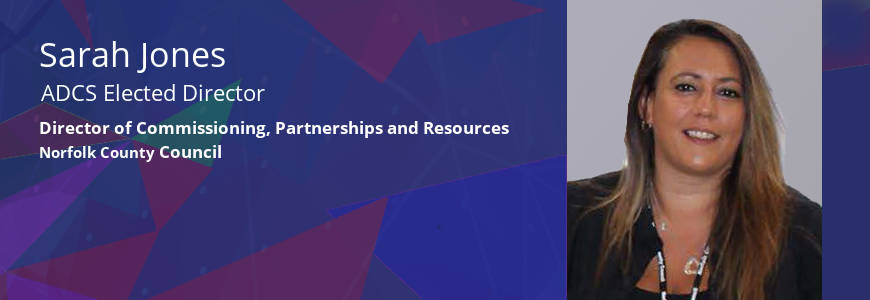
I can’t believe it’s that time of year again for my blog. I always start January in quite reflective a mood, thinking about the past year and the one ahead.
This year January has been an important month for me working in Norfolk as the outcome of our recent ILACS has been published after our long awaited inspection last November. I’m pleased to report it was very ‘good’ news. Those of you who know Norfolk will know the significant and systemic challenges we have faced over a number of years as we were on our long improvement journey involving multiple improvement and intervention masters, a cast of senior leaders and relentless media scrutiny.
I am so pleased with the result for our committed staff who have stuck with it. From a frontline member of staff to a senior leader, it’s not easy joining an authority on an improvement journey, but on reflection while it is challenging, and there is no magic bullet to solve the challenges faced, it can be the most rewarding and fulfilling experience both professionally and personally. I know we are all always on an improvement journey but for those colleagues just at the start of this process, or working through it now, always remember to visit the open door of regional ADCS colleagues and the network of national ADCS policy committees as you can bet someone else will have some words of advice or support to offer.
Another January milestone is Blue Monday, which seems to have become a way of raising awareness of mental health. I was at a session with some of our young people recently as part of the launch of our youth strategy and unsurprisingly mental health was their top priority. The young people I spoke to were willing and able to talk about their own needs and experiences, but what about those who don’t feel able to, or can’t, ask for help?
Mental health has been a priority at ADCS this year and continues to be a significant concern for us all working in children’s services. We must look differently at ways to build emotional resilience, support good wellbeing and treat mental ill health. This was a key message coming from a recent ADCS thematic report on children’s mental health. There is an urgent need to respond to the significant rise in anxiety and low self-esteem amongst children and young people and for a more preventative, whole systems approach to be pursued nationally. There is currently a lack of consistent mental health training for the 7.6 million members of staff in the wider children’s workforce. In Norfolk, we are working with the Anna Freud Centre and partners to begin to address this. We will keep you updated on how this develops.
So, I nearly managed to get through my blog without mentioning the Independent Review of Children’s Social Care, but January should also bring the launch of the long awaited government response, implementation strategy and related consultation. I’m sure it will stimulate much debate, but I hope there will be a sufficient substance and bravery in terms of policy and funding so we can move beyond discussions towards meaningful and lasting action in 2023. I will reserve further comment until I see the detail.
Happy New Year all, and I look forward to working with you in the year ahead.
Related Blog Articles
Trying to remain optimistic!
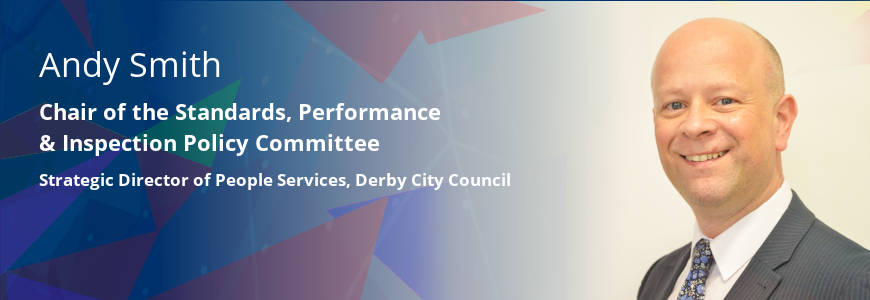
Does anyone else feel like any downtime we had with our family and friends over the festive period was a long time ago? As I write this in my little office at home, surrounded by a plethora of festive chocolate and sweets yet to be devoured, I’m clinging onto the positive and warm feelings that Christmas instils in me, still determined to build more visits to the gym into my weekly routine.
As we say goodbye to one year, you inevitably start to think about the year ahead and what’s to come. This time last year none of us could have imagined the massive shocks we have experienced in the wider economy and the eyewatering impact this had, and continues to have, on our communities. I hope that in 2023 we will see a greater sense of calm and stability and that the cost of living crisis becomes something we talk about in the past and not present tense. I know there’s some distance to travel yet.
Ever the optimist and with a glass half full, we are expecting some significant responses from the Department for Education this year. Arguably of real importance will be the government’s response to the Independent Review of Children’s Social Care which, through ADCS President Steve Crocker’s leadership, ADCS has been actively engaged in and could be transformational for children’s services. We also anticipate responses to the consultation on AP and SEND and hold our nerve to see how much of the Green Paper translates into a White Paper.
Where my propensity for optimism is currently being challenged is through the reflections and discussions we’ve been having at the Standards, Performance & Inspection (SPI) Policy Committee about the DfE consultation on supported accommodation standards for 16 and 17 year olds. I’ll Ignore the fact the consultation arrived later than we were expecting and with the festive period compressing the time to respond. The proposals outline significant changes for the sector which if not landed properly has the potential to result in some big unintended consequences. You can read the ADCS response to the consultation here.
It’s positive that one of the proposals is to register providers and not individual settings, something that ADCS was pushing for from the outset. We know from the survey Ofsted did last year (and the resultant blog) that one of the big differences in this market, compared say to children’s homes, is that there are many more locally run, smaller providers, often rooted in a place which means young people are much more likely to live in their community. This clearly is better than being placed at a distance. Through the SPI committee, we’ve pushed on developing standards that are proportionate and reflect the differences in accommodation, arrangements and needs between registered children’s homes and accommodation providers for 16 and 17 year olds. This has been achieved to an extent, but the draft standards are dense and with proposed responsibilities for registered managers, together with inspection, runs the risk of providers exiting the market.
It’s vital that there is better join up and read across to the significant wider placement sufficiency problems we are already dealing with for our children in care, children with mental health problems and unaccompanied asylum seeking children. There must also be points to review how many providers come forward to register when the window opens, so we can try and mitigate a new set of placement sufficiency challenges. I really don’t want to be writing a blog in 12 months time saying, ‘I told you so’.
Related Blog Articles
Resilience and why it matters in 2023

The start of a new year is always a good time for reflection on what changes we want to make professionally and personally for the year ahead. Recently, I have been preoccupied with resilience. What can we do to foster our own resilience and that of others? I started by thinking ‘so what does being resilient mean?’
When looking at nature, trees are resilient, bending beneath a heavy load of wind or snow without breaking. Resilience in people signifies more or less the same thing; the ability to withstand stress or distress without breaking beneath it, physically or emotionally. We want the children and families we work with to bounce back and to cope better with life’s challenges. It’s the same for our staff, an absolute prerequisite to be able to withstand stress and distress, and then come back to work the next day. The brain is an incredible organ but it kicks in, sometimes unhelpfully, when we are under stress. The flight, fight or freeze response. Ever felt overwhelmed, indeed frozen by the size or scale of a problem that you are facing? Or in fight mode, angry and fed up with what you are dealing with, how unfair it feels? At this point the best thing to do is to slow down and give the higher brain a chance to come in. This is why reflective supervision and systemic ways of practicing and hypothesising are so important. The higher brain is where analysis takes place, where you can troubleshoot problems and find some creative solutions with others in your team. Perspective-taking builds resilience, the ability to take the long view, this is why they talk about leaders ‘getting on the balcony’ ‘seeing the bigger picture’ - not going down rabbit holes.
I spoke to my friend, Dr David Mercer from Leeds Beckett University, who completed Doctorate research into resilient social workers and what he found in relation to leadership. He said organisations need to see resilience as both an individual and organisational responsibility. Our staff are dealing with complex issues relating to poverty and inequality due to the current cost of living crisis. Added to safeguarding issues, this creates considerable trauma for social workers. Leadership requires managers to be available to their staff in de-constructing critical incidents from practice, building a learning and reflective culture. He believes in building individual and group identity within teams which supports social workers with developing ‘workplace resilience’ rather than the onus being on the individual. So social connection, talking to others, sharing issues and getting support is crucial. A recent article from the Kings Fund identified that listening is probably the most important leadership skill and compassionate leaders take time to listen to the challenges, obstacles and frustrations colleagues experience as well as listening to accounts of their successes and joys.
So for 2023 I am going to focus on how compassionate leaders behave: they empathise with their colleagues and seek to understand the challenges they face; they are committed to supporting others to cope with and respond successfully to work challenges; they don’t have all the answers and don’t simply tell people what to do, instead they engage with the people they work with to find shared solutions to problems.
Related Blog Articles
What's on the horizon
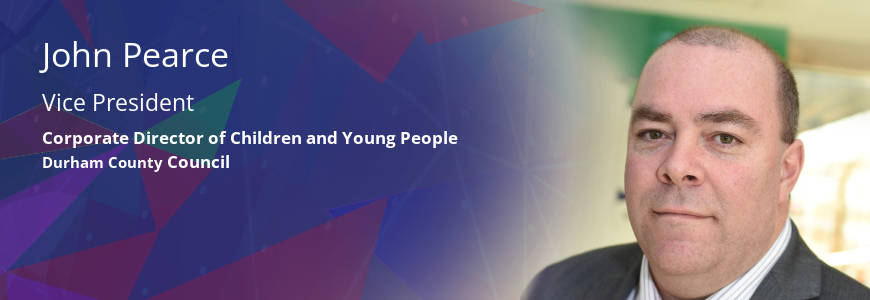
Happy New Year to all and hope you had a good holiday period. Let’s hope this year brings a resolution to some of the long-standing issues that we have been grappling with and also a sense of calm. Looking back on the past year it was a whirlwind for all sorts of reasons not least some of the political turmoil, which led to us having five Secretaries of State for Education in the space of a few months; and many of us will remember the increasingly surreal week in Manchester for the ADCS Annual Conference when there were three in the space of three days!
We are at a critical time in terms of national policy with the imminent government response to the care review, next steps following SEND and AP Green Paper consultation, and whatever comes next on education policy after the demise of the Schools Bill. Such significant national policy reform needs a level of political stability to be implemented, and I think we all recognise the importance of system reform even if there may be some disagreements on the detail. So, a period of calm and relative stability would be welcome to give a foundation for this vital system reform to be progressed.
As we move towards implementation, the role of ADCS becomes even more critical as we are the ‘doers’ in the system, with the operational understanding to recognise the opportunities and challenges that will arise in turning policy frameworks into an operational reality that makes a difference for our children and young people. We are also best placed to recognise the pitfalls and some of the unintended consequences of system reform and use the learning from the past. For those of us who are now more mature, we can bring a knowledge of previous cycles as there is nothing completely new.
Our President, Steve Crocker, has continued to emphasise the importance of ‘test and learn’ as we move into implementation phase and the next year will hopefully give the opportunity to do that. This testing needs to have a breadth to it that enables learning in a range of contexts, geographies, and types of local authority. We also need to ensure any testing provides a safe environment in which to fail as we will not sufficiently learn solely from testing options in environments that are ‘doomed to success’.
Unfortunately, we also head into the new year under the cloud of a ‘cost of living crisis’ that is overlaid on many years of increasing inequality and growing levels of child poverty. We all know that children’s services often provide a sticking plaster on these broader socio-economic issues, and it is essential that nationally there is a focus on addressing the underlying issues that create inequalities and drive up the need for our services.
A national strategy to address child poverty must be an ambition for the new year together with a coherent joined up national plan for children and young people. It’s positive that the government recognises the need for system reform across education, social care, and SEND but it’s critical that the inter-relationships between them and the broader underlying challenges are central to the way forward. Levelling up seems to have gone quiet, but we cannot afford the need to address increasing levels of inequality to fall off the national agenda.
Related Blog Articles
Making some wishes for Christmas…

As I write this it’s finally beginning to feel a bit like Christmas. My original idea for this blog was to compose something witty along the lines of the ‘Twelve days of Christmas’. I had a great line for the ‘five gold rings’ bit (‘five secretaries of state…’ – there, I didn’t want it to go to waste) but I couldn’t decide who or what was my partridge in a pear tree. Also, I wasn’t really feeling sufficiently jolly either, given the difficult year that we have had in many ways. Instead, my thoughts turned to what would be my Christmas wishes – and I am allowed two, as Christmas is also my birthday.
Firstly, my thoughts went back to a recent tweet that I had seen from Hampshire Libraries. This showed a picture of some of the 4,000 (yes four thousand) child refugees from the Basque country who had been brought to the UK in 1937, fleeing from the carnage of the Spanish Civil War. The four thousand children were accommodated in a hastily erected camp near Winchester. I doubt that the authorities at the time had to register the camp as a house of multiple occupation, seek planning permissions or have an inspection from the 1930s equivalent of Ofsted. It strikes me that we have much to be proud of in the way that children’s services departments across the country have helped to facilitate the hosting of refugees from Ukraine, not least because we recognised this as a national crisis and allowed flexibility and pace of response to be our watchwords rather than being rule bound. But what is it about the crisis of asylum seeking children arriving on the south coast now, fleeing wars and oppression that are very similar to those experienced in the Basque country or Ukraine, that means that we are not able to apply the same flexibilities and pace in our response? So, my first wish is that we treat the crisis on our coast as a crisis and create the conditions that allow us to offer children a safe place this Christmas and beyond.
And my second wish? Well, it’s quite simple really. It’s that we find a way to reset the public perception and professional standing of our brilliant social care staff. From our residential care workers who will be working flat out over Christmas to make sure that our children in care are able to experience a loving, safe environment; to our foster carers; our family support workers who have been working around the clock to support families; to our social workers, managers and yes, Directors of Children’s Services, who are carrying out some of the most unenviable tasks in public service, all the time risking public opprobrium but getting on with the job because they know just how vital their job is in ensuring that children are safe and cared for. To all of these colleagues I take my hat off to you at Christmas and indeed every day; and my wish is that in the next year we can help change the public discourse about this great profession of ours.
Merry Christmas.
P.S. If you’re interested, you can read more about the Basque refugee children here.
Related Blog Articles
A time for serenity
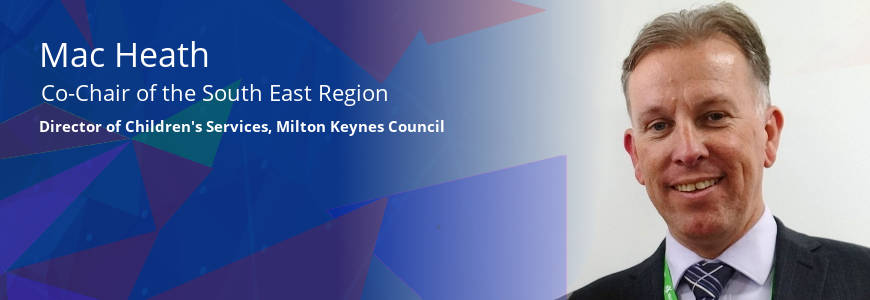
A couple of weeks ago I welcomed LGA colleagues to support our development work in the form of a Corporate Parenting Peer Diagnostic. As they arrived on site I was just walking into our welcome meeting when the phone rings; it’s the call from Ofsted announcing a focussed visit on children in care!
We therefore unleashed the plans in place, did all the things we do, progressed with the Diagnostic whilst submitting the Annex A for Ofsted, organised the set-up meeting, and planned the inspection diary. We quickly recognised we had a number of our highly skilled business support colleagues missing, but all would be well as our Safeguarding Improvement Officer was taking the reins. This reassuring thought lasted ten minutes before I was informed he needed to go home due to illness. As always, however, colleagues stepped up, went above and beyond, and overstretched their reach.
During such inspections and reviews it becomes increasingly clear, as a Director of Children’s Services, how limited in the moment one can be to really make a difference to the interviews, or the outcome, when in the midst of the process itself. As our social workers and inspectors were in rooms together to ‘deep dive’ files, or to ensure the uploading of audits, it can be easy to become overly exercised in ‘what should be done’. Instead, often all we can do is to create the conditions for our colleagues to shine, and when there are moments of difficulty, as inevitably there will be, take the opportunity to reassure and remind ourselves as to what can be done and what may be out of our control.
Looking back over this year and how we, across our regions, have needed to respond to matters out of our control whilst continuing to maintain the right conditions for others to shine should bring a feeling of pride across our sector. The ability to retain a sense of optimism, influence and assurance evidently continues to show real resilience. Whether it’s the circumstances surrounding the asylum/Ukraine/Afghan challenges, workforce demands, the placements market, or the day-to-day competing demands that arrive in our inbox, we need to continue to judge where we can make a difference and what is out of our control, but wherever the issues fall, continue show discernment and bring assurance.
As I reflect on last week’s news that the Schools Bill “will not progress in its current form”, which was the focus of my presentation at our last headteachers conference, it made me question again: am I spending my time investing in the right things where I can make the most difference? Therefore, my thought this week is to remember the benefit of serenity, often seen as the focal point at AA meetings to help anchor its members. It seems to have as much relevance for us in our roles than ever: to have the serenity to accept the things we cannot change, courage to change the things we can and wisdom to know the difference.
Related Blog Articles
Mind the gap

This is my first contribution since being elected as Chair of the Health, Care & Additional Needs (HCAN) Policy Committee. Putting myself forward for this role was a decision not taken lightly. Like all ADCS roles, it consumes a significant amount of time which needs to be found on top of “the day job”. Nevertheless, I was clear that the issues we face in this area and impact on the whole of our services, meaning it was therefore important for me to “step up to the plate”.
At last month’s HCAN meeting we reviewed the recent ADCS Special Thematic Report on Children’s Mental Health published as part of ADCS Safeguarding Pressures research. If you haven’t already, I would urge you to read the full report. The conclusions are sobering. It is clear that we are facing a crisis that will see an exponential increase in demand; this on top of current insufficiencies in the supply of appropriate care for some of our most vulnerable children. Furthermore, and I am sure we have all experienced this, we have a system which is driven by a framework of legislation and pathways and a cohort of children that, put simply, do not fit into the boxes that have been created. In other words, there is a sizable gap between children’s social care and mental health services, and between residential care and tier 4.
From my positions, both as a Director of Children’s Services and as HCAN Chair, it seems that much of the issue could be addressed if we were enabled to create appropriate services that specifically meet the needs of these children. All too often we are unable to wrap partnership support around them until they reach crisis point, and then we are forced to rely on either unregulated settings; Deprivation of Liberty Orders; or, when we can access a bed, secure children’s homes (SCH). All of which may keep children physically safe but cannot do enough to address the underlying need.
In the West Midlands we have a long-held ambition to create a Safe Centre which is more than just the secure children’s home that would serve as its hub. The aim is to augment it with bespoke units that both support reunification to the wider community and offer early support to those who should not enter secure, but sadly often do. This includes many of the children identified in this report. Of course, for this to be effective, we need to step outside of our silos and work collaboratively, across partnerships, which has not proved to be a problem and we have a lively Partnership Board all keen for their services to become involved. However, whilst we are grateful for central government’s continued support for this project, our realising of the vision seems to fall short of the bigger picture, with funding only being available, at this time, for the SCH element. For those of you familiar with the ideas of C. Northcote Parkinson, you might agree that such an approach is likely to only increase the need to match the supply.
I have absolutely no doubt that all professionals in this field, especially those working in the mental health arena, are doing an outstanding job with the tools they have available to them. My plea to central government is that through considering an approach based on need, rather than clinical diagnosis, and focused on early intervention, we give them a more varied toolbox.
As a final note, I absolutely want to echo Steve Crocker’s sentiments in his recent article published in The MJ. In fact, his final comment is worth far more than just echoing, so I will quote it directly:
Children and young people tell us mental health is the number one issue for them, we must show them we are listening.
Related Blog Articles
I'm a DCS...get me out of here!
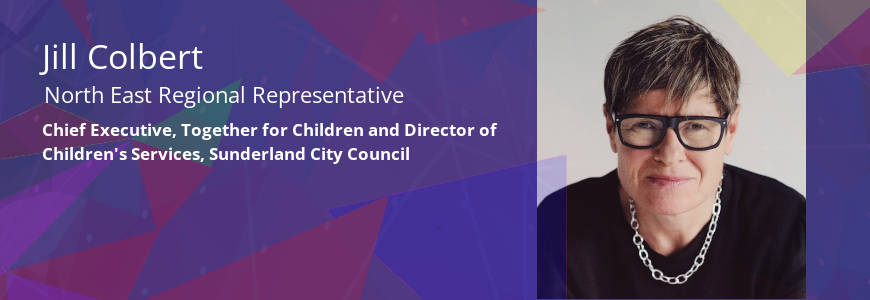
Like me, many of you might be relieved that a serving MP wasn’t the winner of this year’s I’m a Celebrity, and you may also, like me, celebrate the fact that a national sporting heroine who also happens to be gay, won. What an incredible role model for young people and liberating to see a woman be her authentic self on national television (with a cockroach in her ear to boot). Of course if she were a male footballer in the England national team s/he might be a lot less comfortable wearing her proverbial heart on her sleeve at this years’ World Cup. Moments like this remind us all that social change is palpable but heavily context-specific.
We try to drive social change through our work with children and families every day but in the face of mounting and unparallel pressure. The implementation of the National Transfer Scheme (NTS) illustrates that all too well. Practitioners hold our feet to the fire to find the best and most faithful care support for our children who arrive unaccompanied but we’re operating in an environment where we’re often playing a game of top trumps with a diminishing external market, and we all know who wins that game. We know that time to learn and plan with young people is imperative in crafting good care plans, however, we are beholden to Home Office timescales and the resolutions to those young people’s asylum applications are usually a long way off. I hope that how well we implement the NTS is not the litmus test of our allyship and care for global majority children who find themselves far from home and family, and nor should it be the litmus test of how well we respond to a crisis. We know though that we could do so much better if we were seen as co-designers of the system with freedoms and flexibilities to collaborate and mutually problem-solve.
At the ADCS Annual Conference this July, Dez Holmes, from Research in Practice, gave directors of children’s services some feedback from our senior colleagues as part of her Wednesday afternoon emotive and punchy session on intersectionality. We talked about how much we value allyship and how we need more of that so that we can at least verbalise and articulate the lived experience of our colleagues who don’t see themselves reflected in management and leadership structures. Time is of the essence. If social change is palpable let’s ride the crest of that particular wave and let’s ask Government to co-invest in anti-oppressive and inclusive leadership training so that our leaders of the future reflect the communities that they seek to serve. Let us be our authentic selves, with or without the cockroaches. As the ADCS North East gang would say… gan canny marras.
Related Blog Articles
Change is everyone's responsibility

Change these days usually goes hand-in-hand with budget cuts and, very often, some sort of compromise because of tough decisions needing to be made. Time runs away and we feel we’re constantly on a treadmill, embarking on making more changes before the ones we originally agreed have had time to get to fruition. Anyone else exhausted? There are not many weeks when I don’t feel as though I am meeting myself coming backwards, however, I remain an incredibly positive person. Ideally, I would want to reclaim “change” as the enabler it can be, and that we were all taught it should be on our various leadership courses, and more importantly change as a concept that I feel in control of…at least some of the time.
There is nothing worse than being done to and consequently feeling decidedly powerless; I suppose this is one of the reasons why I put myself forward to be an ADCS Board Member – a huge thank you to everyone who voted! A couple of months ago I was part of a group conversation with ADCS President, Steve Crocker, about the lack of diversity and representation within our Association. So, I made a decision to not stay on the side line, but instead grab the opportunity to have an active voice in ADCS and put myself forward to hold a seat on the ADCS Board of Directors as an Elected Director. Collectively, whether elected or not, the Association is our ADCS and it’s up to us all to define how strong, representative, and diverse it can be…but we must actively participate for that change to happen.
Surprise surprise, I haven’t got loads of spare time, nobody has, but I do feel this is important. I have a strong sense of public duty and a strong sense of wanting to be part of collective change - for the better, for us as professionals across our many sectors, and for the children and families we work with. If I can be part of active change, even in a small way, then I feel it is my responsibility to at least try. So, here I am at the start of my journey joining a team of talented and aspirational individuals. I have high expectations of myself so it will be interesting to see if I feel as optimistic in 12 months’ time or indeed what I have been able to meaningfully contribute to. Either way, that will be on me and no one else.
Related Blog Articles
A week is a long time...
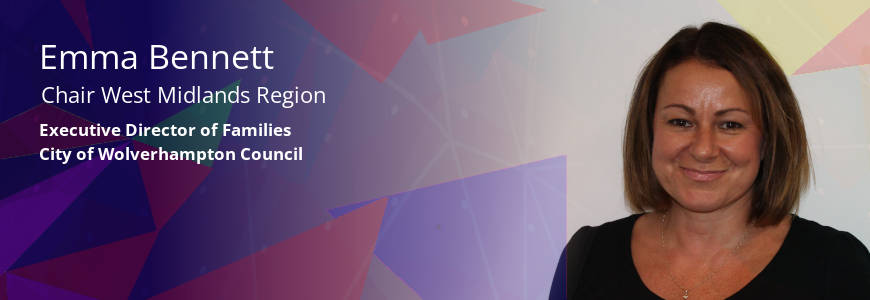
As I write, it is still a few days until the Chancellor delivers his deferred Autumn Statement, but by the time this is published we will all be analysing the impact his plans will have on us, our organisations, and our communities and it feels that whatever is announced the winter is going to be a tough one! So as Harold Wilson once said, a week is a long time in politics. However, seven days, if you are watching the balance on your electricity meter or working out how you can feed the kids until next pay day, isn’t just a long time, it might feel like a lifetime.
In Wolverhampton, like I imagine in many other places, we’re certainly seeing the cost-of-living crisis impacting a larger and sometimes different section of society. I’m finding myself walking around the supermarket amazed at sharp hikes in prices from one week to the next. So, if those of us experiencing this from a position of privilege are noticing, how must it feel for those on lower incomes? And by lower incomes, I don’t just mean those receiving benefits, not even minimum wage or living wage, but households who bring home the average wage. If we consider this from a place of demand on our services, which as we know has been confirmed by the DfE’s Characteristics of Children in Need figures and continues to increase year on year, we need to be thinking creatively about early help, building resilience for the winter and beyond and working within communities to ensure we can target support to those who need it most.
In the West Midlands we recently held our Team Excellence Awards, a chance to share our collective Outstanding achievements in a way that both celebrates success, and which acts as a catalyst to drive further improvement across the region. My nomination for Wolverhampton was our Co-production and Youth Engagement Team. Co-production, across the council has enabled us to ensure that whatever solutions we propose, or any tax-pound spent, is seated at the centre of the community and this has truly been embedded in our response to the cost of living crisis. By doing so we know that our Warm Spaces are located where they are needed and that by promoting community food shops instead of food banks we aim to reduce stigma, empower people and build resilience. Similarly, Stoke-on-Trent nominated their Children’s Advice and Duty Service as their Team of Excellence 2022. This is a service that is based around conversations, not referrals, and that seeks to offer the right support at the right time. An important reminder as to how critical it is to get this right for families, at a point of personal and national crisis.
A glance at the internet shows that across the West Midlands and up and down the country, there are plenty of initiatives being delivered, or are backed, by local authorities that aim to support those who are feeling this crisis the most. As nights grow longer, so lights are on more; and the weather gets colder, meaning heaters are burning longer. More than ever, we need to stand beside those who are living and breathing this crisis at the most acute level. Moreover, we need to do so at the earliest opportunity both to cushion the impact on individuals and to manage demand on our local partnerships.
Related Blog Articles
Unintended consequences

This is my first blog for ADCS and I would, firstly, like to thank colleagues for electing me as Chair of the Resources & Sustainability Policy Committee. When thinking about what to write unintended consequences came to mind.
I was faced with a particular challenge recently - which is far too common – the desperate need for a placement for a vulnerable child who needed a caring, loving environment which will meet his needs and enable him to flourish but none were readily available and there was no choice. But how is it that we are in a position where there are no effective placements to meet complex needs? The CMA’s social care market study final report suggested that we “sleepwalked” into the position we are now in. I don’t think that is wholly true. I think it is because of a range of well-intentioned policy changes at a local and national level which has resulted in unintended consequences and led us to a place where we are letting some of our children down.
At a local level we have reduced the number of residential children’s homes provided by local authorities over time, whilst simultaneously fewer voluntary sector providers are continuing to operate in this space. Similarly, at a national level, changes in provision of mental health and youth justice have reduced placement options and yet our children’s needs have not diminished placing greater burdens on social care placements.
I do, therefore, worry that Regional Care Co-operatives, as described in the Independent Review of Social Care, is another well-intentioned policy initiative with significant risks of a range of unintended consequences. Firstly, the review does not consider the whole system in which children live and operate. Looking at social care without effectively considering the importance of health and education and their critical involvement in placement decision making will lead to unintended consequences. Secondly, it remains unclear the robustness of the evidence-base for the proposed model – I don’t think the CMA report made the recommendation for this model nor did the What Works Centre for children’s social care in their descriptive study. Thirdly, the proposal makes accountability more diffuse if the sufficiency duty is separate from Corporate Parenting responsibilities; there are significant risks in my view. Finally, the level of organisational and structural reform required to achieve this new approach is immense and needs to be very carefully considered.
But I don’t think our present arrangements are fit for purpose. There are some things we can and should do collectively and better. We should learn from our existing regional initiatives as to what is working. We need to be able to share financial risks better. I welcome the investment by central and local government into the development of new children’s homes. I would urge that we now look at how we join up the development and commissioning of therapeutic provision for young people with complex needs or at risk of remand between central government and regions. We do need help on how we can effectively model and project numbers at a national, regional and local level which needs to be supported by academic insight.
Finally, we need supply side reforms … ADCS is clear that there should be no room for private profit in children’s social care, but we also need planning regulations which make the opening of a home less of a challenge. We need to address some of the regulatory challenges, and I welcome Yvette Stanley’s commitment to work with us on this. Further, a national focus on developing our residential workforce and Children’s Home Managers would be welcome.
I urge the need for national reflection before the recommendations of the care review, such as Regional Care Co-operatives, are implemented. It is vitally important we take the opportunity to help shape how they are developed to ensure we are clearer on their implications and of unintended consequences.
Related Blog Articles
NCASC 2022

Delegates met in person at this year’s NCAS Conference in Manchester for the first time in three years to hear from a wide range of speakers across children and adult services. It’s certainly a busy time in the world of children’s services and there was a packed agenda for delegates to engage with over the three days. Some of the conference highlights included sessions from the Children’s Commissioner, Dame Rachel De Souza, Amanda Pritchard, Chief Executive NHS England, and Amanda Spielman, HMCI of Ofsted.
The conference opened with speeches from ADCS President Steve Crocker, ADASS President Sarah McClinton and LGA Chairman Cllr James Jamieson. Steve used his speech to highlight some of the challenges we face such as rising child poverty, the disproportionate impact of the pandemic upon children and young people and the workforce sufficiency challenges local authorities are increasingly experiencing. Steve also highlighted two reports published by ADCS during the conference: Safeguarding Pressures Phase 8 interim report and a supplementary mental health thematic report.
Safeguarding Pressures Phase 8 adds to an evidence base built up over 14 years but with a specific focus on the past two years. This has been a time of significant uncertainty and change in the context in which children are living, and in which services are operating and the report’s findings reflect this. The number of initial contacts has increased by 10% over the past two years with an estimated 2.77 million received at the ‘front door’ to children’s services in 2021/22. Early help assessments have also increased over this period by 16% as well as the number of Section 47 enquiries going up by 7%. When compared to 2007/08, when Safeguarding Pressures was first published, the figures make for even starker reading: the number of children in care has risen by 35%, there has been a 184% increase in the number of Section 47 enquiries and there are 21% more referrals to children’s social care received per year. To meet this demand, ADCS estimates children’s social care requires £778m just to stand still. Whilst these findings reflect some of the effects of the pandemic on children’s services, it will be much longer before we can capture its full impact. The full report will be published next month.
During the conference a children’s mental health thematic report was also published by ADCS on Wednesday 2 November using data gathered in the ADCS Safeguarding Pressures Phase 8 research. The report adds to the growing body of evidence highlighting a children’s mental health system in need of urgent attention, investment and change. The report’s findings outline some of the real pressures on the children’s mental health system, with a higher proportion of children’s social care assessments now taking place where children’s mental health is a factor. Almost half of local authorities reported that there was ‘never’ or ‘rarely’ enough CAMHS provision in the right places to effectively support children, rising to almost 80% for the most intensive, in-patient support. Over the years much focus has been placed on improving mental health support for children and young people, which is welcome, yet it is clear this agenda requires more attention from central government, mental health commissioners and providers working together at a national level, with sufficient long-term investment, for the benefit of children.
By the time Friday afternoon came around, delegates were no doubt feeling inspired (and perhaps a little tired!) and ready to take new ideas back to their local areas with plenty to digest. Speeches and presentations from the event will be posted onto the conference website and shared via the ADCS bulletin when available. The full transcript of Steve’s speech is on the ADCS website.
There was lots of Twitter activity over the last three days. Search #NCASC22 or see @ADCStweets for a summary of events.
Related Blog Articles
A system based on children's needs

In preparation for writing this blog I looked back to my last one in July which was at a time of turmoil in national politics following the resignation of the Prime Minister and a Conservative Party leadership contest starting to take shape. We were unclear on what that meant for the major national policy positions on SEND, social care, and education but hoped that the opportunity they give would not be lost. Fast forward a few months and…….
Some of the immediate pressures have become more acute particularly workforce, care sufficiency, and finances. I won’t focus on these as the daily challenges were articulated very clearly in Stuart Carlton’s excellent recent blog. At present a lot can change in the days between writing a blog and it being published so please bear with me if my crystal ball hasn’t spotted anything.
I hope that the new PM thinks very carefully about the consequences of their decisions on the children and families that we work with. We’ve had too many years of conflicting national policy across many departments that have led us to the current position of rising child poverty, cost of living crisis, under resourced services, and an exhausted and insufficient workforce. In social care we deal with the societal consequences of policy failure across multiple areas, and we cannot afford the human cost of Austerity Mk2.
The three major reform programmes: SEND green paper, schools white paper, and the review of children’s social care all have their shortcomings but there is more than enough there to give the foundations for a better, more joined up, future. To achieve this we need other government departments and our partners, particularly in health, to be alongside us shaping and importantly resourcing future plans. Children’s mental health is the most obvious example but there are others where we need key partners to prioritise and work with us.
This is particularly important for our young people with the most complex levels of need. At present we have services that we try to shoehorn young people into. Often the service young people end up in depends on their route into the system, rather than their individual needs. There is a significant crossover in needs of young people accessing services across mental health, welfare secure, youth custody, and those for whom registered children’s social care provision does not exist. We cannot continue to bury our heads in the sand and think that better commissioning by a local authority, or even a regional collaborative, will sort this.
It is clear that if we were designing a system from scratch we wouldn’t start from here. So, is there the will nationally to invest time and resource in designing a system based on children’s actual needs that isn’t siloed with conflicting regulation and legislation? It is difficult and there is a real risk it stays in the ‘too hard to do’ box, but I do think there is a genuine appetite for change if we can think more holistically, at both national and local level, breaking down the silos that exist.
We also need some stability and a sound foundation to enable sustainable change. The current immediate pressures must be addressed nationally to give us the space to build the better future that we aspire to
Related Blog Articles
A busy time
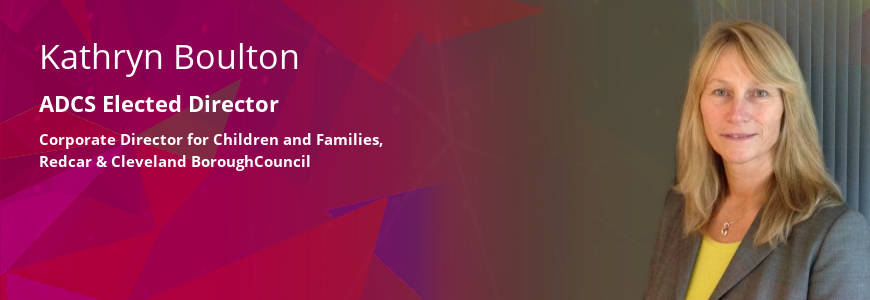
Autumn is always a busy time for local authorities. Budget setting season is in full swing and each year the task of balancing budgets gets tricker to do with more children and families coming to our attention presenting more complex needs. Now inflationary pressures and the cost of living crisis are placing further pressure on council finances, and also on our staff and the children and families we support. This will inevitably mean more people will be pushed into debt and poverty and forced to make difficult decisions about heating or eating, yet worryingly England remains the only country in the UK without a child poverty reduction strategy. This must be a priority for the new Prime Minister (whoever that may be when you read this!) and their government.
National government has provided some support to households with the rising cost of living which is welcome. To support residents through this difficult time, local authorities are opening up ‘warm banks’, public places people can go to keep warm if they need. We also know food banks and baby banks up and down the country continue to do incredible work to support people who cannot afford the basics. It’s helpful these places exist to support those who need it but it’s a poor reflection on our society that they need to exist at all.
The cost of living crisis and pressure on council finances will be amongst the ‘hot topics’ for discussion at the National Children and Adult Services conference (NCASC) 2022 in Manchester taking place in less than two weeks’ time. This event is one of the most important events in the children and adult services calendar where lead members, councillors, directors of children and adult services and others come together to discuss the pressing challenges we face and to share learning. I always come away feeling like I’ve gained a lot from the sessions, listening to experts in their field and networking with colleagues from across the country.
There is always a lot going on during the NCAS conference and this year will be no different with ADCS publishing the executive summary of its latest iteration of Safeguarding Pressures research before the full report lands later in the year. It’s always a hugely valued mine of information and something I often find myself coming back to. Safeguarding Pressures 8 will be particularly important as it covers the entire period of the pandemic from 1 April 2020 – 31 March 2022. We are all still seeing the effects of the past two years on our children and families. Having an up-to-date evidence base is of huge importance to the sector, especially when making our point to national government about the pressures we are all facing. Like the rest of you, I’ll be eagerly awaiting its publication. Hope to see some of you in Manchester in a couple of weeks.
Related Blog Articles
We can't walk away at night
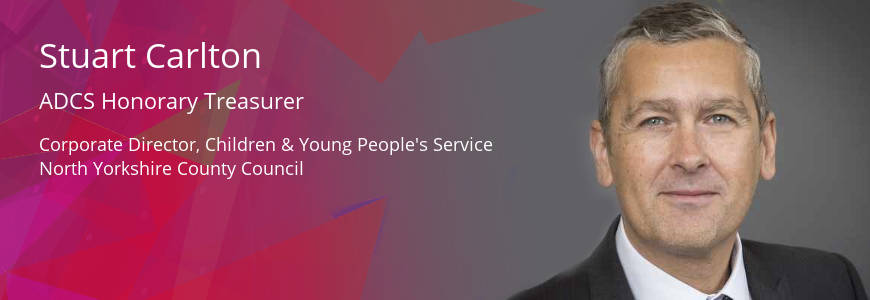
I am sat writing this blog recovering from a bout of covid, a sharp reminder that it hasn’t gone and the impact it can have. It’s been miserable and has allowed me to dwell, perhaps too much, on the number of difficulties we all face as we head into winter:
Demand – due to a combination of factors (we all know them) demand has risen and continues to rise. For example, referrals to the front door are up 20% from a year ago. Other areas of demand continue to rise – early help, SEND, school support, exclusions, CAMHS – it is on all fronts.
Recruitment – Recruitment issues have intensified across the entire workforce. Rising demand means we require more staff and the market is just not there to meet demand. This isn’t just specialist roles such as social workers and educational psychologists. The care market is suffering as much as our Adult Services colleagues are finding. That means not only we cannot recruit enough care staff but neither can many of the independent providers across both social care and SEND.
Finance – this all makes an assumption that Council budgets can increase to cope with the demand, complexity and the high cost of placements. Again, I don’t have enough space here to evidence a decade of cuts, inflation and lack of new funding, but we know that the overall financial positions of councils is deteriorating.
Complexity – these pressures are resulting in us being unable to find appropriate places for children with multiple complexities to live. There are not enough secure placements, tier 4 mental health beds and complex SEND/Social Care placements. And we cannot walk away. This means we are managing risk and complexity locally with all these factors playing out as we try to do our best for our children.
3 national reviews – Although we welcome the major pieces of reform ( The Independent Review of Children’s Social Care, Schools White and SEND & AP Green Paper), they just aren’t coming quick enough. I know we need to get them right and need to take the time to ensure they are reaching the right solutions, but, for example, if we look at SEND, costs are still spiralling away and the number of children with EHCPs continues to grow. This needs urgent attention, it isn’t going away, the pressures are just growing rapidly.
New Burdens – By this I mean new statutory requirements that are not funded. They continue to appear. Take the new attendance guidance and duties. We all agree that attendance at school is a priority, but if new tasks and duties are added, they need paying for. We have no reserves of recurrent money sat around waiting to be allocated. Take my own local authority, North Yorkshire, as an example where these new duties, at a minimum, will cost us about £1m.
And at the end of it all it falls to us as local authorities to make sure, sometimes in the most dire of circumstances, that children are cared for every night. We are facing a crisis and we need to treat it as such. We need to see some urgent conversations with the Department for Education, Department of Health and Social Care, NHS England and regulators about how we are to manage this during what is looking like a very difficult period. The dedication, resilience and creativity of my team and our collective workforce to manage all of this is just mind blowing, I am proud of them all, but it is no substitute for dealing with these difficult issues structurally and nationally.
Related Blog Articles
A problem shared...

Do you remember when one of Bill Clinton’s campaign slogans was ‘it’s the economy, stupid’? Or when Tony Blair’s top priority was ‘education, education, education’. Sometimes an issue seems to capture the essence of an era, wrapping up many elements into a single, pertinent theme. As Chair of the ADCS Workforce Development Policy Committee, I sometimes fear I’ll nod off to sleep murmuring ‘workforce, workforce, workforce’ and wake up still murmuring ‘it’s the workforce, stupid’.
I’m aware of the old aphorism ‘to a hammer, everything looks like a nail’; we shape our frame of reference around our own interests and as a result we tend to see what we go looking for. Of course, I see workforce challenges everywhere! That’s my remit and my focus as a policy committee chair. However, it’s been illuminating to me this week to be in several discussions with colleagues and partner organisations for whom workforce is also the dominant problem.
Are DCSs in many local authorities having difficulties recruiting and retaining child and family social workers? Yes, we are. Those of us with in-house residential care provision might well add residential care workers to the list of shortage occupations. In our directorates, albeit in another division, do you have enough education psychologists to always be able to meet expected timescales on your education health and care needs assessments? I thought not.
Our work to support children with additional needs and disabilities reveals shortages of staff in NHS organisations, to take occupational therapists and speech and language therapists as just two examples. As you plan for the upcoming SEND Area Inspection, do you have enough Designated Medical Officer and Designated Clinical Officer capacity? Look closely at our ‘Starting Well’ / ‘Best Start’ work and many of us will uncover gaps in midwifery and health visiting as well as among early years practitioners. In collaborative work with two separate health partners in the past few days, we have centred our attention on ways we can work together to tackle key strategic workforce shortages (not limited to children’s services, I have to say).
One crucial strategic objective is to see and understand the children’s workforce in its broad sense as a shared concern, and to look for ways to work together to recruit, improve professional development, and strengthen positive organisational cultures in our localities. Have we got vacancies in similar positions at the same time? Can we advertise together for both, demonstrating our collaboration and shared values and then take a combined panel approach to interviewing and appointing, which will save us time and achieve partner buy-in to key roles? In our local authority areas, what’s the shared USP that makes it a great place to work? It’ll be a selling point to people looking for jobs in our police forces, hospitals, and schools too. In some places it’ll be the busy, well-connected, urban centres that make living there interesting and commuting there straightforward. In other places, we’ll be able to fulfil the dreams of those who have always wanted to end their working day by the sea, or up in the hills enjoying the fresh air and view. Our organisations are increasingly incorporating ‘integrated’ teams with staff from more than one organisation working side by side, often on different terms and conditions. Can we blur the organisational boundaries in ways that will be helpful? On incentives: are there memberships and discounts we make available to our own staff that we could also offer to children’s workforce colleagues in partner organisations? Can we appoint more frequently to joint roles? Can we design new roles as joint roles from the get go?
I’ve asked many more questions than I’ve answered in this blog, but the hope is to stimulate and encourage the sharing of ideas that will help us tackle our workforce challenges together with our key partners. I expect it will take a long time for our problem shared to become a problem halved, but it’s worth a try.
Related Blog Articles
The economy, opportunity and learning how to fish
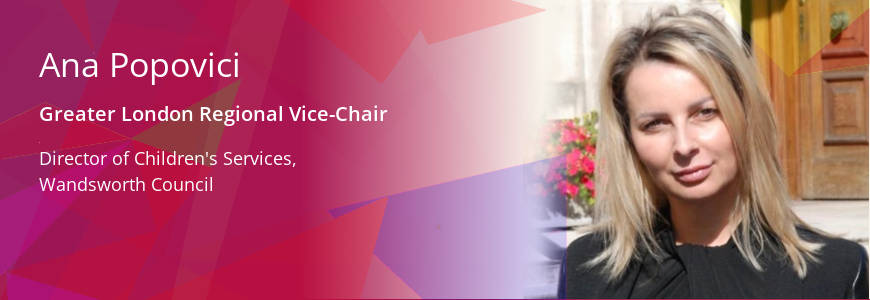
It truly is a privilege to be a public servant, and together with colleagues and partners, be at the heartbeat of our society at such a critical time. With this comes a great moral responsibility to act as the catalyst for change and action in the eye of the perfect economical storm. We need to unapologetically invest in our children and young people so they can be part of the solution as we are reimagining our future.
It’s clear that investment in skills and opportunity is needed for all young people. This is particularly important for our care experienced young people, for whom we are corporate parents, most of whom have experienced a mass of challenges and setback as they have navigated complex and stubborn systems to get to adulthood.
Let’s first acknowledge that opportunity and economic status are inextricably linked. This is by no means a new principle. Reducing economic hardship by supporting self-sufficiency has history. If you need the evidence just look at the writings of 12th-century philosopher Maimonides who established ‘eight degrees in the duty of charity’. The eighth-degree states ‘the most meritorious of all, is to anticipate charity by preventing poverty, namely, to assist the reduced brother, either by a considerable gift or loan of money, or by teaching him a trade, or by putting him in the way of business, so that he may earn an honest livelihood and not be forced to the dreadful alternative of holding up his hand for charity’. Or you could say ‘Give a Man a Fish, and You Feed Him for a Day. Teach a Man To Fish, and You Feed Him for a Lifetime’. And yet how often do we provide the fishing net?
As the most significant contemporary conversation, the economic crisis, is placing an onus and a heightened accountability on us all; it is our job to provide that fish to eat. And we also need to ensure, at a personal and professional level, that we are thinking together on how best to transition young people safely into adulthood to promote social mobility, to bridge the skills shortage as emerging markets of technology and green jobs come to the fore.
And progress is being made with the lowest levels of youth unemployment since records began in 1992 at less than 400,000 in May-July 2022, yet more needs to be done.
The fastest growing job markets are in software design, healthcare, science, and engineering with climate change related roles leading the way. Wind turbine service technicians, solar photovoltaic installers, statisticians, nursing practitioners and information security analysts rank as the topmost in demand roles for the next decade.
The ability of young people to be part of the solution is central to reimagining the jobs market. We need to help them fish!
The importance of getting it right is reinforced by the growing levels of child poverty that we are seeing. The once and for all big shift is to thinking of children and young people as a social trend and a solution. With this must come behaviour and expectations that provide skills for the future alongside present help.
Happy weekend colleagues and ‘Shana Tovah’ to all colleagues who have celebrated the Jewish new year this week.
Related Blog Articles
New term, new ministers, same priorities

I had the good fortune to go to the cricket last week at the Oval to watch England’s run chase (stay with me…) where I heard the sounds of a lone trumpeter sounding out Bon Jovi’s ‘Living on Prayer’. Not being a fan of the poodle haired LA soft rockers I turned to my friend for guidance who assured me that the second line is ‘oh yeah, we’re half way there…’ and indeed we were in terms of the run chase and, as I subsequently reflected, we are in terms of my presidency of ADCS. So I thought that I would use this blog to give a bit of a halfway update on this year’s activity.
Firstly, it’s been a bit of a tumultuous year for all sorts of reasons that I don’t need to spell out but suffice to say that I have now met with the fourth Secretary of State for Education to have graced the role during my tenure. In fairness, they’d be quite within their rights to treat me with caution given this attrition rate – I feel like I must have walked under several ladders - but all have been welcoming and keen to work with ADCS. It is a crucial part of the role to explain to ministers exactly what we do and how we can help delivery of policy on the ground and if we can help shape it.
In particular, it has been extremely positive to see that government has again indicated its intentions to follow through on the Independent Review of Children’s Social Care. Over the summer a good number of us have engaged with officials on some of the ideas contained within the review and the National Implementation Board now looks likely to step up in the autumn to look at how to implement the proposals in the Review. Obviously, I’ll be doing everything to bring our members’ expertise to bear any new proposals as they emerge; our USP is our organisational and system leadership expertise and we will want to help set things up so that they are effective for future delivery.
In other areas of policy, the proposed Schools Bill takes us only so far with regards to the proposals in the White Paper. There is much here that is still to be worked out and our focus remains on the things that we particularly welcomed in our initial responses to the Bill; specifically, the requirements for co-operation by all actors within the education system, transparency and accountability, the pursuit of high educational standards, and the ability for local authorities to set up multi-academy trusts. All still remain on the table, so far as I am aware, but all are very much part of the next phase that we hope to see with new political leadership in place. Similarly, you haven’t missed a lot with regards to the SEND and AP Green Paper as officials have been gathering parental and other consultees’ views over the summer with a view to moving things on in the autumn. Again, ADCS will be bringing its influence to bear both through myself and John Pearce, our Vice President, but also through Heather Sandy, the new chair of the Educational Achievement policy committee, replacing the recently retired Gail Tolley, and Nigel Minns who has taken over from Edwina Grant (who has recently retired as a DCS) as the chair of HCAN.
So, those three policy areas feel like they are now set up and waiting on the start line for the new government, but there are areas of continuing pressure that we have been bringing to government’s attention on a regular basis and which are likely to form the main challenges for me in my next six months. Specifically, they are the cost of living crisis and its impact on families and our services, the workforce crisis (and I think we can really call it that now), the placement crisis (ditto) exacerbated by the asylum crisis, and the crisis in children’s mental health and the responses to this. I realise that I have written the word ‘crisis’ several times here but without wishing to catastrophise, unless we can find, alongside central government, some quick tactical solutions to these issues they pose a significant threat to the potential for the care review in particular to deliver the strategic reform that we all want. ADCS has made positive and constructive submissions to government on all of these issues, based on your views and feedback and we hope that we will see at least some of these ideas taken forward.
Finally, in my mid-term report (I won’t ask for marks as I know you’re hard to please…), one of my objectives was to help stabilise the ADCS team after the sad death last year of the esteemed Sarah Caton. I am delighted to be able to report that after a rigorous interview process the ADCS Board have unanimously appointed Esther Kavanagh Dixon as our new Chief Officer. Esther has done a brilliant job so far on an interim basis and will carry on the work of ADCS for many years to come hopefully, long after these ‘here today gone tomorrow’ presidents have departed!
Related Blog Articles
Attending to attendance

This week has been my first as Chair of the Educational Achievement Policy Committee and I have been reflecting on the busy education landscape ahead as children and young people start the new school term. In the past six months alone we have had a white paper and green paper land, all whilst education settings are rightly focussing on recovery. With the schools white paper we are now seeing some of the reforms begin to be implemented. There is much to digest in the paper with significant implications for local authorities, but I wanted to use this blog to focus on attendance.
The schools white paper sets a clear ambition for local education systems to work together to improve children’s attendance at school and to work in a more integrated way to support those children who are missing more than half of their school sessions. We know that attendance is key to ensuring children meet their potential – even the best teachers cannot deliver effective progress if a child is persistently absent. Statistics show that persistent absentees are less likely to achieve their full potential and can affect GCSE grades as well as a child’s prospects. Beyond persistent absenteeism, an acceptable level of attendance is hard to define. Ninety percent, for example, may appear good but, in reality, that child will miss half a school day each week - nearly 4 school weeks and 80 lessons!
In addition to the impact on attainment, schools are also the eyes and ears of the safeguarding system and, despite not formally included as a statutory partner in new multi-agency safeguarding arrangements, they are, for most families, the vital universal front line for safeguarding. When children are not regularly attending, they become less visible to professionals and the risk of exposure to hidden harm is escalated. Children who are persistently absent and not accessing education are at significant risk of being victims of harm, exploitation, or radicalisation, and becoming NEET (not in education, employment, or training) later in life.
These two factors – safeguarding and maximising potential - combine to cement the key role local authorities have for the oversight of persistent absence. Our partnership with schools, and other essential services, such as speech and language therapy, mental health providers and community support groups enables wrap around support to be offered to children and families to enable them to access learning well, but I also believe we must consider more forensically the causes of non-attendance to ensure we deliver the right response and support. This is especially important as we are seeing absences rise following the pandemic and the cost of living crisis is already falling heaviest on our most vulnerable; we know children eligible for Free School Meals (FSM) are more likely to be persistently absent than those not in receipt of FSM.
By recognising the need for frontline workers to come together with education colleagues to raise the profile of education, education support and attendance as part of their core work with children and families, we must adopt an ‘attendance is everyone’s business’ mindset. Children’s Services teams must form good relationships with education colleagues and have opportunities to network and collaborate. Social workers must ensure attendance and the root causes behind low attendance are always on the agenda, not just in education meetings, and all professionals should be trained and supported to ask key questions which further their knowledge and understanding of the educational outcomes. In doing this we will support not only academic gains but also maximise the protective factors our education system provides.
And finally, to all those ADCS members who are not yet signed-up to one of the six national policy committees, I encourage you to get involved. They offer a great opportunity for learning as well as a chance to influence the national policy agenda, but then I am slightly biased.
Related Blog Articles
Still hungry to make a difference?
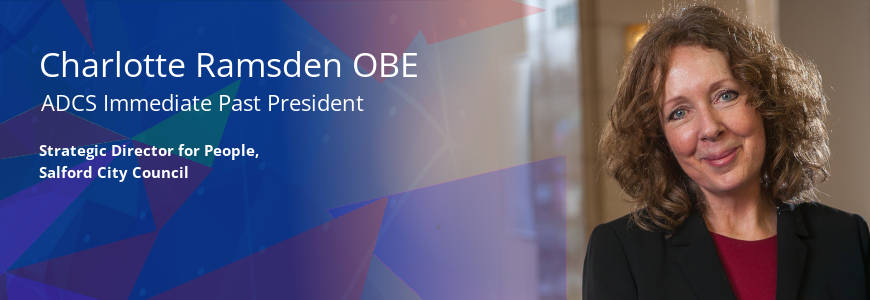
It’s that time of year when most of us have had a holiday and we are gradually reconvening our staff and regrouping for the great surge of work that September normally brings. For the first time in my working life, I took three weeks off this year and it was blissful. No sleep deprivation, no Teams meetings and no emails. Of course the daily work carried on, but skilled staff who can deputise and manage in our absence are to be hugely valued. In leadership terms I have read that rest and recuperation also serves a crucial role in helping us “get our hunger back”. I confess it didn’t feel that way on my first day back in work which was more “rabbit in the headlights” and missing an afternoon siesta, however, having overcome the initial shock I can feel that inner urge to make a difference has been re-fuelled.
This autumn we are going to need all the individual and collective strength and grit we can muster to tackle the raft of challenges that face our children and young people, their families, our services, our partner organisations and of course us. While we wait for the political machinations to be finalised and a new government is formed, with varied new and old plans and an uncertain future in terms of resourcing commitments, we have the same job to do. We will continue to deliver the best outcomes for, and with, our children and young people with the collective resources we have and keep them as safe as possible in our complex and challenging places.
The impact of Covid is still emerging, with complexity and distress evident in so many new cases, plus the additional cost of living crisis looming large not just for the families we serve but for our staff too. Despite all our intervention and provision of evidence, we are no further forward in terms of a commitment to the long-term resourcing plan for crucial services that we need. Despite being clear why suitable placements are simply not available for so many of our children, pressure is being piled on us to find solutions when we need a national response to unblock issues and enable new opportunities.
The critical needs of our children and their families need a skilled and stable workforce who know their children and build trusting relationships. Cost of living pressures and permanent staff shortages are impacting staff wellbeing and add risk to the stability of our relationships with the children and young people who need our support and care.
We could be overwhelmed by the magnitude of these challenges but thanks to the collective strength and wisdom of the ADCS, our hunger to make a difference is regularly refreshed and our collective wisdom and experience will continue to mean we work together on solutions at a local, regional, and national level. We can’t work miracles and we don’t have a magic wand, but we achieve some amazing impact in the work that we do and personally I will use my renewed hunger to make a difference where I can. I hope a summer break has renewed your hunger too and as always, we are stronger together and our commitment is strong. Welcome back to an autumn where we will continue to work together to champion the needs of our children and young people, and also our workforce who are so essential to their outcomes.
Related Blog Articles
The Importance of Being Associated
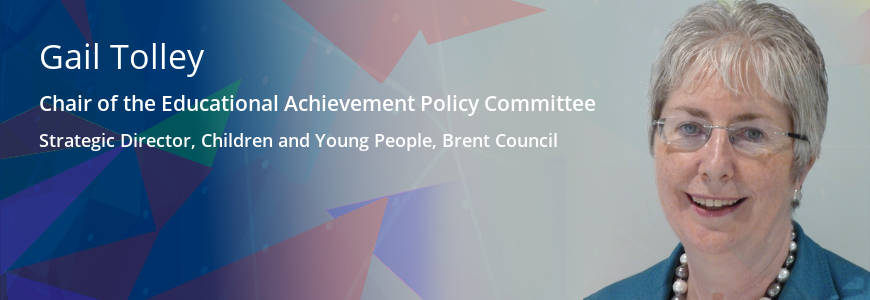
In my final week of a 42 year very full-time (100% attendance) career, I am being given a number of opportunities for reflection including this blog. One of my reflections, given the number of cards I have received with owls on them, is that it is possible to go from bright young thing to wise old bird in what feels now like no time at all.
Focusing on my over thirteen consecutive years as a Director of Children’s Services (DCS), the importance of the ‘A’ in ADCS looms large. I joined the ADCS on its inception when I was Assistant Director in Camden 2004-2009 and on moving to Milton Keynes as DCS when it was one of the four local authorities in the country then judged ‘inadequate’, it was the only external meeting I hung onto for the first 18 months given the support the South East regional group provided. On moving to Brent, which was also then in a precarious situation, I stepped back for a while from chairing a regional group but again regularly attended regional Association of London DCS (ALDCS) meetings. The DCS role is of itself hugely rewarding but continuously challenging and it is from experienced colleagues and the outstanding staff at ADCS that much support comes.
With an active approach to succession planning and developing potential DCS’ my substantive successors in both local authorities as DCS have been one of my Assistant Directors, both of whom have had the importance of ADCS emphasised to them as have all the aspiring and newly appointed DCS’ I have mentored.
Since early 2019 I have had the privilege of chairing the ADCS Educational Achievement Policy Committee, engaging with a lively and knowledgeable set of regional representatives and members. This has also meant that I have continued to be part of ADCS Council of Reference where regional and policy committee chairs contribute diligently with the presidential team to represent the views of this member association frequently and at the highest levels. I know even from the meetings I have been in over the summer that the contribution of ADCS is again well regarded in the DfE. Our involvement in the implementation planning for the Education White Paper and Schools Bill and the response to the SEND and AP Green Paper Consultation with our emphasis on inclusive schools, is well embedded and builds on the respect for our role which was evidenced and strengthened during the pandemic.
There is no doubt that as I move on to a more part-time portfolio of activities from 1st September, I will miss all aspects of the full-time, full on DCS role. An unexpected benefit however is that for the remainder of this membership year to March 2023 I am a fully paid up Associate Member of ADCS.
Related Blog Articles
Cost of living crisis is biting families and staff

The cost of living crisis is starting to bite and will have a huge impact on household incomes. With the Bank of England forecasting inflation to peak at 13.3% in October and rising energy, food and fuel prices, we are all in for a tough winter. Energy bills are expected to go up from £2000 to £3500 and we are working hard to ameliorate the impact on our families, and staff, in Calderdale.
Public sector pay continues to fall behind the private sector. Local government staff are not alone in facing the current financial pressures, however, it was difficult to hear from staff in my local authority about how they are struggling to maintain their cars, pay for petrol and parking up front, some are even taking up second jobs to make ends meet. These are the same dedicated staff who are still transforming, delivering efficiencies and rising magnificently to the challenge of supporting local communities during a global pandemic. Face to face work continued, my staff sourced their own PPE when there was the national shortage. I fear the current pressure on household finances will mean more people fall into poverty.
Social work has a long history of tackling poverty and its impacts on children. Professor Brid Featherstone from the University of Huddersfield recently ran a session for us and focused on the fact that, next to the climate emergency, there is nothing more serious than poverty. There is clear evidence that it leads to higher levels of child abuse and neglect. Our frontline staff say that child poverty levels are at the worst they can remember, and they are supporting thousands of families desperately trying to keep their children warm, clothed and well-fed.
So, what can we do in response? In Calderdale, we have focused on money and wellbeing for our families. This gives our practitioners easy access to support and advice on money, debts and benefits advice; housing and rent; plus information about free school uniforms, childcare funding, healthy food, milk and vitamins for the families they are working with. Let’s not forget the powerful impact that individuals can play; in 2020 more than a million people signed the petition that Manchester United player Marcus Rashford set up for extending access to free food. This improved the lives of nearly 1.7 million children with support gained for the widespread provision of free school meals and activities over the Christmas, Easter and summer holidays for years to come.
And now, more so than ever before, is a time to show kindness, care and support, not only to the families that we work with and support but to our amazing staff. Particularly those on lower incomes many of who are anxious and worried about how they will cope over the challenging times ahead.
Related Blog Articles
Stop, pause, reflect and repeat

During the pandemic my team were fortunate enough to lead a DfE-funded project, to identify best practice in a pandemic, alongside the University of Birmingham and Anglia Ruskin University, plus five other local authorities and their children in care councils. We were trying to make sense of how to do social work in conditions none of us had ever faced, and hopefully will never face again. This was an incredible piece of work; but it is not always easy to accurately evaluate everything you are experiencing when you are in the middle of an incident.
The health crisis, caused by the virus, may not yet be over but most of us have moved on in our behaviour and thinking, and life and social work practice are returning to a new normal. So, now is a good time to stop, pause and reflect, and check out the narratives we created to describe our experience. Indeed, last week Ofsted published its reflection on the impact and recovery from the pandemic on our systems, children and their families. In the East of England we began our annual self-evaluation of children’s services; a really important tool to help us re-focus on regional priorities and, by coincidence, we held our own stop, pause and reflect moment in Essex – Taking the heat out of the system.
I just want to share two things from the last of these.
Like most of you, we experienced an increase in the number of children entering the care system. We all know the impact the lockdowns had on families, and especially teenage children who were stuck and experiencing adverse impacts on their mental wellbeing. Our narrative was that this had created lots of additional complexity in our work and had caused the care system to ‘run hot’, with a significant increase in the care population.
We found that our story was only partly accurate: we did have more teenagers in the system, and many had more complex needs, but the increase in the teenage group was largely due to an increase in separated migrant children arriving from war-torn regions of the world.
A really valuable conversation followed about what had changed for children, and how we and our partners were holding worries, meeting need, and managing risk in the family home. So this event really helped us - to refocus our thinking from the ‘problem’, to an appreciation of the quality of practice being delivered by social workers working with children on the edge of care, in what have been testing circumstances.
The other thing I wanted to mention from the day is a reflection that we have a lot of really important policy developments to absorb and adjust to over the next 18 months: the Schools White Paper; SEND and AP Green Paper; the Care Review; new domestic abuse legislation; recommendations from IICSA and the National Panel, to mention just a few.
We know this will take a considerable amount of leadership, staff time and energy to manage effectively, while maintaining the quality of practice. Finally, we will need to remember to take time to stop, pause, reflect and keep conversations alive on taking the heat out of our system.
Related Blog Articles
Bringing the Future Forward – Finding the next generation of...

There is no question that the Director of Children’s Services (DCS) role is demanding and ever changing - with an increased focus on leadership of place, complex systems and operating in uncertainty. It operates under intense scrutiny and regulation, the accountabilities and responsibilities held by a DCS are not ones shouldered lightly.
So where do we find our next generation, why would someone want to become a DCS and what does a good DCS look like?
A good DCS must be a passionate advocate for children, they must be able to develop and sustain relationships at all levels, they must be agile systems thinkers who are comfortable operating with ambiguity and negotiating an intricate network of partnerships which must be nurtured. DCS’ operate in an acutely political environment so they must have political nous, probably the hardest thing to teach. But beyond some of these key skills how else would you spot a good potential DCS?
It is probably true that since the role came into being there has been a shift towards those with children’s social work or social care experience, however, if you look around the country there are some exceptional DCS’ from a range of backgrounds be they teaching, adult services, education professionals, or other fields. You could also be forgiven for thinking, given the current make-up of the sector, that a DCS can be male or female but is probably going to be white - this must change. Whilst we have seen a small number of individuals in DCS roles over the years those from black* and Asian backgrounds remain significantly underrepresented and this is not due to lack of talent. However, people with both the talent and the support, preparation, and readiness to be a DCS will not just magically appear, we need to build the conditions in which they can emerge and this includes looking throughout the leadership pathway and creating opportunities to spot those who may not yet aspire to be the DCS of the future but should. If we want to increase diversity, we need to seek difference and act differently with succession planning that actively seeks those from a range of backgrounds and develops strategies to create new leadership journeys and to nurture and develop visibly different spaces.
And to the big question “why would I want to be a DCS”? As someone who has only recently stepped away from the role to focus on developing the leaders of the future, I firmly believe that there is no greater privilege than being a DCS. It is a role that brings challenges, opportunities and no one day is like another - the role will stretch you and hopefully fulfill you. Our children deserve people who believe in them and are determined to make a difference. If you have those qualities and don’t yet aspire to be a DCS maybe you should.
*Black as used in a broad political and inclusive sense
Related Blog Articles
The complexity and the cost

Three weeks on from our ADCS conference in Manchester and I am still feeling a sense of positivity from the experience of the week. Amongst the not so insignificant distraction taking place in Downing Street, the conference presented a plethora of thoughts, insights and quite frankly brilliance from across our sector. On the most basic level it reflected not just the breadth but the complexity of the role of the Director of Childrens Services. On many occasions it was noted that we are in what feels like the most complex, demanding, and challenging of times for children’s services. Not just because of the three major reviews in progress, but the emerging and real challenges for our children coming out of the pandemic, the cost of living crisis, workforce crisis, placement crisis and continued pressure on budgets. What also shone out of the conference was the support across the Association for each other - the kindness, the recognition of the pressure as well as the joy of our role, and the support across the sector for each of us to take on the challenge of today.
It feels like there is a real sense of urgency now around the cost of living crisis that is upon us. Both for the families with whom we work and for many of our staff. Over the years we’ve become adept at developing or supporting the development of resources and different strategies to support those families for whom money is a real stretch and indeed a real pressure. We know from a recent project lead by Professor Paul Bywaters and Dr Guy Skinner that poverty and inequality are key drivers of harm to children. One of the recommendations from the project, alongside the recommendation for a national ‘levelling up’ policy that cuts family poverty, is that we as a system need to engage more effectively with children and family’s basic material needs. How do we make poverty more visible in our work and is it possible for us to provide more provision of timely financial and practical support? This feels like the right thing to do and focus on but a challenge not just for children’s services but for the wider system. Resources are tight; we’re already making tough decisions about where to spend the ever-dwindling pot of money we have to run our services. However, the focus on poverty and its impact on our children and young people remains paramount.
And then for our staff across the children’s workforce who too are sometimes having to make the choice between heating and eating or facing the challenge of filling their car with petrol in order to make the home visits, run the buildings, and other work we need them to do. I am sure we are all wrestling with how best to support our workforce to continue to work in children’s services throughout this crisis.
Amongst all of this, as former ADCS President Matt Dunkley reminded us in his blog – we have the best job in the world and it remains our challenge to continue to lead for children in this complex space.
Related Blog Articles
Change, Challenges, and Chances

Following the recent ADCS conference I thought I’d use this blog to reflect on the strength of ADCS as an organisation and how we can continue to develop and support system improvement. Firstly, it was fantastic to be back in Manchester in person for Conference for the first time since 2019 with a capacity attendance and a real buzz around the whole event. Conference was also set against a backdrop of multiple national policy developments and during a week in which the events in Westminster led to some interesting last-minute discussions about the programme.
We are undoubtedly in a period of very significant national policy development, the like of which we haven’t seen since Every Child Matters (remember that?). Proposed change is overlaid on a very unstable environment created by the pandemic, cost of living crisis, and further financial challenges following years of austerity. In this context, how do we as system leaders establish an environment at a local level that enables our children to flourish? There are some very promising signs with a positive trajectory in Ofsted ILACS outcomes, the growing strength of Regional Improvement and Innovation Alliances, and the increasing recognition of the LA’s key role in the education system.
The highlight of Conference for me was the wave of new DCSs, some of whom presented with a passion and substance across a range of subjects which was inspiring to hear. Due to the gap since the last in-person event, there were also a considerable number of colleagues from the wider ADCS membership who were attending for the first time. Listening to the discussions it was clear that, as an association, we are very lucky to have a huge wealth of ideas, expertise, and energy that can be harnessed to make a difference for our children and young people.
We also heard about the extreme challenges DCSs, and their teams, can face during difficult times and the importance of peer support in what can sometimes be a very lonely role. As an association we need to think about learning from experiences, both good and bad, and how we can wrap support around those authorities who may find themselves at the centre of a storm. There is a strong development offer in place for our aspiring and new DCSs but there will be some things even the best programme cannot prepare you for. That’s when the connections and networks we establish through ADCS can be so significant.
At such a critical time for the future of children’s services I would encourage all ADCS members to get actively involved in regional and national networks. I know I have personally benefited hugely from involvement in ADCS and as sector leaders we have a very important voice in shaping the future.
Related Blog Articles
Hidden Workforce

Like every Director of Children’s Services, I expect, I have been immersed in the run of policy papers emerging the from the Department for Education (DfE) over the past few months. This may be the most active phase of DfE policy development since the early 2000s and the policy and legislation that emerges as a result will shape our work - and the lives of the children and families we serve - for a generation to come. I’ve been trying to join the dots of all the different elements together in my head, and this week I’ve homed in on the Independent Review of Children’s Social Care, with a particular focus on workforce.
There is a dedicated workforce chapter in the review. Here the headlines about the proposals for a £253 million investment, including in an early career framework for social workers, a reduced reliance on agency social workers and tackling bureaucracy to enable social workers to prioritise direct work with children, young people and their families are all likely to be welcome, although there remain concerns about how the Expert Practitioner role might play out in practice. Under the heading ‘Developing the wider children’s social care workforce’ this chapter also outlines proposals for the professional development of family support workers (within the envisaged multi-disciplinary ‘family help’ teams), and residential care workers and children’s home managers. These are often neglected roles and the recognition of their importance and the need for investment in their professional development is long overdue.
Scattered through the pages of the review – well beyond the confines of chapter seven - there is a breadcrumb trail to a more hidden workforce and the wider development needs of everyone enlisted in this vision of support to children and families.
For example, the proposed multi-disciplinary teams of the family help workforce will comprise domestic abuse workers and mental health practitioners alongside family support workers. Those of us already working with the family safeguarding model will recognise the strengths of this way of working (and may wonder why substance misuse workers didn’t get a mention; they are essential to this vision too). Elsewhere the review reflects on the roles of youth workers, therapists, probation officers and a wider group of practitioners working with children such as teachers, early years practitioners, GPs and school nurses.
The review recognises that many of these professional disciplines (child protection paediatricians, police officers, health visitors) are ‘under strain’, but notes that partner organisations will need to support multi-disciplinary teams, for example by freeing up staff who can be seconded to join them. Where support for teenagers is concerned, there is reference to this broad workforce once again, wrapping themselves around a ‘child community safety plan’, from child mental health support to youth workers and even peer interventions. I am glad there is recognition that the youth work workforce has been profoundly affected by funding cuts and the need to rebuild this workforce is made clear.
In the vision of the review there is space for new roles and responsibilities. One example is the potential replacement of ‘a plethora of different professionals’ (including – controversially - IROs) in children’s lives. It’s likely that there would be a significant increase in the number of children and young people’s advocates if these proposals are followed through. I also spotted a passing reference to the role of a Designated Social Care Officer in a segment making an explicit link between this review and the SEND and AP green paper. I foresee a real shake up in the commissioning workforce if the Regional Care Cooperatives are taken forward. Anyone as long in the tooth as me will remember the Commissioning Support Programme. Certainly, professional development would be needed for this cadre of commissioners.
There’s plenty more I could write about the who, what, where and how of the workforce implications threaded through the review, but I’m out of space. What I would recommend though is that colleagues take another look at Figure 1 in the 2019 ADCS position paper Building a workforce that works for all children which really sets out in the round a comprehensive view of the children’s workforce. I don’t think there’s any part of that workforce that’s left untouched by these proposals if they’re carried forward. Time to take a good hard look at that diagram again!
Related Blog Articles
Where have all the workers gone?

Is it me, is it the South-East, but have all the workers disappeared? And when I ask where have all the workers gone, I am not just meaning social workers, but I will get on to those. Whether you are going out for a meal (waiter?), trying to get your extension done, or a school built (builder anyone?) or desperately trying to fill your social work vacancies, the workers seem to have…well, evaporated.
It does appear that the incredible cocktail of Brexit and Covid has created a special hangover none of us quite saw coming. Workforce statistics are showing that the number of over 50s who are ‘economically inactive’ is at its highest level. Large numbers of people are leaving their professions to retrain, and many others who now used to home working and a readdressing of the home/work balance are wanting to work much more flexibly. We are seeing newly qualified social workers (Gen Z & Millennials) with a very different attitude to working life. They want to work part-time, take career breaks to have life experiences and see their job not as ‘one-for-life’ but as part of a rich mosaic which will morph and change over time. They work to live not live to work and local authorities’ traditional ways of working and terms and conditions do not fit well with this ethos.
I can’t remember it ever feeling this difficult to attract permanent, experienced, qualified staff. A growing proportion of staff now choose to work as agency instead of working permanently for local government. It’s interesting talking to my team managers who have employed individual agency staff for over two years which is ironically the average tenure for qualified permanent staff in the front-line child protection posts. And to compound an already tenuous situation, the growth of ‘managed’ agency teams has seen the individual agency market dry up as agency workers opt to work for these teams instead, which often come at much higher costs and variable quality.
We know that being a social worker is highly stressful but it is also a brilliant, exciting, worthwhile, life changing profession. Yet it is often undervalued (clap for social workers?) and only gets highlighted when there is a perceived scandal. Up and down the country many local authorities struggle to recruit and retain enough experienced social workers and ADCS has long called for the Department for Education to launch a national campaign to promote the value of social work.
So what can be done? I am really looking forward to the upcoming ADCS Annual Conference to hear colleagues’ thoughts on how we face these pressures. I am sure we will hear more from Josh MacAlister around his thoughts on how to free up workers’ time and create a better career framework for social workers. Some of the solutions are long term - such as more public recognition for the role, more flexibility, the taking on of the agency market at a national level and greater pay. This, colleagues is the issue we must tackle to ensure there are the workers that our children and families deserve. See you at conference.
Related Blog Articles
At what point do you stop being an imposter?

I’ve always valued being part of ADCS and, as someone who sits on the Council of Reference, privileged to work with the most talented colleagues (too numerous to mention) to contribute to debate, discussion, and policy shaping that positively impacts on children’s lives.
Having just celebrated my 6th anniversary as Manchester’s Director of Children’s Services (DCS) (do I qualify as ‘experienced’?) and still able to vividly recall my first days, I stole a moment of reflection with Deborah Woodcock, DCS in Cheshire East… We asked ourselves ‘at what point do you stop being an imposter?’ This blog is somewhat coproduced as a result:
Well, where to start. I’m Deborah and I’m a new DCS…not new-new, but new-ish, if that’s what seven months is…long enough to know what I don’t know, but not to know it all…if indeed I ever will or should. Full disclosure…I’m a social worker, with leadership skills and experience; I’m super-enthusiastic to work in an integrated way, focused on impact and outcomes…but I can’t help asking myself…is this going to be enough? Will I be what is needed…and even, sometimes…will I get ‘found out’? So, some reflections on moving from the director of operations role in a local authority I’d professionally grown up in, to the DCS role in a neighbouring authority.
Firstly, wow, what a privilege to work with a team dedicated to improving outcomes for children: with heads passionate about inclusion; college principals collaborating to strengthen the skills offer; participation workers ensuring our cared for children are heard - colleagues supporting families with care, compassion, and wisdom, making a difference every day.
Secondly, the DCS role can seem a lonely place, shouldering phenomenal responsibilities, in a complex financial, political and policy context. But look around…there’s my CEX, lead member, regional peers, the wonderful upon programme (a must for any new DCS), my DCS mentor - a lifeline in the early days and now a fabulous support and inspiration, along with the wider ADCS network. I’m not on my own, I might not know the answer but I’m beginning to know a friend who does!
And thirdly, really getting to know teams by spending time with them, visiting schools, attending children’s reviews, talking about what works and what doesn’t has helped me see where, strategically, I can make a difference…which, let’s face it, is what we all want, isn’t it?
After talking with Deborah and in a moment spent reflecting on the Care Review, we see ever-present leadership and workforce challenges locally and across our region - where average turnover for social workers is 14.5% and 39% for DCSs. So, whilst the vast majority of DCS appointees are, like Deborah, new to the role, they’re an integral part of our Association and system. It seems, ‘imposters’ or not, we all have something to give, and to learn - only together do we make lasting change that improves the lives of children, young people and families.
Related Blog Articles
Dare to lead…

Thinking about the time we have ahead of us as a sector, I have been reflecting on what it means for the kind of leadership that will be required and what kind of leader I will need to be as we move forward?
As both Matt Dunkley‘s final blog the week before last, and Steve Crocker‘s recent email reference, there is a lot going on and lots to do and ‘we stand at a critical juncture in the future of children’s services.’ Alongside the Schools White Paper and SEND and AP Green Paper, we now have the Independent Review of Children Social Care’s final report published, shortly followed by the National Child Safeguarding Practice Review Panel‘s report into the tragic deaths of Arthur Labinjo-Hughes and Star Hobson. There has also been the Competition and Markets Authority’s report. As has been said, ‘these reviews and the Government’s response to them will define our policy landscape for the next five years.’
And, if that’s not enough, our work is set within the context of the Integrated Care System reforms and against the backdrop of a range of political and economic challenges such as the cost of living crisis, the terrible war in Ukraine, Brexit and not to mention the nation transitioning out of a global pandemic. Testing times indeed.
But then as leaders of children’s services (and by that I am referring to us all – not just the role of DCS!), we are well versed in navigating a volatile, uncertain, complex, and ambiguous (VUCA) landscape and working effectively across system boundaries with a range of partners to effect change. It is positive, that as leaders of place, it has been recognised that we have a key and central role to play in making sense of the delivery and coordination of all the change for our local areas – as Matt said – ‘we will knit them all together for our children, young people and families’. So, I ask myself - is this a different or a bigger challenge than we have known before, and does it require anything more or differently from me as a leader?
The timing of this reflection is quite interesting for me having just been involved with our Children’s Services Extended Management Team in three days of a five-day intensive leadership programme delivered by Grit Breakthrough Programmes. The three days provided the rare opportunity and gift to reflect on our own operating systems and any limits and blind spots, so that new awareness and new possibilities can be explored when working with others to make a positive difference to children’s outcomes and life chances – both individually and collectively as a team. Although at times the experience was personally challenging (in a good way!), the insights and breakthroughs in thinking were powerful and have provided a real sense of collective optimism across the team for the future challenges and opportunities we face. My learning also reinforced the importance of communication and connection, and particularly noticing and listening so that we hear what is actually being said rather than listening for anything that confirms our own pre-existing views, opinions and assumptions.
In pondering my question about leadership and reflecting on my experience and learning from the GRIT sessions, I was reminded of the work of Brene Brown and her book and Ted Talk – Dare to Lead. She talks about the importance of vulnerability within leadership – having the courage to show up and be seen when we have no control over the outcome - or my words when we are operating in times of uncertainty – which is most of our professional lives as leaders isn’t it?? If we want to innovate, be creative in solving problems and lead change, then we need the courage to be imperfect, the compassion to be kind to ourselves and others, and to be truly connected to others through our authenticity.
We might not fully like or agree with all aspects of the new policy direction. But one thing we are definitely good at as an Association and a group of leaders is seeing the possibilities and seizing the opportunity to help shape the future and the work that needs to be done for the benefit of children and their families. As our President Steve Crocker reminded us, we have a unique contribution to make to help steer the work given our unparalleled experience of service delivery and an understanding of the pitfalls and opportunities. We have an appetite for change and together we can help to achieve our common objectives of delivering a better system for children and families.
We have got this – we can dare greatly…
Related Blog Articles
Standing shoulder to shoulder with kinship families

There are over 150,000 children growing up in kinship care in England today, and with the publication of the Independent Review of Children’s Social Care last month, we finally saw some real national recognition of their experiences, needs and strengths – and those of their carers too.
The Review noted that the “thousands of grandparents, aunts, uncles, brothers and sisters who care for their family members” have for too long existed as a “silent and unheard majority” in children’s social care and now deserve “far greater recognition and support”.
I wholeheartedly agree.
My interest in and support for kinship care is personal as well as professional - having direct experience in my own close family as some of you will know. A decision, made as a result of an unexpected situation many years ago, which continues to reverberate through our family as it does for many others. That said it isn’t something we would have changed and I know that to be the case for many of the kinship carers I have met in my director of children’s services role.
The Review’s recommendations to improve support for kinship carers are welcome, including the provision of financial allowances and employment leave to give families the financial stability they need at a time of crisis (you can find a handy summary of the recommendations for kinship care here).
Together with proposed ring-fenced funding for earlier family help and new plans to “unlock the potential of family networks”, there’s a real opportunity to shift how we both think about and structure support for the family and friends who step up to care for children when their parents are unable to. But in order for this to work, it must be backed by significant investment.
A strategic focus from government on kinship care in particular is long overdue in my humble opinion. We should be ready to stand shoulder to shoulder with our kinship families, collectively advocating for a vision where all kinship carers and their children get the support they deserve.
And it can start now. There’s lots we can all do today to improve experiences for children and their families by prioritising and investing in kinship care locally.
The Review makes a strong case for how investing in kinship care can prevent the need for more costly intervention later and unlocks significant resources which can be spent supporting other children and families. It just makes sense. Nottinghamshire County Council recently announced additional investment in its kinship service and I know of many other local authorities already in the process of developing new kinship strategies.
In Walsall, we’ve worked closely with the charity Kinship to deliver two programmes of support for our kinship carers. Kinship Connected has helped our carers to develop long-term supportive networks through one-to-one family support and local peer support groups facilitated by a project worker embedded within our own local authority team and the community. Kinship Ready has offered our new special guardians a series of preparatory workshops on key topics such as contact and support plans in order to help them in their new caring role.
We were proud to be able, with some of our kinship carers, to share all of this with the Review team when they visited Walsall during their evidence-gathering phase. I hope in some way we contributed to the shifting focus we now see.
Having read the Review, and its many recommendations and annexed documents, several times over the last two weeks, there are many things that my experience tells me need much more careful thought and consideration before decisions are made. The section detailing the support for Kinship feels different to me, however, my hope is that it isn’t diluted or ignored but strengthened as a key part of how we all really work with families in the future.
Related Blog Articles
The power of our Association
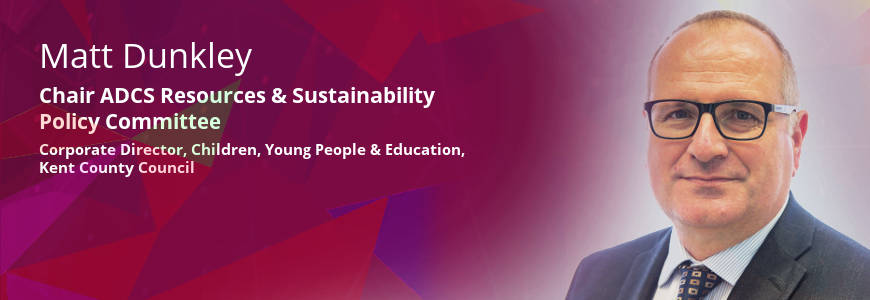
This blog was first due a couple of weeks ago, but the small matter of an ILACs inspection diverted my attention. I can confirm that spending three of your last four weeks before retirement alongside your friends from Ofsted is simply the best way to ease out of a 40-year career.
As this is my final blog before toddling off next week, my editors at ADCS Towers gave me a bit of leeway to ruminate more personally. However, Josh McAllister’s Independent Review of Children’s Social Care final report was published this week, which I could hardly ignore in favour of a greatest hits karaoke from my life as a Director of Children’s Services (DCS). I’ll save that for my farewell drink with my South East DCS colleagues.
The publication of Josh’s report adds to the feeling that we stand at a critical juncture in the future of children’s services. Alongside the schools white paper and the SEND and AP green paper, Josh’s review and the government’s response to it will define our policy landscape for the next five years. One factor common to all is that the role of the DCS is central to each, and we will knit them all together for children, young people and their families in our local areas. This may sound obvious, but I can remember many times in my several centuries as a DCS where this was not a given, and several occasions where the role itself has been under threat. There are huge opportunities now, and the future looks bright.
ADCS has always been “a club I am proud to be a member of”, and never more so than now. The influence of colleagues from our Association to the development of all three government policy initiatives is obvious, including from our late friend Sarah Caton and ADCS staff. The measured, constructive but challenging response by ADCS President Steve Crocker and our leadership to each will ensure we play a formative role in their development and implementation.
There is power in our association, and in our Association. Any DCS is carried on the shoulders of giants – those who make up the bulk of the membership of ADCS - our leadership teams. They, alongside our wonderful staff at ADCS do the heavy lifting and keep our remarkable Association going as the collegiate, supportive and sector-leading organisation it is now, but also a lifeline for advice and friendship in the very challenging jobs we hold.
DCS can be a lonely role. We occasionally deal with tragedy, terrible loss and harm to children. We suffer a punitive and sometimes a personal blame game, fuelled occasionally by binary, zero-sum regulation and monitoring which can make the job feel undo-able (for clarity, this is not a reference to my recent ILACS). In social care our biggest successes often go unnoticed or uncelebrated, because they are invisible, and they involve stopping bad things happening. One failure will always trump a thousand successes.
However, it remains the best job in the world. We get the joy of working with children and young people and their goodness, optimism and capacity for love, and the privilege of sometimes doing things which make their lives better. There is no better feeling or motivation for getting up in the morning than to be paid to do that. I shall miss it, and it has been a joy to do all these years, but it has only been made possible by the power of our Association. Please continue to cherish it, and each other.
Related Blog Articles
A role like no other

I find myself writing this blog at a strange time – two days before I am due to leave Northumberland County Council to take up the Director of Children’s Services (DCS) role in Newcastle City Council. Consequently, I am using the opportunity to reflect on the role of the DCS and the significant impact that this critical role can have on the outcomes for children.
This past year has seen some challenges and changes for the sector (and I don’t mean Covid) and the uncertainty of the future direction of children’s services (schools white paper and SEND and AP green paper) and the odd adverse media stories which are never helpful. Just this week I was surprised to see the former Children’s Commissioner on breakfast TV advising the public to contact the NSPCC if they have concerns about a child rather than children’s services as they are more likely to get a response. Local authorities and children’s services are under a lot of pressure but keeping children and young people safe is always top of our to do lists.
Having never previously had a desire to be a DCS, and becoming one quite by accident, the enormity of the responsibility was well understood and accepted by me. No matter what background you bring to the DCS role - social care, education or some other career path - the learning curve is always steep.
I am sure most of you will have heard the analogy of a DCS being likened to a football manager, and I can see the similarity of winning/losing the FA Cup and achieving a positive/negative Ofsted outcome. But being ultimately responsible for the outcomes for thousands of children is not all about awards and Ofsted. As you all know, children’s services is the most regulated and risky of local authority services, (although receives slightly fewer complaints than potholes and fly tipping) with recruitment and retention pressures, increased demand of services, reduced budgets, ever changing guidance, legislation and process.
So, with all of the above, why would I voluntarily wish to change one DCS role for another in a different authority? Similar pressures, issues and demands but just with a different demographic. Despite this, I think that the DCS role can be one of the most rewarding jobs on offer. I have been grateful for the wide experience and opportunities I have had in my current dual role of DCS / DASS and Deputy Chief Executive (and more weirdly managing the Fire Service), but I am looking forward to focusing on one area - one huge area - and absolutely hoping to help make a difference to children’s lives as a Director of Children’s Services.
Related Blog Articles
A game of marginal gains
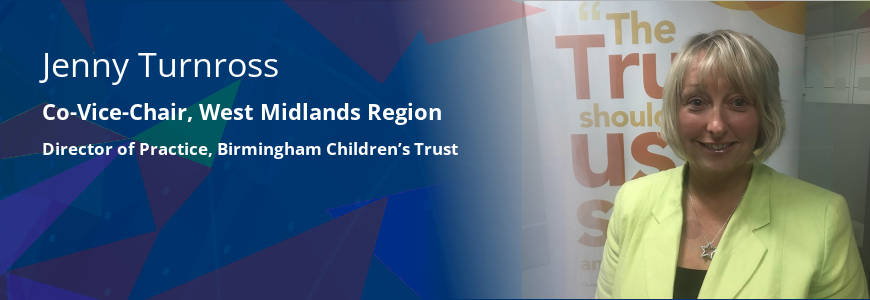
I am sure that the West Midlands is no different to any other region, in that recruitment and retention seems to be our number one topic of conversation. However, it does seem that momentum is building towards this becoming a national debate. I, like others, warmly welcome the words of Steve Crocker in his inaugural speech as ADCS president, and I echo his sentiment regarding the agency market and the impact that ‘managed teams’ are having on our regional and national workforces.
The agency market, of course, is just part of this complex issue. There are numerous reasons why workers enter the locum market, and for many, maybe even most, it is not always about the money. It seems that there is a growing anxiety about committing to employers and we have a responsibility to understand what that is about.
Our ambition, in the West Midlands, is to build a regional workforce who feel supported, valued and cared for. By doing so we aim to bring stability for the children and families whom we work with. Last year, aided by funding from our Building Back Better bid, we set about trying to find the magic answer, of course knowing that we are in it for the long game as there are no instant answers. That said, and maybe fittingly, for a year when our region plays host to the Commonwealth Games, there is much to learn from the sporting principle of marginal gains. So, for example, we are taking a closer look at our wellbeing offer and considering ways that we can be more consistent across each of our local authority areas; we are exploring ways we can raise the profile of the children’s workforce in our region; and thinking about how we might use our allied staff to take some of the workload off of our social workers.
In short, what we are trying to achieve is fourteen caring and responsive children’s services departments, that work together to attract the best talent out there to our region and offer stability to both our workers and the families they support. Our problem is, even if we find staffing Utopia, it’s quite likely that every other region will too and if all 152 local authority areas get there, the bottom line is, there simply are not enough sufficiently experienced professionals to fill the posts available. It is quite possible, therefore, that as ambitious as we think we are, we are not being ambitious enough!
Might it be that we accept that staff move on, and so we actually support this. We encourage workers to try new roles, in different areas. One day they might come back, saying “I’ve got that experience now, let me share it with you”. Should we consider intra-regional secondments, or set up our own “project teams” sent out from our best local authorities to support those who need a little support? Brave? Definitely, but innovative, aspirational and truly ambitious.
Whilst marginal gains are important and will serve to make us all the best employers we possibly can be, after all none of us would want anything different, the conversation needs to be bigger. So, the new ADCS President has set out his vision but let us all treat his words as a call to arms, let’s make sure in every conversation that we have with Ofsted, with the DfE, with our local politicians that training, recruiting and retaining a quality children’s workforce is front and centre of the agenda. After all, it’s nothing more than the children of this country deserve.
Related Blog Articles
Two years on...

Two years ago I remember sitting in my garden during the spring time of the first lockdown with so many mixed feelings. There was a sense of sparkle with the incredibly bright, clear skies of a spring I hadn’t experienced for years, if ever. The atmosphere was fresh and yet loaded with anxiety and concern for everyone’s health and welfare in the midst of the pandemic.
At that time, for some children, there was a sense of families coming together, spending time creating joint activities, filling time, and making the most of being ‘locked down’. Of course, this was not a positive experience for all children, but I remember thinking that perhaps re-establishing the value of being together as a family could be a positive spin-off from a very difficult and scary time.
Two years on I am sorry to say the optimism I felt for children and their families has waned and the sense of a generation who will grow up having missed a level of social inclusion and growth over the last two years is immense and intensified for those vulnerable children who we seek to help to flourish.
With more children arriving in the UK from different cultures after traumatic events, there is an increasing potential for more children to be trafficked; children missing from home is a societal issue everyone should be concerned about. A new report from ‘Every Child Protected Against Trafficking UK (ECPAT UK) and Missing People’ found that one in three trafficked children went missing from local authority care in England in 2020, 25% more than in 2018, in addition missing children were missing 8 times in one year compared to 6.5 times for non-trafficked children in the care system.
Several significant national reports and papers are being published during 2022 which shine a light on services for children and young people and so far a positive theme amongst them has been one of inclusion rather than exclusion. A key document for the next quarter will be the publication of the Independent Review of Children’s Social Care which I also hope will enable change, allowing children and young people in care to be more stable in their homes with committed care providers who will stay committed no matter how tough the road gets. Children in residential care in particular are often the most vulnerable due to their complex needs and behaviours and yet, as the data from the above mentioned report shows, for some children care isn’t a safe haven and they feel the need to run away, often due to their experience of high levels of instability, insecurity and rejection.
Children in care are not a commodity to command the highest price and be ‘returned’ when they falter; children need love, care, understanding, tenderness, fun and a sense of belonging. Many care staff provide all this and more, with an amazing commitment to children and to their role. Ever the optimist, I hope the care review reinforces that the system needs to be equipped to do this too and provides a direction of travel with clear expectations to enable it to happen more consistently for all vulnerable children.
Related Blog Articles
Between the hammer and anvil
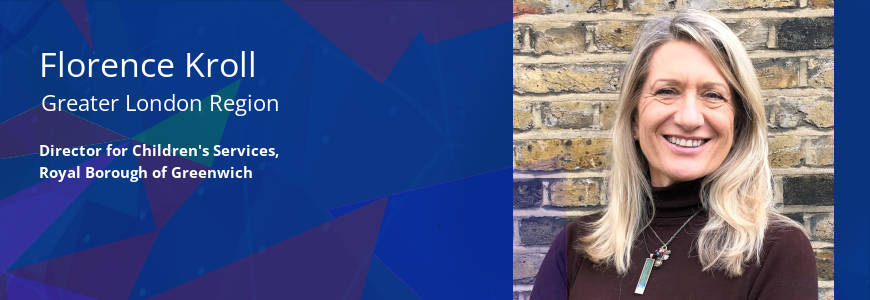
As Director of Children’s Services (DCS) for one of the 75 areas eligible for the Family Hubs and Start for Life programme, I am pleased that the importance of the first 1001 days is being supported in a whole family systems approach. However, at the same time I am disappointed that this package is not for all areas, nor does it reach the aspiration of Family Hubs across the 0 – 19 age range. This raises the perennial question of whether early help, preventative services, family support, early intervention, however we describe them, are valued and sufficiently resourced, particularly with our challenges of addressing adolescent risk and safeguarding.
Many years ago, a very wise and inspirational DCS, at the time my line manager, gave me a powerful analogy for early help services when in our 1:1 as we sat grappling with the purpose, benefits and status of our early help services. In his sage like style, he stated “the thing is that early help will always be between the Hammer and Anvil of Social Care and Education”. This hit me hard. Was I, at that time the Assistant Director for our Early Help and Youth Offending services, always going to be bashed and compressed by these power houses? The analogy often weighed heavy on me, and I think many practitioners and leaders of non-statutory services often feel they are the poor relative of the regulated statutory services. However, that analogy over the years has actually helped me recognise and describe the value of early help services.
The very title “early help” is something of an obstacle and misnomer and limits its value. Many of us now describe our non-statutory services differently to reflect the fluidity of early help and prevention services which can be provided in a myriad of ways; as early support before any other intervention, as a step down from, a rereferral or alongside and to complement social care. Here in Greenwich, we have rebranded our services to Family and Adolescent Support Services.
Notwithstanding this nuance in language, the name is less important than what we actually do. And herein may lie some of the problem. Due to the short-term nature of funding, constant uncertainty about the policy direction for non-statutory practice, no one responsible government department, we navigate with a lack of clarity. Over the years we have designed services, redesigned services, made up elements, and borrowed from others as we go along. Indeed, we have some good, shared principles that have developed practice over the years but this is not sufficiently located as part of our established system complementing both our education and social care systems.
London has a strong “Early Help” (sic) offer. As chair of the London Adolescent Safeguarding Overview Board, I am proud of the work we are beginning to undertake and the partnership buy in across London. One of the work strands we are implementing is a pan London joint venture between local authorities and the Violence Reduction Unit. We have called it “Your Choice”. It is a non statutory programme delivered by adolescent workers across the configuration of arrangements that make up London and you can read more about it here.
And here we can come back to the hammer and anvil. Over the years the analogy kept presenting me with a missing component, that which is between the hammer and anvil is the magic. The hammer and anvil have a function to bring out the best of the metal they are forging to develop tools for the future, Not understanding or respecting the metal will result in poor quality tools or flat metal. Paying attention, working together as hammer and anvil and metal creates the magic of change. Good family and adolescent support can be and should be valued as an important component in the alchemy of change. But we all have to work together as a respected system with equality and not hierarchies of statutory status.
Let’s hope that the forthcoming Independent Review of Children’s Social Care recognises the alchemical beauty of that which is between the hammer and anvil and the usefulness of non-statutory family and adolescent support and that we all work together as part of a cohesive system of change makers.
Related Blog Articles
Navigating a time of change

Looking outside at the spring sunshine it feels like change is in the air, although as I’m in the North East it’s still a bit chilly. This is my first blog since being elected as ADCS Vice President and it’s a huge honour to take on the role supporting Steve Crocker in his Presidential year. There is a big agenda to tackle, and Steve set out the ADCS position and priorities clearly in his excellent inaugural Presidential speech.
Underpinning everything is the impact of endemic poverty, the pandemic and the cost of living crisis on the daily lived experience of our children and families which must be addressed through national policy. Steve’s call for us as a society to prioritise our children and young people is critical but it requires a joined-up policy agenda with clear accountability at the heart of government. We cannot achieve our ambitions for children unless this is put in place urgently with outcomes for children and young people central to ‘levelling up’ plans.
Whilst there is still a lack of a clear joined up national plan it is really encouraging to see the direction of travel of the recently published schools white paper and the green paper on SEND and Alternative Provision. The alignment and systemic approach that has been taken opens up real opportunities to develop a genuinely inclusive education system and to remove some of the conflicts that currently exist in the system. When the Independent Review of Children’s Social Care is published, I hope to see further join up to consider the lives of children holistically and remove some of the silos that have existed for far too long.
In a time of change with multiple new national policy positions we also need to be clear about how that ambition is translated into reality to improve the lives of children and young people. We know from experience of past legislation that implementation is crucial, and the devil is in the detail. We cannot afford to get this wrong again and it’s important that a breadth of voices are fully involved as we move into the next phase.
That brings me to the workforce challenges that we face across multiple service areas. We can have the best plans in the world but will be unable to deliver them without addressing the workforce sufficiency challenge which continues to be most stark in social work. To enable our social workers to achieve high quality relationship-based practice we must ensure manageable caseloads that allow for quality direct work and the time and space to build strong relationships.
To do this we must understand the structural and environmental challenges to workforce sufficiency and address them through a national strategy. This needs to include, amongst other things, the role of agencies, the profile of the profession, and an area that I think has been neglected around retention. Of course, better investment in our workforce from national government is the common thread that runs through all of these points. Our social workers are amazing, working in exceptionally difficult circumstances and we must give them the right environment in which to practice.
